#Hit the 30 image limit
Explore tagged Tumblr posts
Text
Atelier Yumia: The Alchemist of Memories & the Envisioned Land launches March 21, 2025 - Gematsu
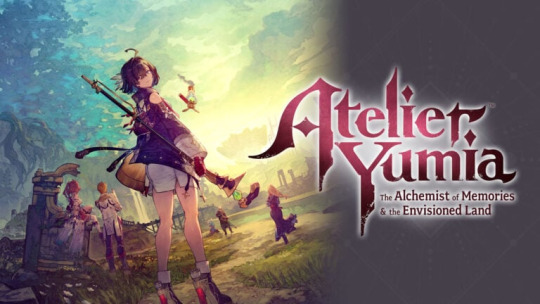
Atelier Yumia: The Alchemist of Memories & the Envisioned Land will launch for PlayStation 5, Xbox Series, PlayStation 4, Xbox One, Switch, and PC via Steam on March 21, 2025 worldwide, publisher Koei Tecmo and developer Gust announced.
In Japan, the PlayStation 5, Xbox Series, and PC versions will cost 9,680 yen, while the PlayStation 4, Xbox One, and Switch versions will cost 8,580 yen. The Xbox Series, Xbox One, and PC versions are digital-only. The “Premium Box” special edition will cost 13,500 yen for PlayStation 5 and PC, and 12,400 yen for PlayStation 4 and Switch. The “Special Collection Box” will cost 23,700 yen for PlayStation 5 and PC, and 22,600 yen for PlayStation 4 and Switch.
Get the first details below.
■ About
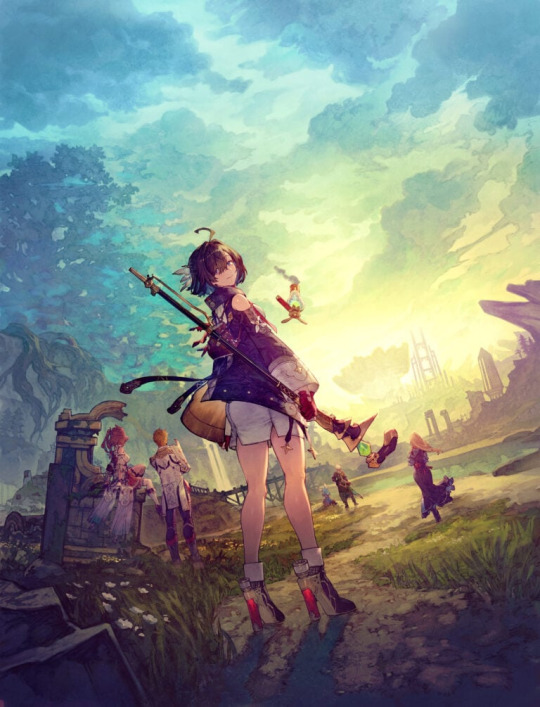
In a world where alchemy has become taboo and is considered evil, Atelier Yumia: The Alchemist of Memories & the Envisioned Land follows the adventures of Yumia Liessfeldt and her companions as they seek to uncover the truth behind the fall of the Aladissian Empire—which once thrived with alchemy—and the memories of its lost history. Yumia’s quest will take her across a ruined continent, and despite the uncertainties of confronting her past, she will need to create her own path if she hopes to unravel the mysteries behind the cataclysm that destroyed Aladiss. Atelier Yumia: The Alchemist of Memories & the Envisioned Land takes players on a journey exploring the theme of memory. Playing as Yumia Liessfeldt, a young alchemist who lost her mother in an accident when she was young, players set out to uncover the forbidden art of alchemy while also learning the true intentions of Yumia’s mother who hid her identity as an alchemist. Along the way, Yumia joins the Aladiss Research Team where she meets Vikto von Duerer and his younger sister, Isla von Duerer. There, they are also joined by an assorted cast of characters including a mysterious woman, a timid demi-human, and a former adventurer with spectacular experiences. Together, Yumia and her companions will travel across the vast continent that was once the Aladissian Empire, where all civilization has perished. Players will have a wide range of actions and items at their disposal throughout the adventure, allowing them to explore a vast open world made up of different biomes as they make their way through these unknown lands gathering materials that can be used to synthesize and craft new items for use in their quest—both during exploration and combat. Not only will fans be able to craft items without having to return to their base thanks to the “Simple Synthesis” feature, but for the first time in the series, fans will be also able to build, furnish, and decorate their own base with the all-new “Building” feature! To help make Atelier Yumia: The Alchemist of Memories & the Envisioned Land come alive, Koei Tecmo and developer Gust have teamed up with the brilliant artist Benitama to create the main visual and all of the character designs. Specializing in creating illustrations and character designs for various fantasy game titles, Benitama incorporates references to paintings and reliefs in his work while striving to balance both persuasive depth and cuteness. His design, characterized by a monochrome based style, give a cool impression while bringing out the charm of the Atelier series.
■ Story

Weaving memories and tracing emotions. For the truth that lies ahead. The Aladissian Empire. It once thrived on a certain continent, having achieved remarkable development through alchemy that kept other nations at bay. However, it met its end due to a sudden and mysterious cataclysm. Time progressed, and several centuries later—. Alchemy became known as a “dangerous art that brings destruction,” and considered “evil” and “taboo” in this new era. In this now forbidden and perilous land, a lone alchemist sets foot. Her name is Yumia Liessfeldt. After losing her mother in an accident three years ago, Yumia discovered that she was from a family of alchemists and began to question many things. Why did Aladiss fall? Why did alchemy become “taboo”?… Is alchemy truly “evil”? Believing that all truths lie within the continent, Yumia embarks on a journey to uncover its lost history.
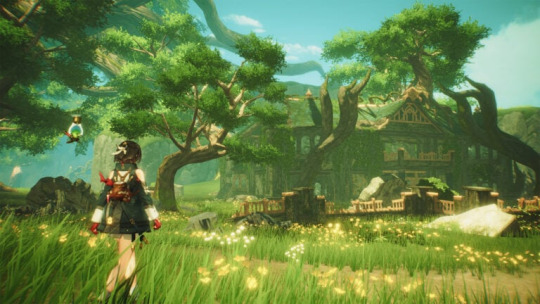


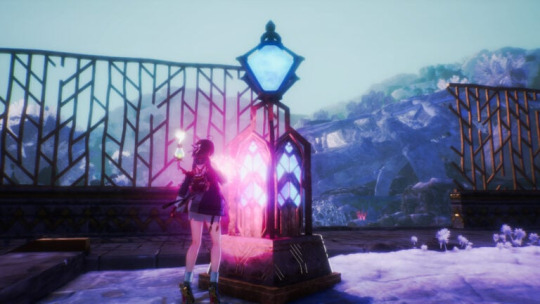
■ Characters
Yumia Liessfeldt (voiced by Wakana Kuramochi)
“I want to push forward. Push forward because I beleive every memory is part of alchemy.”

On a journey to trace memories and uncover lost truths. Due to an accident in her childhood, she lost her mother and learned that she was an alchemist. To uncover the truth behind her mother’s intentions and the forbidden art of alchemy, she joins the Aladiss Research Team. She cherishes her mother’s words: “Learn how to judge what is right by yourself.


Viktor von Duerer (voiced by Makoto Furukawa)
“I won’t waver either. I decided that the moment I saw the chief rush in that day, and I’m sticking to it.”
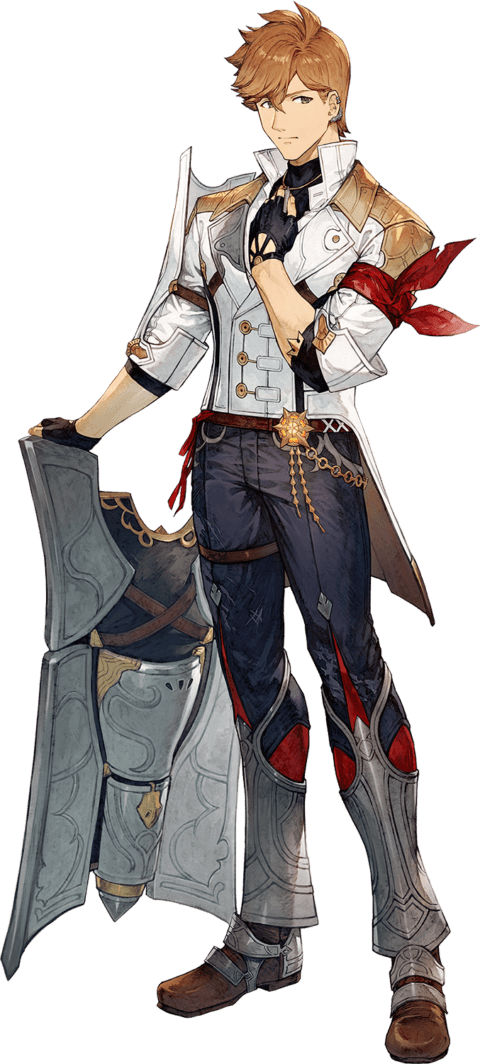
With his iron stake, he upholds justice. A member of the Aladiss Research Team, he joined the investigation as Yumia’s supervisor. He comes from the influential Duerer family and is also a member of the Order of Eustella. Although he has a strong sense of justice and an honest personality, he can be inflexible. Three years ago, his family fell into ruin due to a massive mana disaster in his family’s domain.
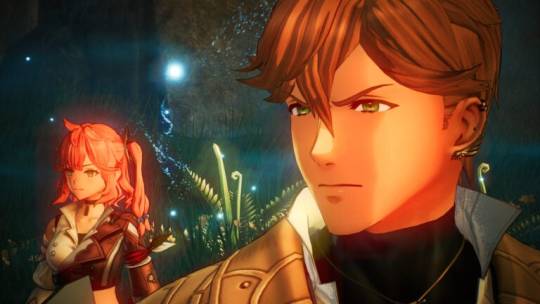

Isla von Duerer (voiced by Kaori Maeda)
“I’ve had enough with losing friends.”
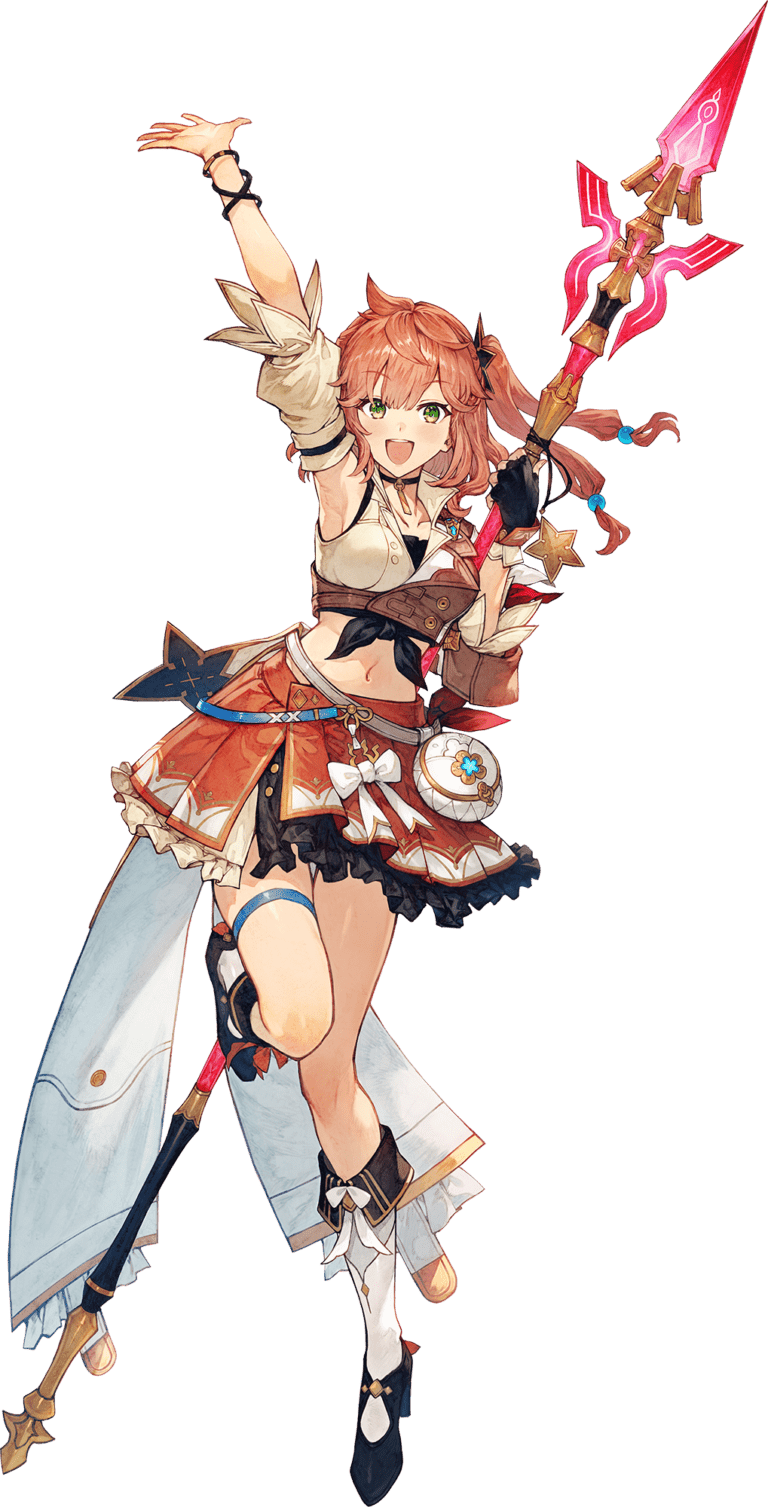
Uncompromising feelings for both fashion and revenge. A member of the Aladiss Research Team and Viktor’s younger sister. She is bright, with high energy and communication skills, and is stylish at heart, never forgetting to be fashionable even during investigations. Her thoughtful nature helps her support her brother with things he can’t handle.
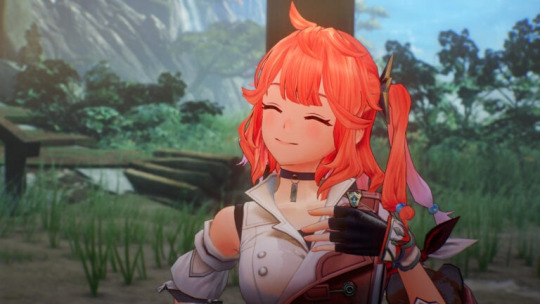

Nina Friede (voiced by Mikako Komatsu)
“Hehe, hehehe… Well then, don’t mind if I do…”
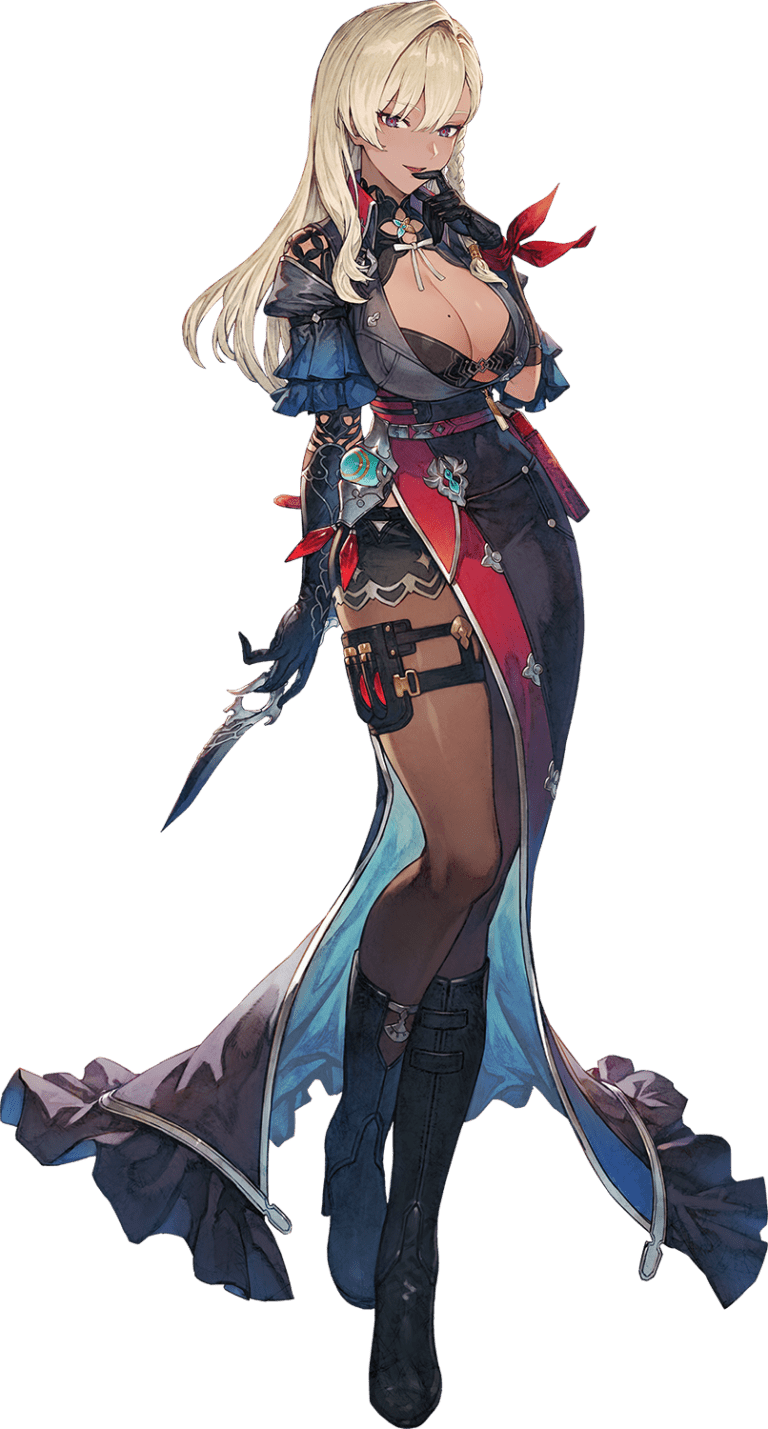
Unquestionable skill and a unique sense. A member of the Aladiss Research Team with a mysterious aura. She always seems to be relaxed, but sometimes it’s unclear what she’s thinking. She has mercenary experience and possesses the skill to conduct investigations alone.


Lenja (voiced by Yoshino Aoyama)
“I wanted to prove myself. I wanted to show that I can be useful.”

The greatest enemy is her own timid self. The only Welleks demihuman in the investigation team. She possesses high physical abilities and mana aptitude. However, she is timid with low self-confidence and frequently apologizes for everything. Welleks live in Aladiss in large numbers, having contributed to its development by producing many alchemists.
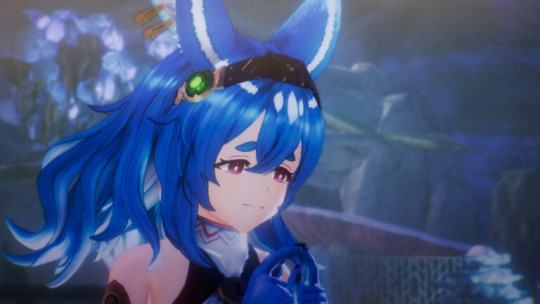

Rutger Arendt (voiced by Jun Fukuyama)
“It’s easier for me to act on my own. I’m gettin’ plenty results, so what’s the problem?”
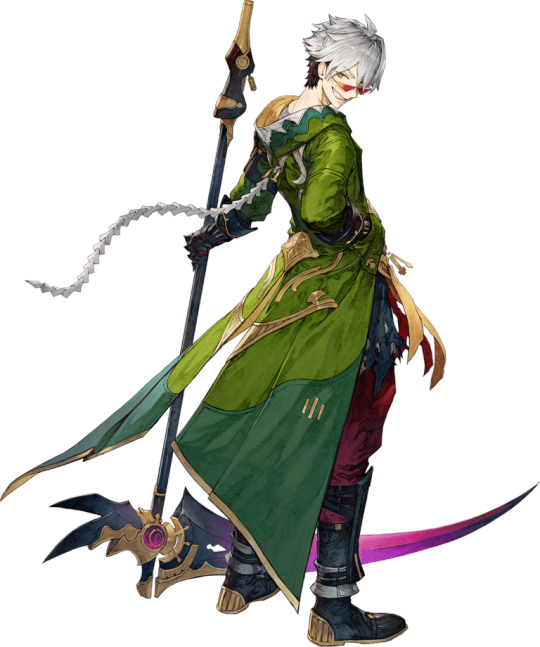
An adventurer who laughs at adversity and forges his own path. A member of the Aladiss Research Team and a seasoned adventurer who loves valuable items. An orphan with no family, he survived by taking on shady jobs in the slums. Having experienced intense hardships, he is not bound to others but lives according to his own aesthetics.
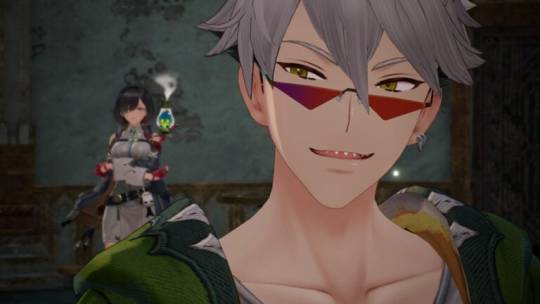
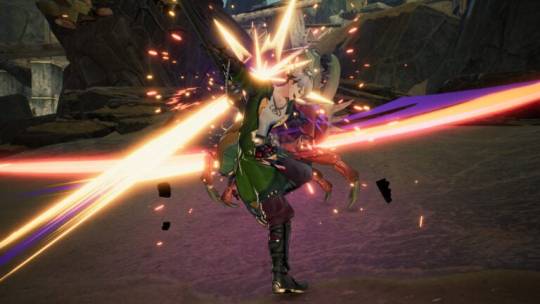
■ World
Embark on a dramatic adventure across a vast land of endless fun and scenery.

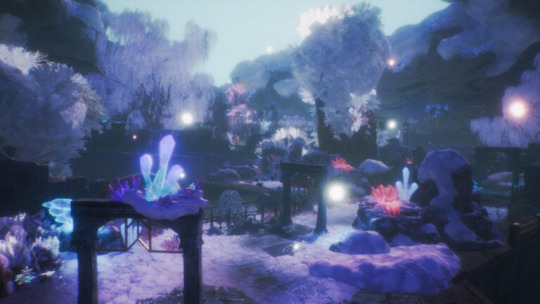
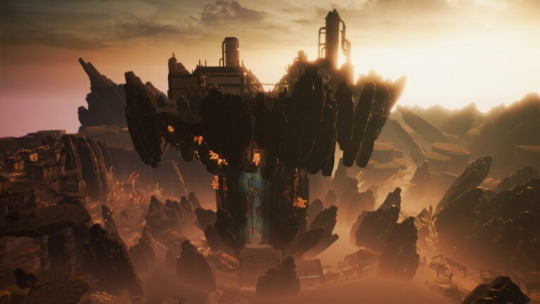
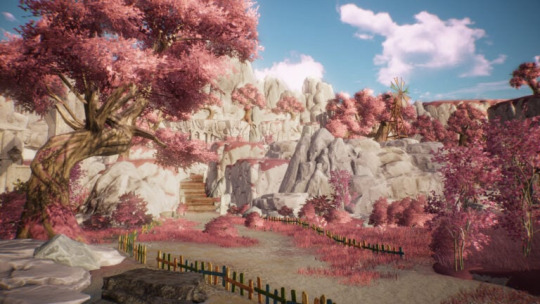

■ System
Collect, combat, create—the journey with your companions will be filled with various “experiences.”
Synthesis: Create Items Interwoven with “Mana“
Manipulate the “mana” residing in materials to create new items based on recipes. The items you craft will exhibit powerful effects in various situations, such as exploration and combat. The strength of an item’s power depends on the materials used in synthesis, so select your materials carefully while assessing the power of the embedded mana.
Battle: A Captivating Variety of Actions with “Range” and “Items”
In real-time combat, you’ll be tested on your ability to make split-second decisions. Utilize two types of attack ranges (“range”) and switch between skills to fight strategically. Additionally, synthesized items can transform into shapes such as swords or spears, which can be used to attack. Since these items are reusable, don’t hesitate to deploy them and drive away enemies that stand in your way.
Watch the trailer and 10 minutes of gameplay below. View a new set of screenshots at the gallery.
First Trailer
English
youtube
Japanese
youtube
Gameplay First Look
English
youtube
Atelier Yumia: The Alchemist of Memories & the Envisioned Land Announcement Special Program
youtube
#Atelier Yumia: The Alchemist of Memories & the Envisioned Land#Atelier Yumia#Atelier series#Gust#Koei Tecmo#Gematsu#Hit the 30 image limit
22 notes
·
View notes
Text
Where is the line?
In the comics, Tim Drake's moral code is an enigma to me, particularly his stance on the Batclan's no-kill rule. For all the fans who say he's always one step away from full blown villainy, there are even more saying he's a strict goody two-shoes who could never stoop that low.
Then there's the different takes on where Tim draws the line between these two extremes. Personally, I find that line hard to pinpoint. Digging for canon demonstrations of his morals has lead me to more questions than answers. My biggest question right now is:
What counts as breaking the no-kill rule in Tim's eyes?
Luckily, the Robins 2021 comics shed some light on this. In issue #3, "Tim", or rather an imposter of him, said that choosing not to save someone isn't the same as killing them, and that letting a villain die can be a way to get justice. Normally, this point would be moot since it's not Tim himself who said it. However, at the end of issue #6, the real Tim clarified that what the imposter said WAS his real opinion on the matter.
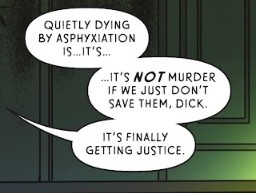
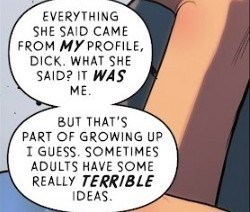
Not only that, but Tim has shown this belief through his thoughts and actions before. Twice.
The first time goes all the way back to Robin 1991 #5. During the fight against King Snake, Tim kicked him through a nearby window, fifty stories above the ground. As King Snake's life hung in the balance, Shiva appeared and commanded Tim to kill him.
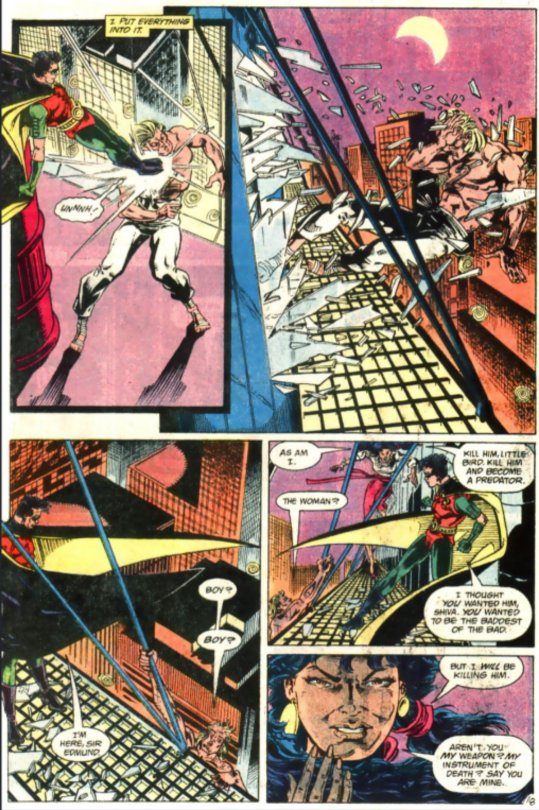
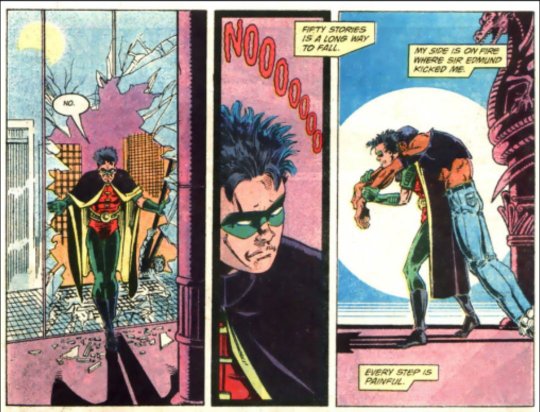
Tim refused. He walked away, leaving King Snake entirely at Shiva's mercy.
What gets me is that Tim made no move to save King Snake from falling. And he made no effort to stop Shiva from committing the murder, either. His only thought as he heard the man's scream was "Fifty stories is a long way to fall."
The second time was in Red Robin 2009 #26. Tim orchestrated a whole plan to manipulate Captain Boomerang into getting killed by Mr. Freeze. The whole time, Tim blamed Captain Boomerang for making all those bad choices, despite Tim being the one raising the chances of them being made. Tim believed he was innocent because he wasn't directly participating.
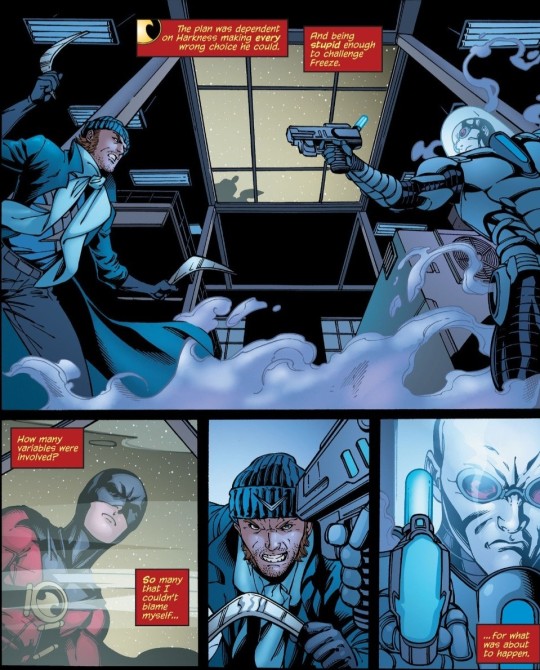
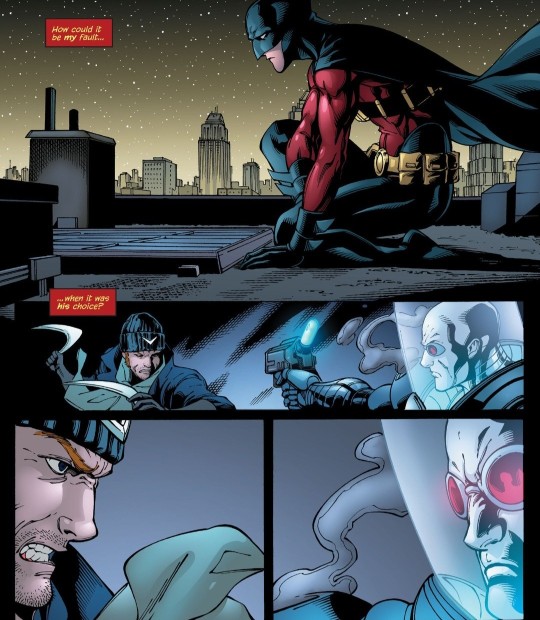
Tim then stopped that plan, but not for any noble reason. He decided that he couldn't let anyone else kill Captain Boomerang but himself.
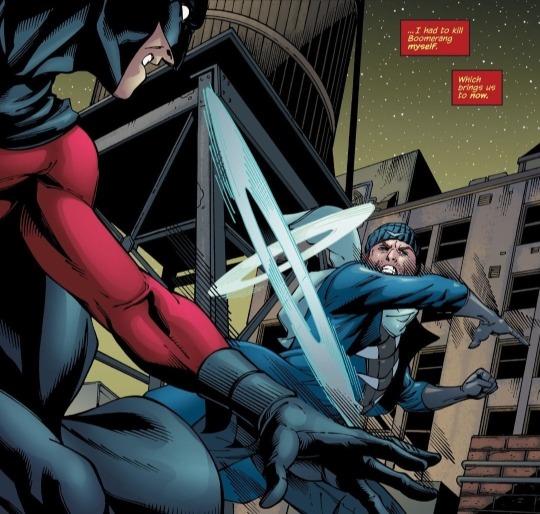
Tim couldn't bring himself to do that, either. So he had to spare his father's killer in the end.
This seems pretty cut and dry so far, right? Tim believing that letting villains die is alright as long he doesn't do the deed himself? I'd think so too, if there weren't other moments contradicting this.
In Robin #35, Steph insisted on leaving an enemy who got buried under the snow to die. Tim chastised her for it.
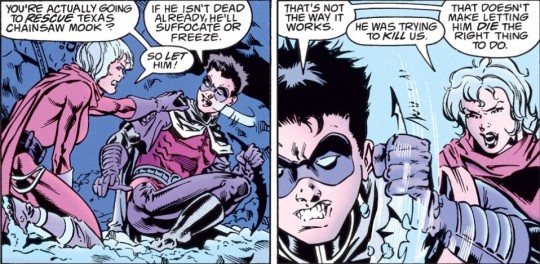
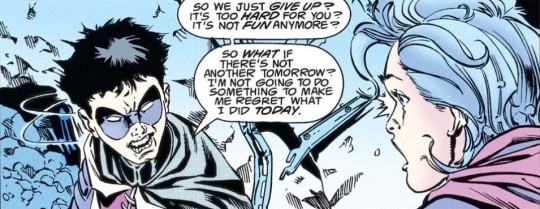
Neither of them were responsible for the snow, or for the enemy getting trapped in it. Plus, that guy tried to kill them with a chainsaw moments prior, so he's not exactly an innocent damsel in distress.
Maybe it was because this enemy wasn't a big enough fish to fry. We didn't really get confirmation that this guy has actually killed before, and he's around goon status at best.
But then in Robin #46, Tim chose to save another enemy who got himself into a deadly situation. That enemy was a murderer known as Young El. This time, Tim wasn't telling anyone else why they should save a murderer's life out loud. These were his private thoughts.
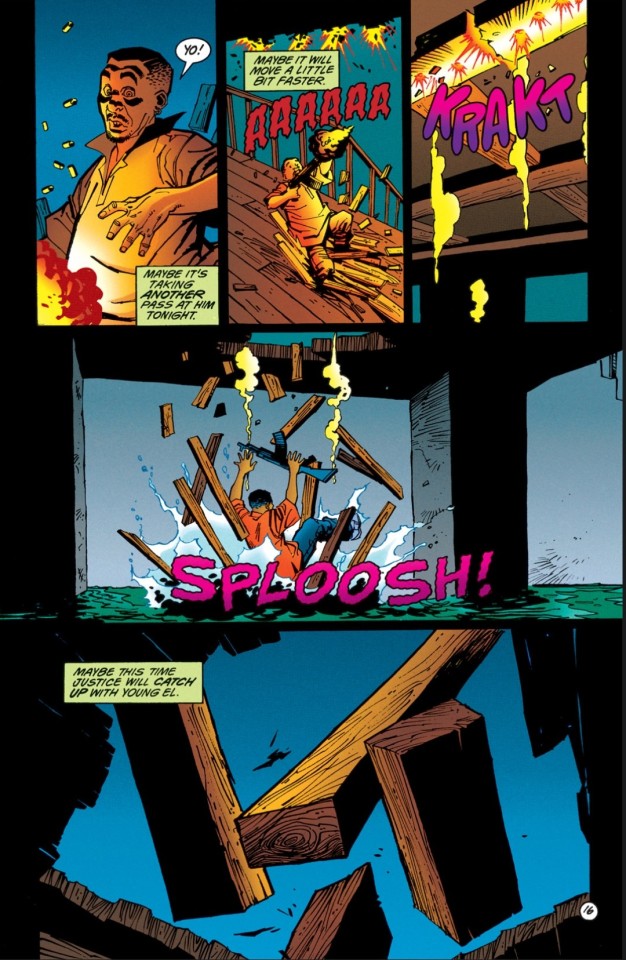
Notice how Tim's inner monologue sounded kind of on-the-fence. He contemplated justice finally catching up with Young El as the floorboards gave way, bringing a support beam down on him in the process.
However, Tim immediately switched gears to rescue Young El from under that beam before the water rose too high.
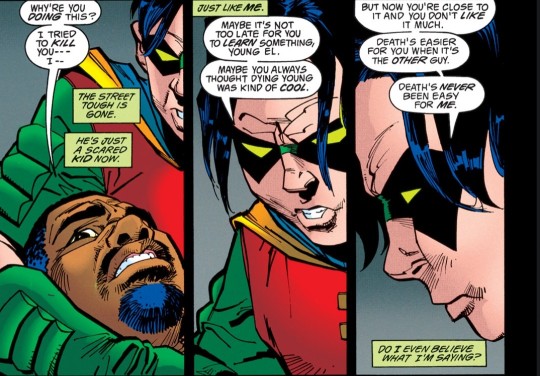
But Tim, as he told Young El the reasons he's saving him, asked himself "Do I even believe what I'm saying?" He could be asking this about two different things he said here. A) "Maybe it's not too late for you to learn something, Young El.", or B) "Death's easier for you when it's the other guy. Death's never been easy for me."
For Tim to doubt his belief in either of these statements is very interesting. He could be questioning if Young El is already too far gone for redemption, or he could be questioning if seeing someone die has never been easy for himself. For all we know, it could be both.
Unfortunately, Tim never got to see if his choice to save him would pay off. Tim wasn't strong enough to lift that beam, and Young El drowned.
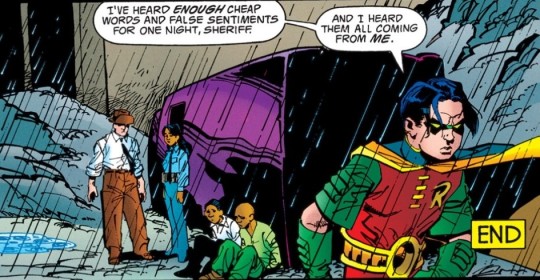
There's a question on my mind as I read these pages. What makes this murderer's death different from when Tim let King Snake fall to his "death"? Sure, King Snake didn't actually die, but Tim didn't know that until later when the man came looking for revenge in Gotham.
Tim was once able to simply walk away from what he was certain would be a killer's demise. But then he's consumed by guilt over not being able to prevent a different killer's death down the line, to the point of hallucinating.

On top of that, what changed Tim's mind later? Red Robin #26 and Robins 2021 #3-6 still happened in the future. The only significant difference I can tell is that these two comics involved the killer's of Tim's parents, making it personal. But if the Imposter from Robins 2021 got his beliefs from his profile before his mother's killer got involved, then does that still hold up?
Maybe we should put a pin on it for now. There are other things Tim's done that brings the details of his no-kill rule into question.
Such as that one time Tim actually killed someone with his bare hands.
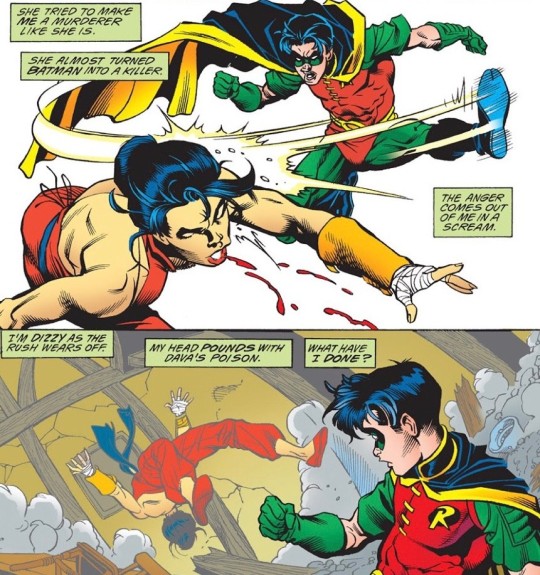
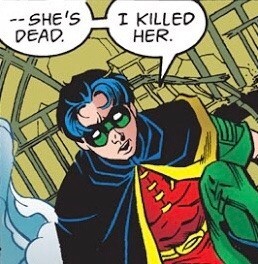
In Robin issues #51-52, Tim accidentally killed Lady Shiva while drugged on amarilla, a plant that enhances the user's speed beyond human limitations.
It may be argued if the amarilla altered Tim's mind enough to excuse him of fault or not. However, I want to focus on what happened after Shiva was revived. Here's another question to go with the first one:
Does Tim believe the kill still counts if the victim was revived afterwards?
From what I've gathered, yes and no. It's kind of complicated.
After Tim killed Shiva, he was understandably distressed about it, about how he can never take it back.
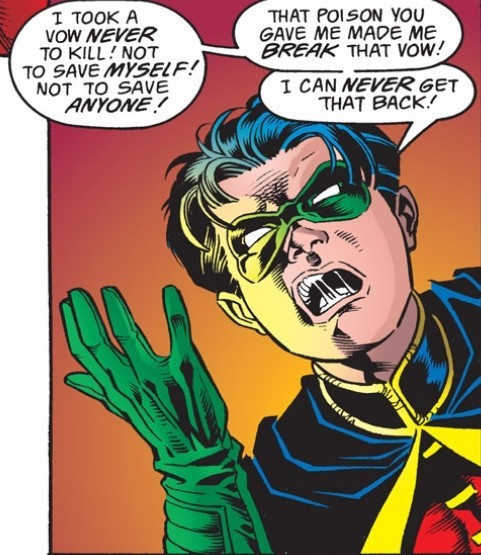
But after Shiva came back to life? Nothing. He didn't dwell on the fact he broke the vow to never kill. For something that devastating to happen in his life, it's odd that Tim didn't bring it up ever again, privately or otherwise. Especially considering what happened later in Robin #123, when Tim thought he killed Johnny Warlock.
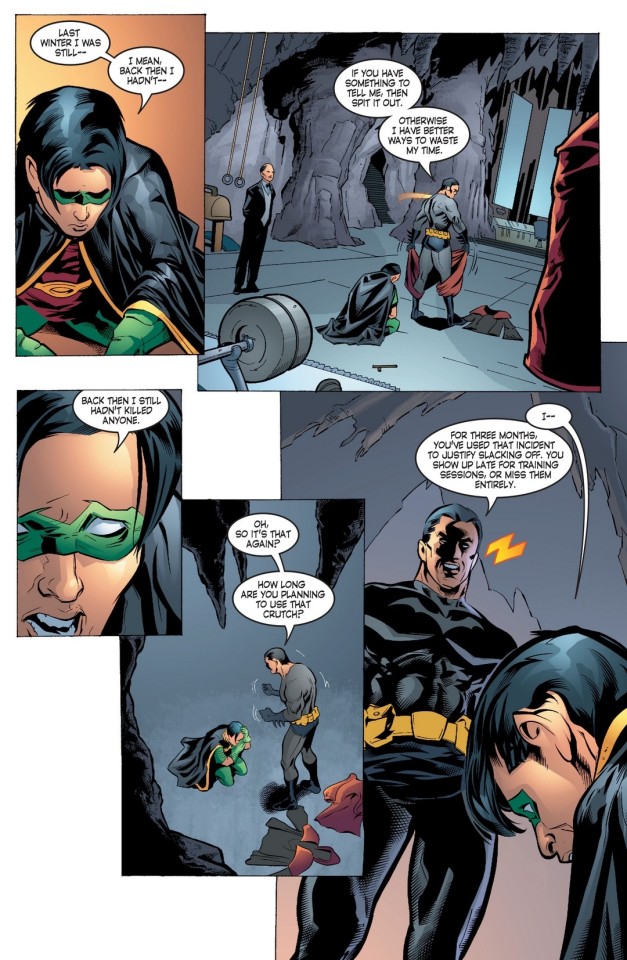
Tim was utterly inconsolable. He lost all faith in his abilities as Robin, and in himself as a whole. It also contributed to his decision to quit being Robin after his dad found out. In general, he seriously dwelled on that "kill" for a much longer time than he had after killing Shiva. The difference being that he knew Shiva was resuscitated immediately afterwards, while Tim didn't know Johnny survived until issue #141.
But there's the fact that Shiva really did die. Her heart and breathing both stopped. So are we to believe Tim moved on from that so easily because she's alive now? What happened to never getting that back?
Come to think of it, not long after Tim killed and revived Shiva, there was someone else who landed in that same boat. Dick.
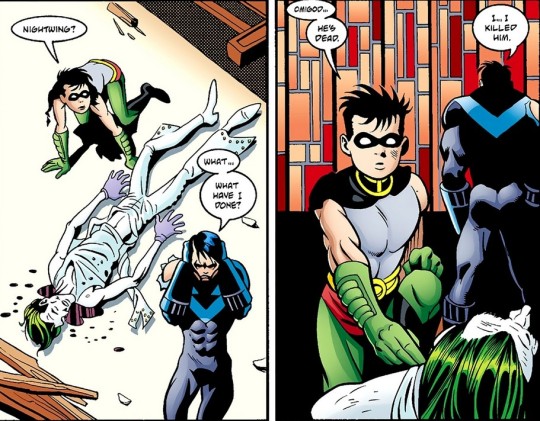
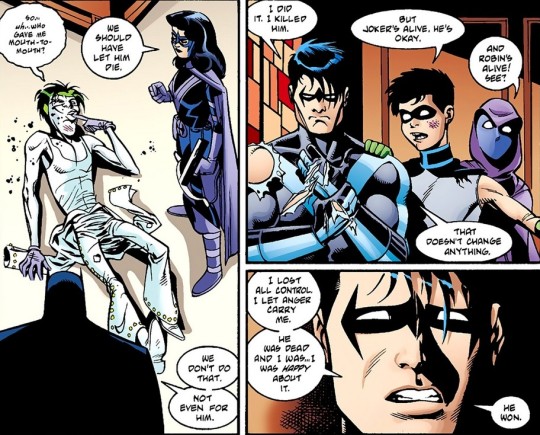
In Joker: The Last Laugh #6, Dick brutally attacked the Joker after believing he killed Tim. Dick ended up accidentally killing Joker instead, before the clown was resuscitated.
Here's the thing. While Tim was trying to comfort Dick, saying that it's ok because Joker's alive now, Dick didn't believe so. He was still distraught that he killed someone. The fact Joker came back to life afterwards didn't matter to him. To Dick, it still counted. So what does that say about Tim?
Before we move on, there's another person Tim knows who also died and came back from the grave. Jason.
Tim openly acknowledged Jason was killed before coming back, too. Multiple times. For example, when they met up in Red Hood and the Outlaws 2011 #8.
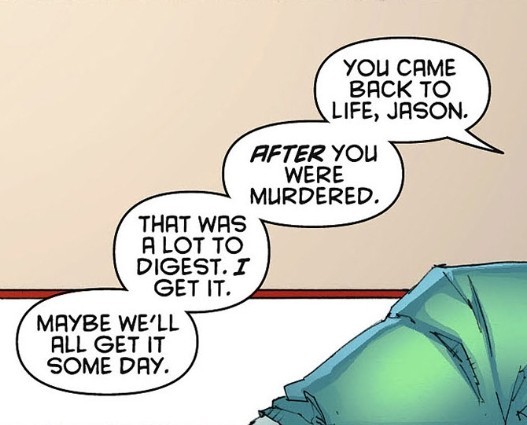
Tim hadn't shown any signs that he thinks Jason's murder doesn't count anywhere, except for maybe once.
In Knight Terrors: Robin #2, Tim and Jason had a heart-to-heart, and Tim said something strange.
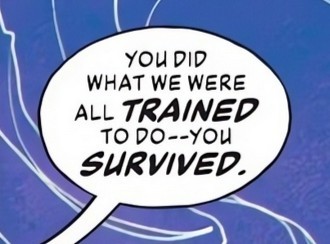
"You survived."
Except Jason didn't survive. He died. To say Jason survived that night would've meant he never died to begin with. Him being alive now doesn't change that. Was this Tim telling a white lie to make Jason feel better? Or does Tim see being revived after death as "surviving"?
Ok, now we can move onto the next question. Or rather, bear with me as we go back to the first question. It's a broad topic with plenty more to talk about.
What does Tim count as breaking the no-kill rule?
We already asked how Tim feels about bringing villains back from the dead after killing them. And we asked how Tim feels about leaving a villain to die without getting directly involved. However, we still don't know how much involvement Tim needs to have in an enemy's death before he'll take responsibility for it.
We can confirm he won't mercy kill in Red Robin #21, even if it means giving someone a fate worse than death. No exceptions.
Tim also doesn't allow anyone he's actively teaming up with to kill, especially if he's the one in command. He's been amicable with known killers before (Huntress and Pru, for example), but only when they remain non-lethal while working alongside him.
Apart from that, though, it becomes less clear. However, I think this is a good place to expand on when Tim blew up a lot of League of Assassins bases in Red Robin #8.
I'm not going into whether or not those explosions actually killed anyone. I've seen evidence supporting both sides of this debate, so I'm just going to say it's up to interpretation. What I AM talking about is whether or not Tim would've felt responsible if they had killed someone.
Before overloading every generator in the LOA database, Tim gave a warning to the Wanderer. He told her that he couldn't be held responsible for what would happen to her if she didn't leave.
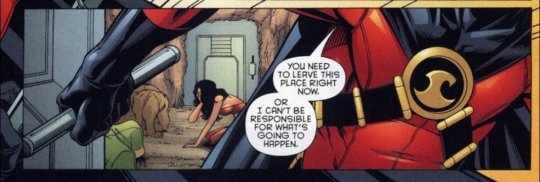
After initiating the explosions, Tim warned the White Ghost that they had fifteen seconds to leave before it was too late.
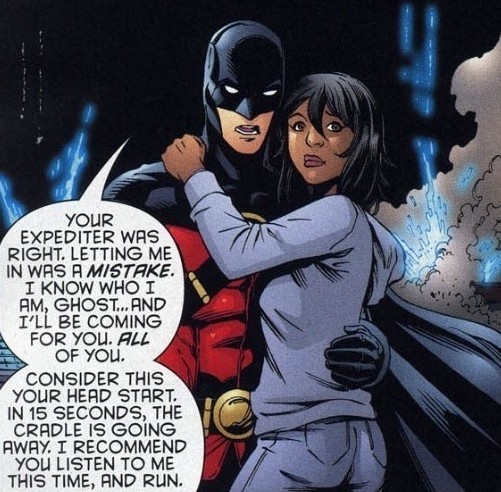
Fifteen seconds. That explanation on the mistake of letting him in might've taken roughly another fifteen to twenty seconds. Did the other bases even get a full minute head start? The way some of the people were already running away could imply they at least got a warning, but it's possible they might not have.
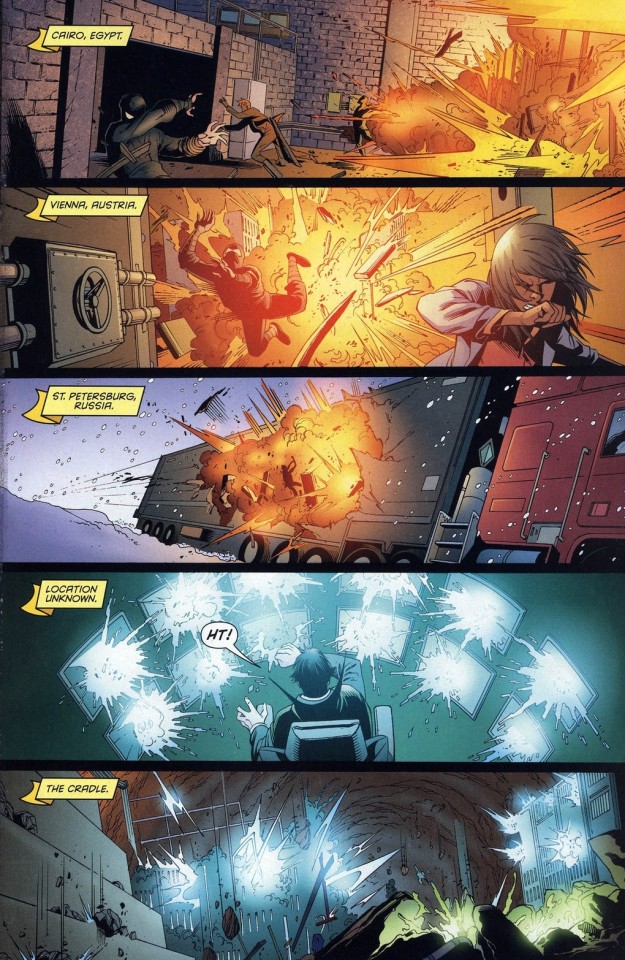
Even if everyone in every base received a warning, would that be enough for Tim to avoid holding himself accountable if they didn't make it out in time? Tim's the one who rigged the bases to explode, but I guess giving someone a warning means it's now their fault for not heeding it?
We can't be sure he even considered the possibility of those explosions killing anyone. Tim knew they were dangerous enough to bring the whole Cradle down, and the other ones we saw looked pretty powerful (except the ones in Ra's hideout). But Tim also called Ra's a murderer right after that happened, which would've been very hypocritical if Tim himself thought he committed murder.
So, my guess is either A) Tim relied on sheer luck for those explosions not causing any casualties and chose to believe they hadn't, or B) Tim didn't believe the deaths of anyone caught in them would be his fault.
Again, this isn't about whether or not blowing up the LOA bases killed anyone. It's about how willing Tim was to take that risk, and if he would've blamed himself for anyone getting killed from it.
Either way, it's canon that Tim had no guilt for the explosions he caused, or for anything he did before Red Robin #22. Just ask the Sword of Sin.
This is an exerpt I got from the Fandom DC Database on the Sword of Sin:
"The Sword of Sin can be ignited with the mind of the wielder, if the person is powerful enough. The sword has the ability to conjure in the mind its victims all of the sins for which they are guilty or have not atoned for."
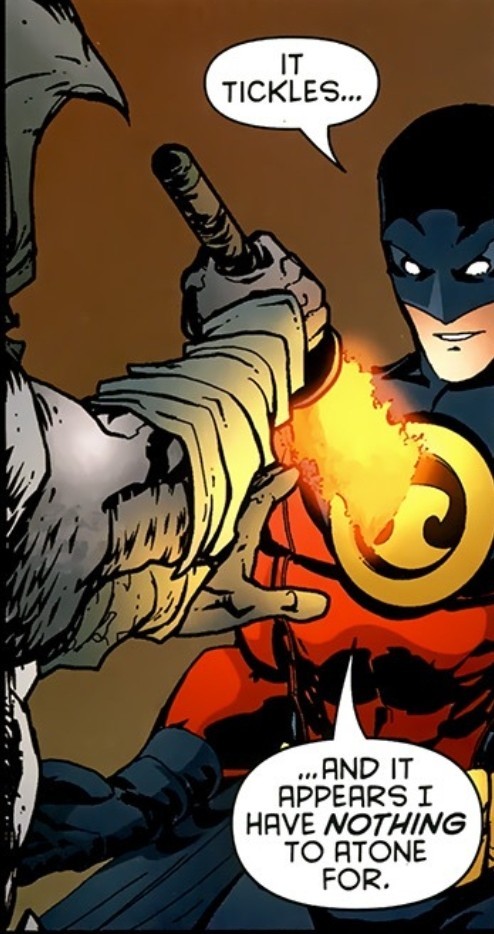
When Tim was stabbed with this sword, he was immune. The Sword of Sin decided he was innocent. Although, I have to ask how reliable this sword was in making that judgement. If the sword is judging others based on its own set principles, then something's not right here.
The Sword of Sin was also used on Dick, and he wasn't immune. It dug into Dicks subconscious and unearthed memories he'd long since repressed. Memories of himself watching a boy get beaten to near death, and then doing nothing. He just walked away.
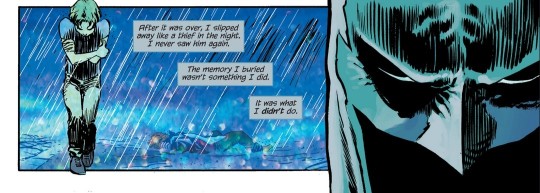
Now, tell me why the sword brought this to light, but not the time Tim left King Snake to die!
It wasn't an accident. Tim deliberately chose to leave instead of trying to save this man from the murderous Lady Shiva. Sure, Tim was no match for Shiva and he might've not been able to stop her, but the same could be said for an eight year old Dick not stopping a group of much older kids. Neither of them tried to stop the attackers.
Tim didn't atone for it, either. When King Snake returned in Batman #469, Bruce told King Snake that it wasn't Tim who left him to die. We know that's a lie, but Tim never corrected this. He let Shiva take all the blame.
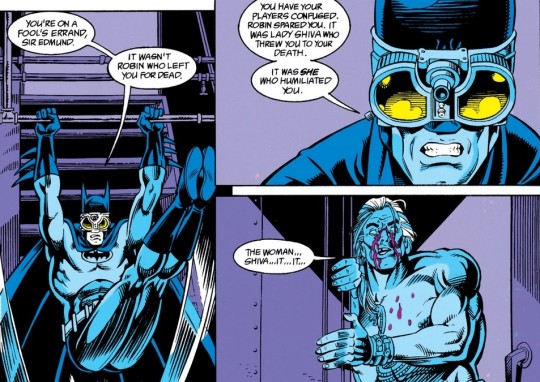
We have two instances of a boy choosing not to prevent someone from having a near death experience. One guilty, and one innocent.
Did the Sword of Sin think Tim was justified because King Snake was corrupt? That doesn't sound holy to me.
Was it because Tim didn't feel any guilt over it, while Dick did? Can the sword's judgement be thrown off by the victim not feeling any shred of guilt over their actions, even subconsciously?
That could make sense given what we know Tim did in the past: King Snake falling, the vandalism (explosions), and ALL the lying over the years (Tim reviving Shiva might count as atonement, so I'm not including that). If the sword based its judgement on God's will alone, then odds are high it would've picked up on one of these.
Even so, I'm not going to sit here and say this is definitely the case. I'm not familiar enough with how the sword effects other characters to make that call.
If this is indeed false, then did the DC universe's version of God decide to pardon Tim of his sins when he prayed earlier that same issue, despite him not believing he had any? I mean, who knows, right?
You can probably see why there's more questions than answers. The point is Tim didn't have any guilt for the things he did before Red Robin #22. Tim was canonically convinced he had nothing to atone for.
So then why did he say the opposite later in Knight Terrors: Robin #2?!
In the heart-to-heart between Tim and Jason, Tim tells him this:
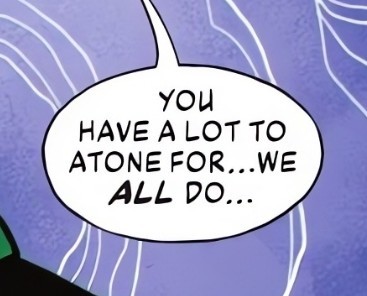
"You have a lot to atone for...We all do..."
Tim knows that the words "we all" include him, right? By saying this, Tim admitted to also having things he needs to atone for, right?
Is this another white lie to make Jason feel better? Is it one of those slight changes the New 52 made to the canon? If not, then why did he change his mind? Did his no-kill rule change and make him feel guilty for some past actions? Is it not the no-kill rule, but something else?
What changed?!
Where does Tim draw the line?
I don't know. We've narrowed it down to a general area, but it's kinda hard to see a line when it's so blurred it could be a gradient.
Tim baffles me. He acts as a steady moral compass for others when he can't even seem to stay consistent with his own. You're free to call it poor writing (and honestly, fair), but I find his hypocrisy fascinating.
That's what it is, isn't it? Tim's a hypocrite who's completely oblivious to being one. And it's not like this was never mentioned in the comics before. Damian called him out on it!
In Batman & Robin 2011 #10, Damian confronted Tim about his near-murderous reaction when Fist Point killed Artemis (Teen Titans Vol 4 annual #1). Damian then accused Tim of constantly rejecting him because they have more in common than Tim's willing to admit.
It's debatable how accurate that accusation was, but Tim had a pretty volatile reaction to it.
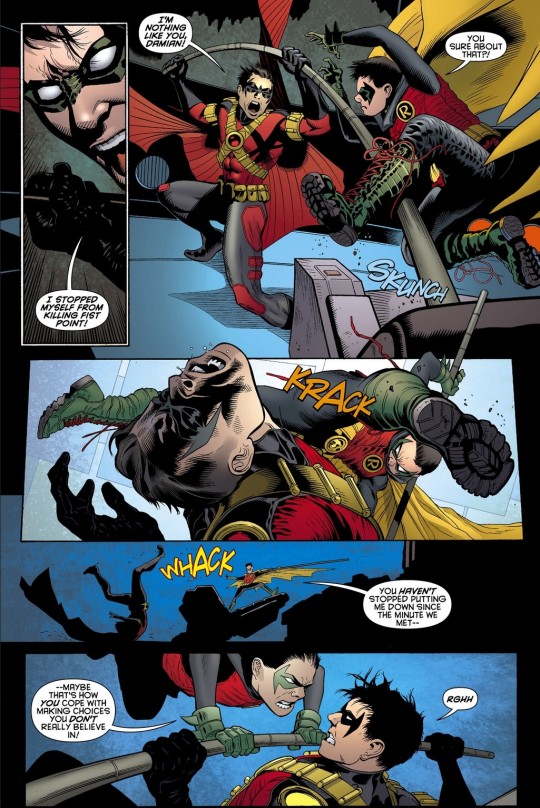
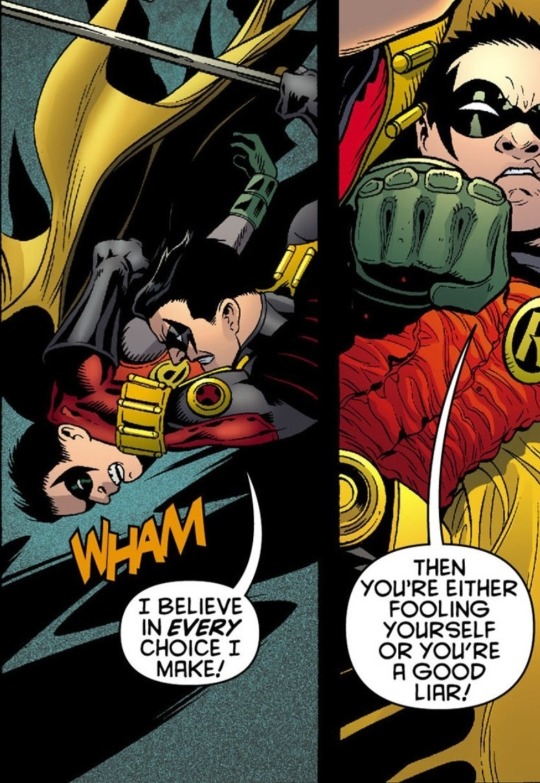
"I believe in every choice I make!"
Does he? I don't think someone who's so sure of what he believes in would contradict himself to this extent. Especially if he wasn't doing it on purpose.
He wouldn't vehemently push Bruce's no-kill rule onto others and berate them for bending that rule, only to go and bend that same rule himself when the Batclan isn't around. He also wouldn't exploit what he thinks are loopholes, decide later that those loopholes broke the no-kill rule, and then earnestly claim he never broke it.
Why is he like this?! He's had arguably the most normal childhood out of the whole Batclan before becoming Robin! What could've made him so fickle about this?!
Where does he draw the line? And how will he know when he's crossed it?
#batman#dc#robin#tim drake#red robin#theory#analysis#long post#tim drake is a menace#unhinged tim drake#To think all of this was written without mentioning Tim's corrupt future selves#or the numerous times he's actually contemplated or attempted murder#Believe me I would've loved to add 5-10 more screenshots of those moments alone#but I hit the 30 image limit :(#Anyway I want to study Tim in a lab#Feedback is welcome#I'm aware I hadn't read all the DC comics so I could've missed something
762 notes
·
View notes
Text
A Guide to Faewish Sprite Jobs and Uniforms
EDIT 27/02: Corrections to the Wish Inspection Center segment! I didn't realize Delicious Orb sorters have their own ornament. Also some additional lore here and there.
EDIT 21/03: Based on the "Falling Star" neckwear accessory, the gemstones on the librarians' ornaments are meteorites from the Aurosa Valley.
I went around the Wishing Woods taking note of what colors corresponded to what jobs, as well as the ornaments on their hoods. This is mostly for personal reference so I know where to find specific types of sprites. Due to the nature of this post there are unavoidable spoilers from Chapter 6 and Chapter 7 of the main story.
In general, the uniforms work like this:
higher ranked (i.e. supervisors) or otherwise unique (i.e. shopkeepers, named NPCs) fairies have the long ribbon-like wings, as well as the large ornament on their hood related to their work
generic fairies within a job have the standard tiny wings but in the same color as their uniform and a small version of the corresponding ornament at the end of their hood
fairies also seem to be allowed to add accessories however they like, a few of my screenshots include some who are wearing extra accessories that are not part of their uniform
For simplicity I will be referring to the two types of uniforms as "supervisor" and "standard". I've also tried to be clear about what things here are my assumptions so hopefully I haven't accidentally missed being clear about anything that is.
I will also mention where I feel I am missing information. This post also does not include the unique jobs like Eltinada's or Dorobo's.
Before we start, for comparison, here are what the general, non-uniformed Faewish Sprites looks like:
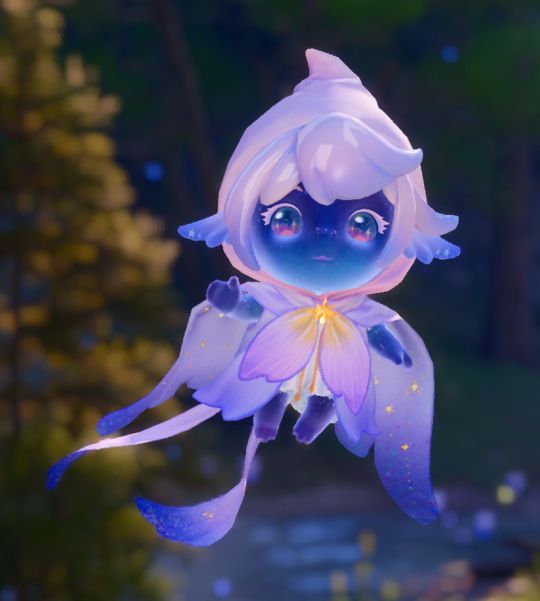
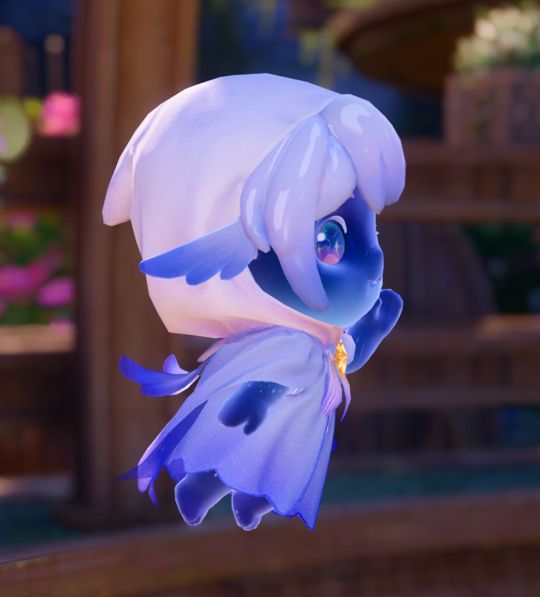
This is VERY image heavy so I've put the main content under a cut.
Wish Pass Office
Color: black
Ornament: quill feather
Roles: customs, passport issuance
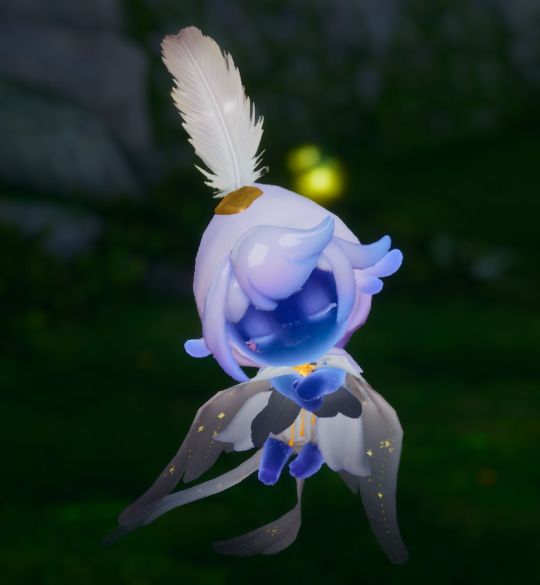
Every interviewer along the Cavern of Wishes uses the supervisor uniform, presumably you have to be highly ranked to be an interviewer.
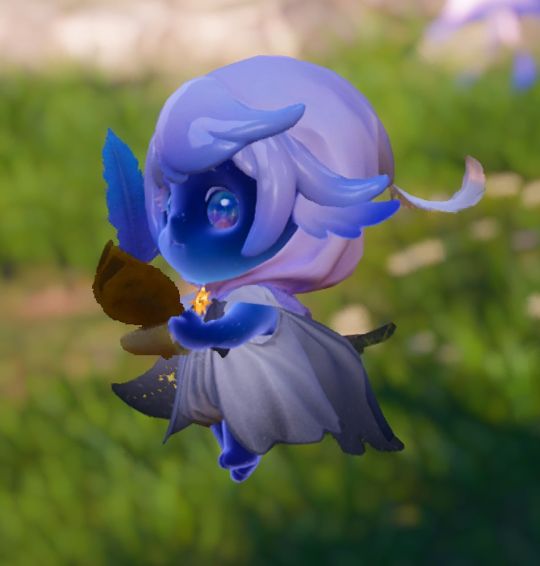
The standard Wish Pass fairies are only found along the road immediately after you enter the Wishing Woods. Their main role seems to be inspecting goods and taking inventory of items entering the Woods.
During Chigda's rule, they were instructed to reject all applications for a passport, giving them a fairly lax work environment for that time.
Given we can find Aventura in the Wishing Woods after Giroda is elected, Giroda presumably encouraged them to start earnestly reviewing applications again.
Wish Inspection Center
Color: pink
Ornament: pink heart with a white heart outlined in blue inside for the director and other high ranking supervisors, solid pink heart with a broken blue heart on top for bizarre orb supervisor, solid pink heart with a thin orange heart on top for delicious orb supervisor, solid pink heart for everyone else
Roles: handles everything related to all kinds of Wishing Orbs, splits accordingly into departments for Delicious Orbs, Bizarre Orbs, and Desperation Orbs
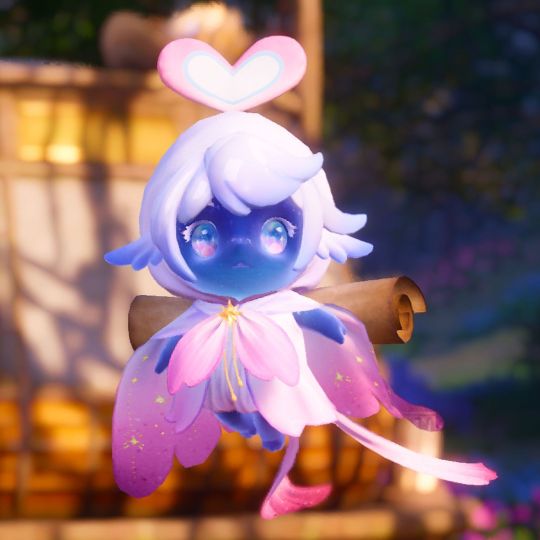
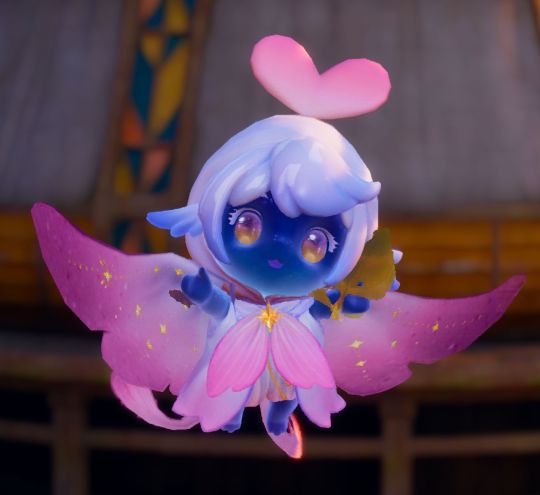
Note that only Director Boboda and Supervisor Vivibo have the two toned heart ornament.
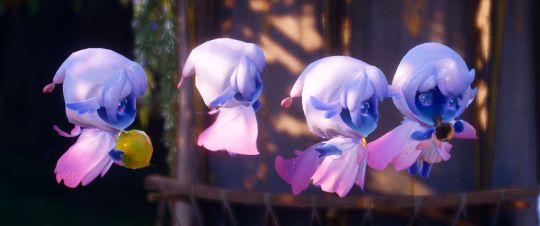
The above are wish auditors, sorters, and inspectors found in the Wish Inspection Center. They are responsible for ensuring the Wishing Orb pipeline goes smoothly.
They sort wishes by listening to them and identifying the kind of wish from there, which is a natural ability to all Faewish Sprites. However, with the development of an amplifier by the Wishcraft Lab, they can now do this much faster, while also improving their accuracy.
It seems you have to pass a sorting accuracy test to join this office. The record is 99.9% accuracy, held by current Director Boboda who is also the youngest director in history.
Wishing Orb couriers/transporters also use the supervisor uniform (as seen in the cutscene where they take Afubo's doll), but this may more be due to having every important/named Faewish Sprite use the supervisor uniform than not.
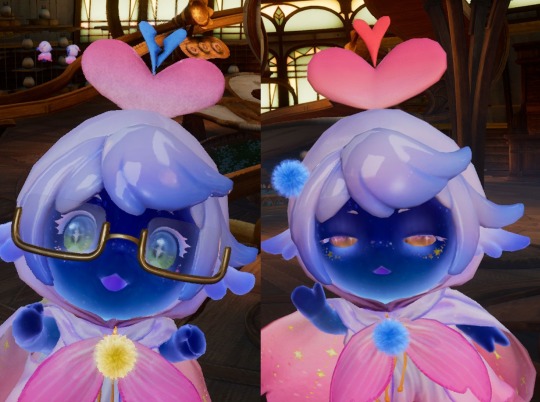
As shown here by Afubo (left) and Durida (right), supervisors in charge of Bizarre Orbs and Delicious Orbs respectively get additions to their heart ornaments.
The Desperation Orb Warehouse presumably originally fell under the Wish Inspection Office as well, but was taken over by the Paladins under Chigda's orders. Currently, there are no uniformed supervisors from the Wish Inspection Office on-site.
Due to Wishing Orbs being the Faewish Sprites' primary source of nutrition, the Wish Inspection Center seems to be one of the two largest organizations.
Wish Celebration Center
Color: yellow
Ornament: yellow and orange striped cone hat with confetti ball at the end for supervisors, yellow and white striped cone hat OR a yellow puff ball for everyone else
Roles: coordinating the Coming-of-Age Ceremony, management of confetti cannons, making decorations and gifts, managing and preparing parents for the ceremony
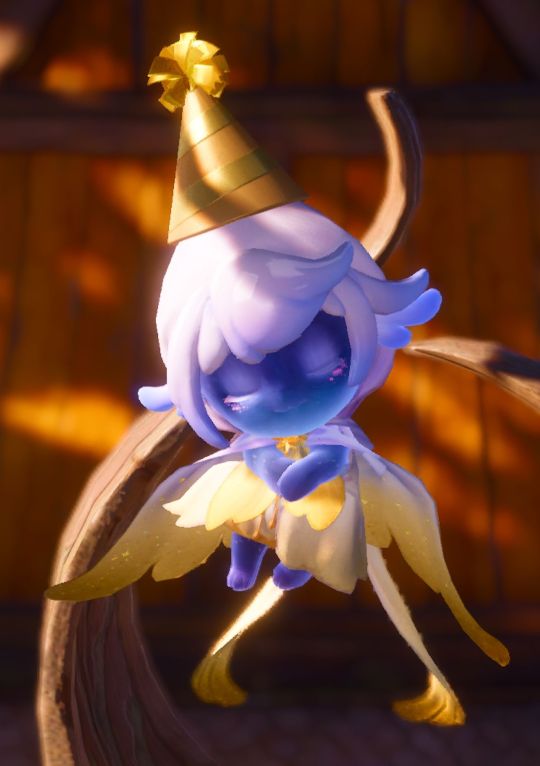
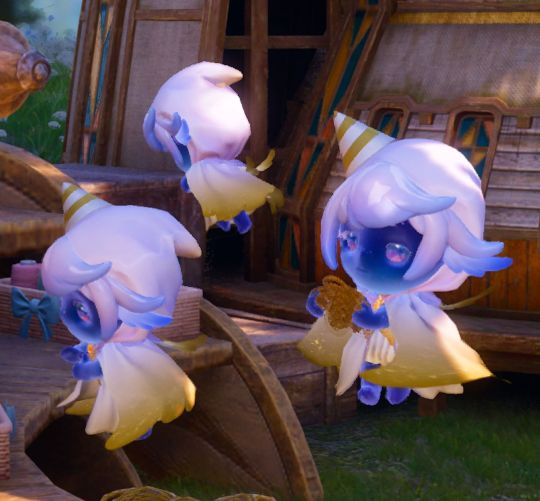
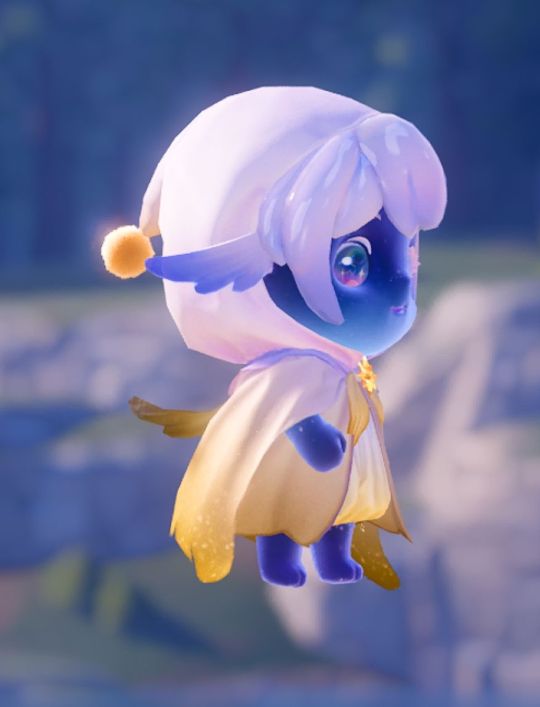
One of the busier areas outside of the Grand Millewish Tree, the Wish Celebration Center is all about the Coming-of-Age Ceremony.
They work with the parents of baby sprites to assist both them and the babies for the ceremony, including helping them choose gifts for their baby and ensuring they have a name and clothes prepared. They provide ready made gifts like balloons and flowers.
They probably work closely with the dye station.
They're also in charge of the confetti cannons we use to launch Momo and Nikki.
Vikda is part of them, but has a unique outfit.
With how important the ceremony is to Faewish Sprite society in general, they are probably the other one of the two largest organizations.
Wishcraft Lab
Color: dark blue
Ornament: light bulb with a four pointed star inside
Roles: all kinds of research, Whimtech development and engineering, equipment maintenance, Wishing Orb study (i.e. studying the properties of Desperation Orbs, developing better methods to handle Bizarre Orbs), Desperation Syndrome study
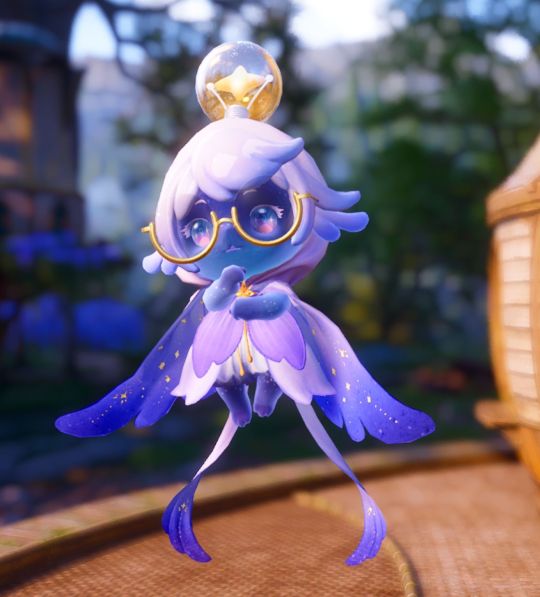
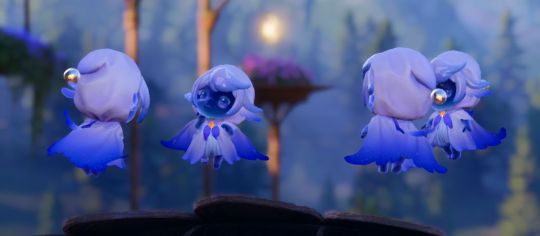
These guys do a LOT of things and can be found in almost all the other offices as well, usually near equipment. They are in charge of Faewish technology, but also study things related to the mutated vines and Desperation Syndrome.
Many can also be found in the area around the Desperation Orb Warehouse.
Giroda has tasked them with upgrading the electrical system of the entire Wishing Woods within five years.
Research Institute
Since I was kind of confused by this initially, I'm giving this a subsection here. Created by Chigda and Avicinda as a separate office from the Wishcraft Lab, the Research Institute took budget and resources away from the Wishcraft Lab. Publicly, they were stated to be developing Whimtech weapons for the Paladins, but never actually produced anything. In reality, the Research Institute was a prison for human stylists kidnapped by the Paladins. Quick-Wish Bottles were also created here in the process of trying to create a second Aureum Vase.
After Chigda's defeat, fairies who had unwittingly joined the Research Institute have been absorbed into the Wishcraft Lab.
Quick-Flight Firefighters
Color: red
Ornament: splash of water
Roles: firefighting, preparing water balloons, emergency services
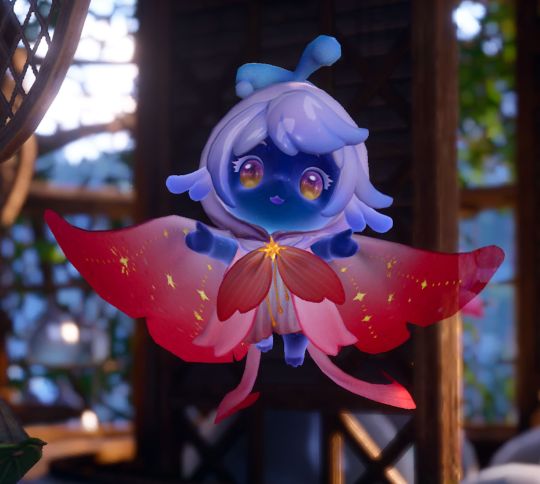
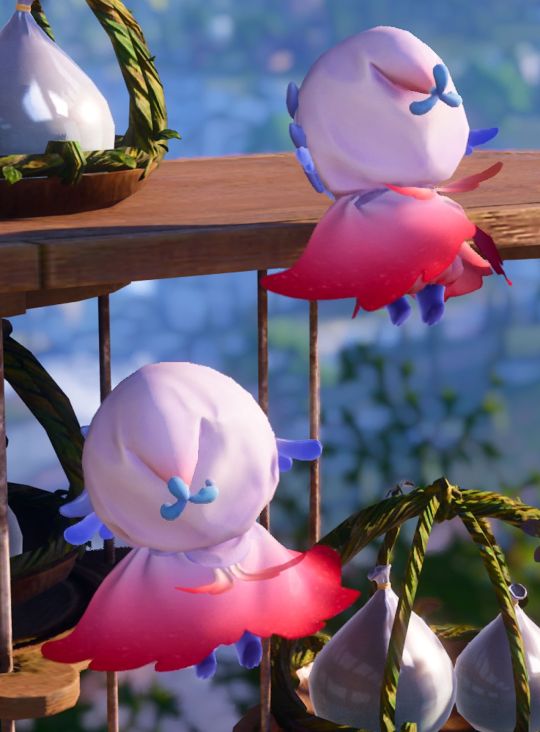
They're obviously found at the fire station in the residential area, where they have many water balloons prepared.
Fires were previously more common in the Wishing Woods when the confetti cannons were powered through ignition. Since the switch to compressed air, this doesn't happen as often anymore and the firefighters now mostly work as a general emergency service and also also help out other fairies where they can.
Wish Master's Paladins
Color: orange, may actually be brown
Ornament: feathered plume, supervisors additionally have a metal band with the four pointed star, captain gets a helm with the four pointed star
Roles: Faewish sprite military, bodyguards to the Wish Master, security guards, peacekeeping
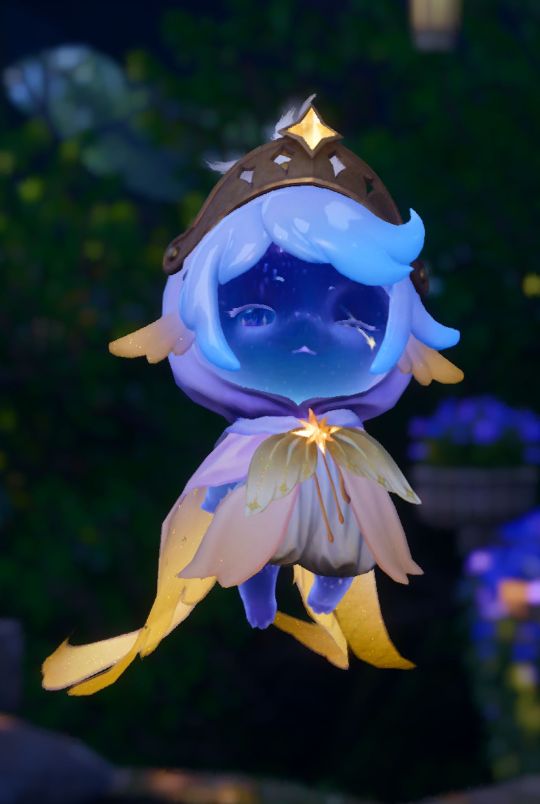
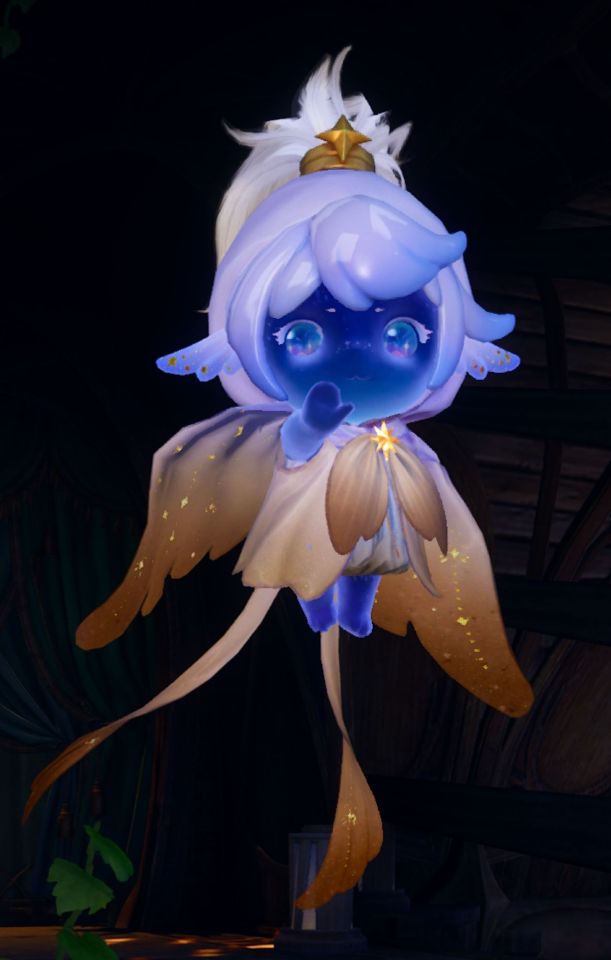
Yes, Avicinda's outfit really is yellow compared to the orange/brown of the other Paladins.
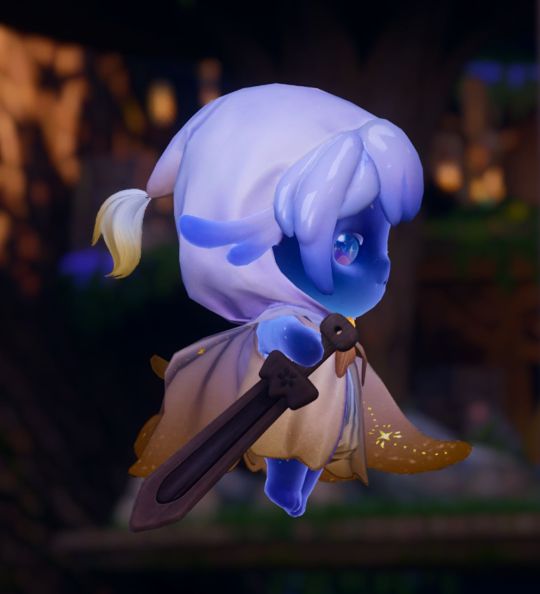
Paladins carry wooden swords and use either Whim or some other natural Faewish magic to fight. Most of them can be found around the Grand Millewish Tree, naturally centered at their garrison, but also as guards in key entrances to the different areas of the tree. They are however, also found all over the Wishing Woods, either as guards or patrolling the area.
At the garrison there is also a trio of non-uniformed fairies doing exercises. I assume these are fresh recruits.
Under Chigda and Avicinda's control, they were exceptionally corrupt and abused their power against other Faewish Sprites while also regularly invading the Abandoned District. It would seem no Paladins other than Avicinda were aware of the true purposes of their work, being only given pieces of the truth here and there, just enough to keep them loyal and willing to abuse their power.
Giroda is presently working on reforming them into a better peacekeeping organization and has recruited new Paladins, which he's sent to start peace talks with the Pieceys.
Temple of Wishes Library
Color: light green
Ornament: meteorites from the Aurosa Valley
Roles: maintaining the books in the archive, importing new books, Faewish education
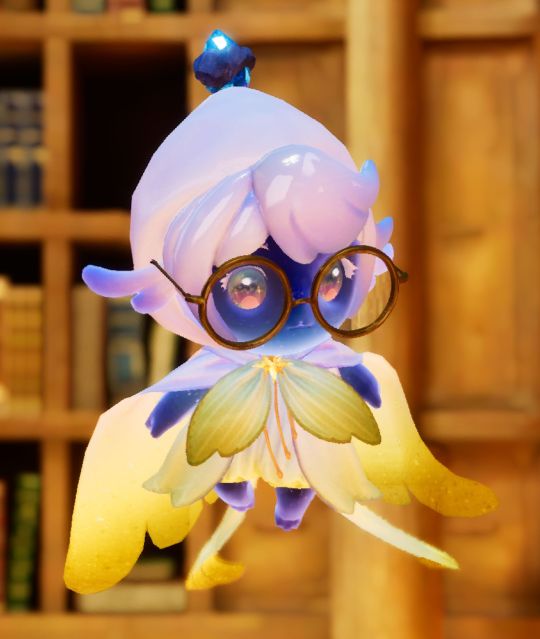
As head librarian, Pokobo's coloration is more yellow-green than her colleagues'.
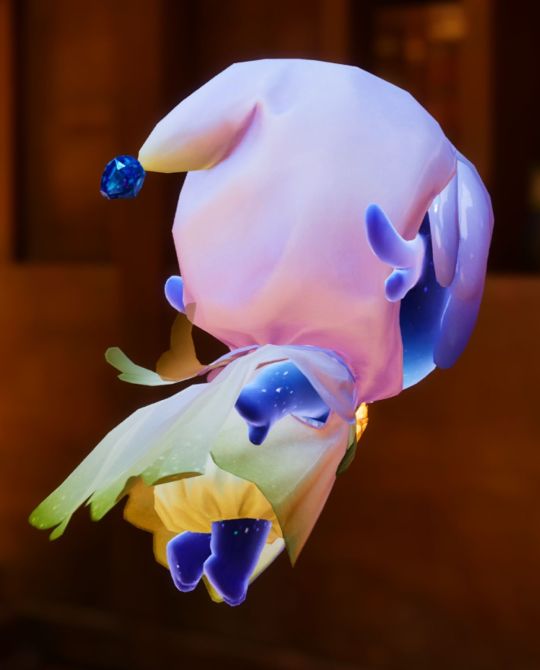
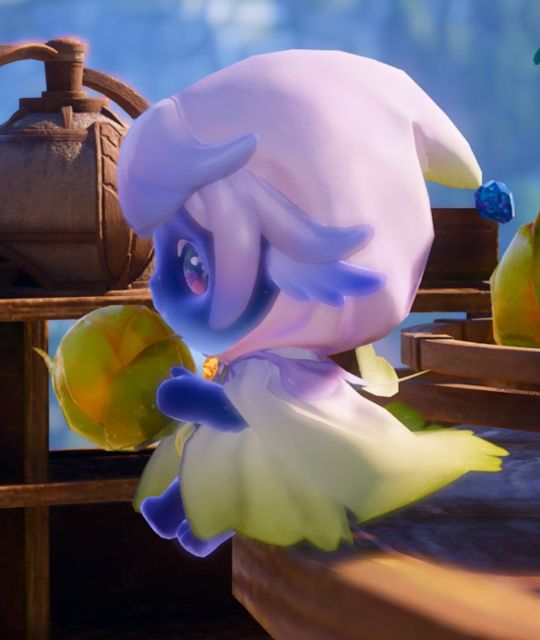
They seem to be far fewer in number compared to other groups.
Under Chigda's rule, the library was completely closed off to the public as part of his efforts to control history.
Giroda reinstated Pokobo after her firing and has allowed the lending of books. He's also allowed her to start importing new literature to improve Faewish Sprites' critical thinking and general education of the world beyond the Wishing Woods.
Delicious Wish Clinic
Color: standard blue
Ornament: bandage patch on side of hood
Roles: doctors, medical staff, treating Desperation Syndrome, assisting the dye station
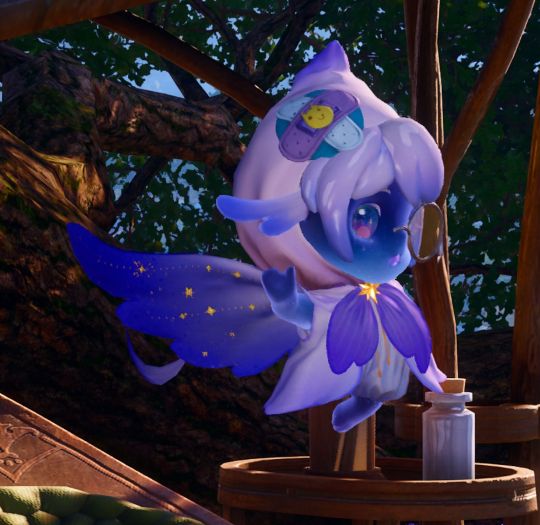
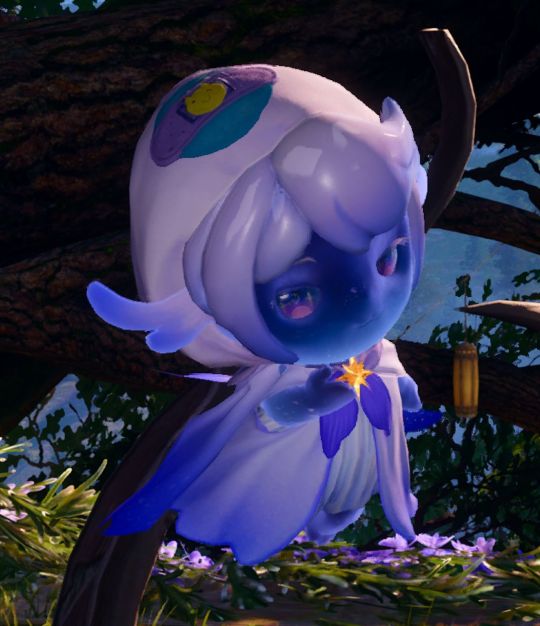
We saw them in action when the mutated vines attacked the Wishball field in the story. Not much to say about them IMO, they're doctors and most of them are found in the clinic, which is one level above the residential area. Desperation Syndrome is their biggest concern but it's not as common as in the past due to the improvements to the Wish Inspection Center. Most of their work comes from young Faewish Sprites.
Their predecessor is the Desperation Syndrome Research Center. It would seem they became a more general clinic after treatment with Delicious Orbs became possible.
Interestingly, you can find a lot of them helping at the dye station.
Dye Station/Workshop
Note: I'm unsure if there is an official name for this one
Color: light blue, close to cyan
Ornament: glimmergrass flower
Roles: conversion of glimmergrass into dyes, bottling and storage of dyes, management of dye inventory, several also work for Timis
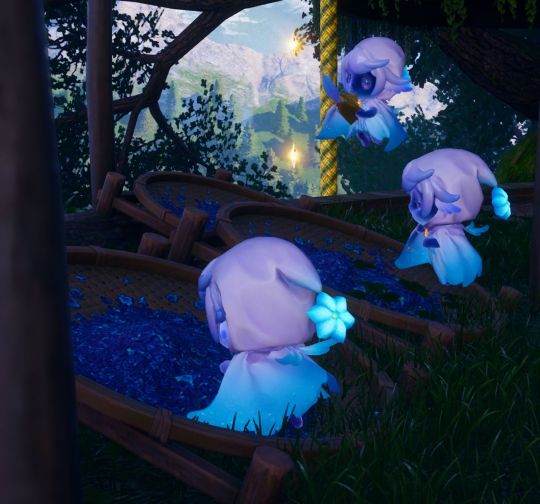
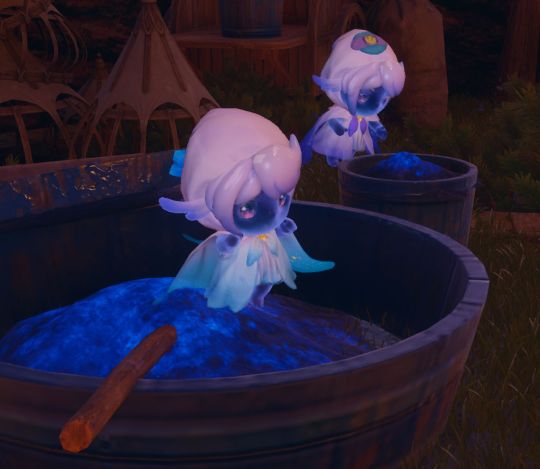
There does not seem to be any of them with the supervisor outfit that I could find.
They are mostly found at the dye station, reachable via cannon to the right of the Temple of Wishes (I'm noting this because I always get lost trying to find them).
Most of Timis's Beauty Lab staff appear to also be from this group, so they also probably consist of a lot of designers or are more inclined to be interested in makeup due to the nature of their work.
The dyes are mostly used in preparation of clothes for baby Faewish Sprites for the Coming-of-Age Ceremony.
Medical staff can be found assisting them as well. Maybe because a lot of them left to work for Timis...?
Anglers
Note: there's no official name for this if they are a formal organization/group, so I am going by Gooeybo's shop "Angler's Catch"
Color: light(ish) blue
Ornament: fish fin
Roles: they are fishing!
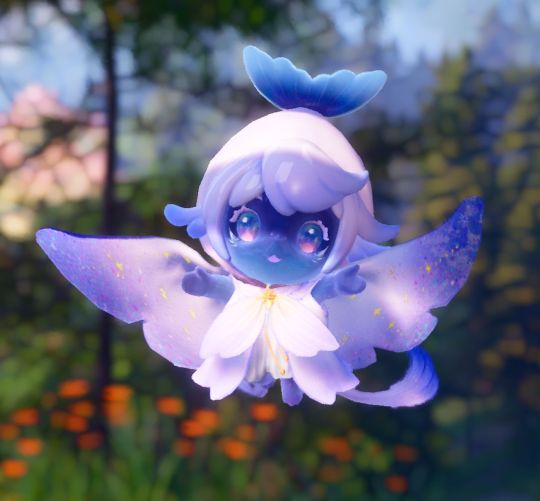
As far as I could find, Gooeybo is the only angler with the supervisor style outfit, but does not seem to use the coloration.
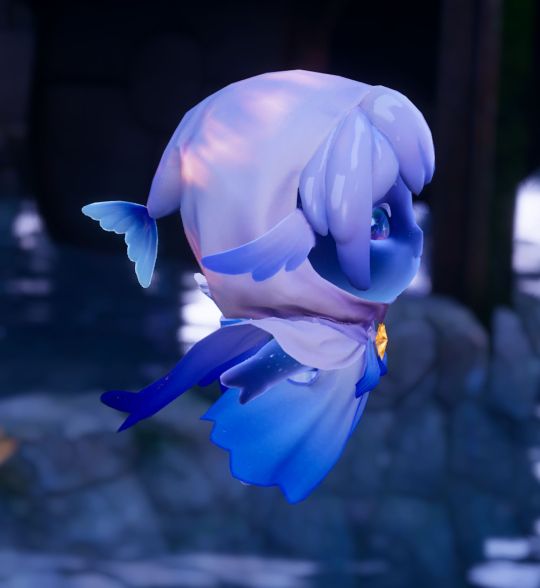
A few can be found diving in the river beside the Beauty Lab's Waterwheel or near Elderwood Riverbank where you first enter the Wishing Woods.
Gardeners/Farmers
Note: this is another one with no official name as far as I've seen and in fact it's not spelled out what they do, but based on the placement of these NPCs and what Bachada sells, I assume they are either of the above
Color: turquoise
Ornament: four pointed star flower with two green leaves for supervisor, two leaves for standard
Roles: appears to largely be in charge of cultivating plants like lampblooms and glimmerglass, harvests sol fruit and stellar fruit, presumably they are the ones who wrap Delicious Orbs in sol fruit leaves
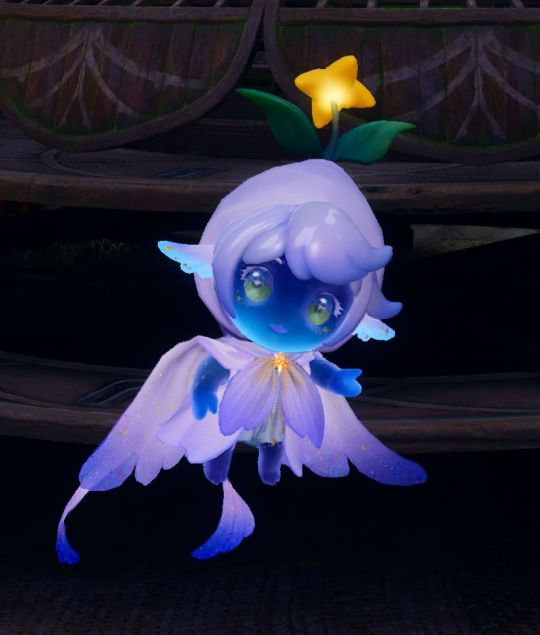
Bachada seems to be the only one with this ornament and the supervisor outfit, but does not use the coloration. I feel like I've seen other NPCs with this ornament, but I'm having trouble finding them.
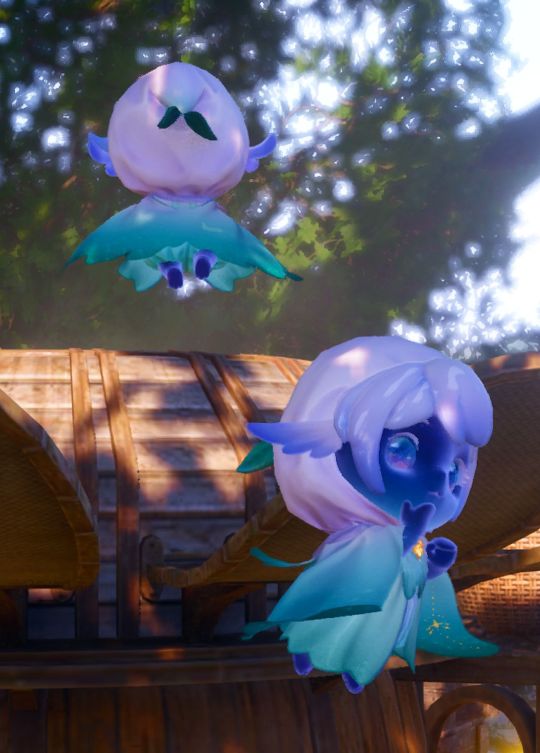
They can be found in several places, but notably some of them are working in Dorobo's kitchen overseeing the Delicious Orbs and other vegetables.
Ironically, I couldn't find any of them working in the farm that Timis rented.
Minigames
Color: dark orange
Ornament: standard minigame hat
Role: facilitating minigames
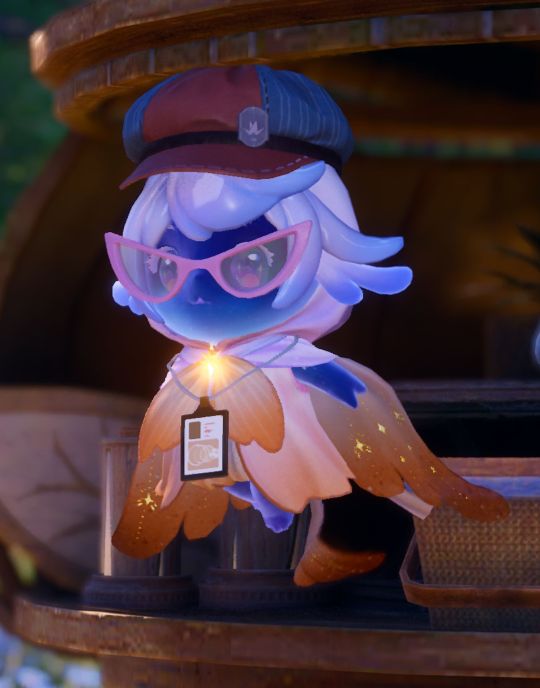
I just felt like I had to include them.
#infinity nikki#infinity nikki spoilers#infinity nikki lore#i uhhh this probably wouldve been better as a google doc or smth huh but. i got really far into it before thinking this so i got committed#TIL THERES A 30 IMAGE LIMIT#thankfully I hit it on literally the last image#i think i got everything i wanted to say down#faewish sprite
339 notes
·
View notes
Text
Female Guidance in Aventurine's Life

One thing I haven't seen discussed in much depth yet, but which I think is especially interesting, is the consistency of female guidance in Aventurine's life: Every single person who we have seen on screen offering Aventurine assistance or making a positive difference in his life is female (with one exception, yes, I'll get there).
Under the read more cause it's longggg:
Before even diving into his family, let's just get the obvious out of the way: Aventurine is, at least supposedly, blessed by a goddess. The very origin of his good fortune--be it actual blessing or curse--comes from the literal "mother goddess" who watches over him. This is one of the only instances in Star Rail where a god character is specifically given a gender, and Gaiathra is not ever ambiguous. She is the classic female fertility goddess with all the trappings of other famous triple goddess figures of the real world. Aventurine's personal belief in the goddess may be shaky, but he nevertheless continues to treasure his people's faith. Thus, at the core, we can say Aventurine is a character who is guarded by the most quintessential mother figure possible.
Now, with the most obvious out of the way:
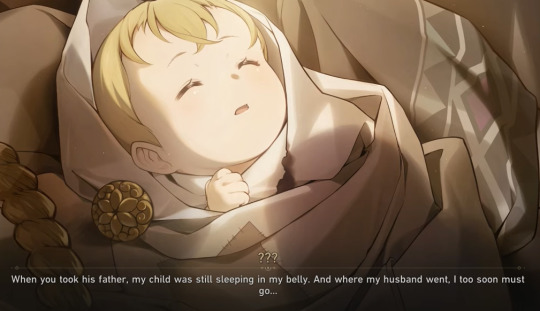
We know that Aventurine's father died before Aventurine was even born, and therefore he would not have any memories of his father, leaving him to be raised by his mother and sister.
Both women clearly made an enormous and lasting impression on Aventurine; they haunt every single one of his memories of Sigonia and are the key elements of the family Aventurine longs to return to. While he flirts with the concept of death as a way to see his family members again, it was also his mother and sister who instilled in him any sense of self-worth and meaning to his existence, the only things keeping him from giving up on living. His mother believed him to be blessed; his sister insisted to his face that not even the only remaining remnant of their mother had any value in comparison to his life.
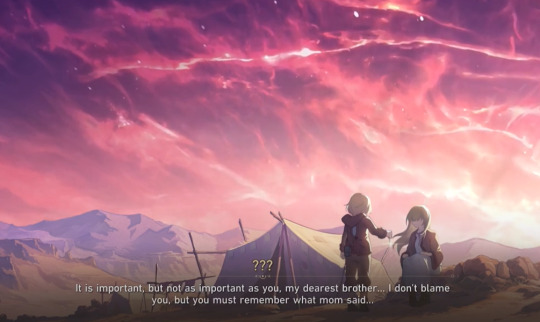
It is for his sister that Aventurine first begins expressing a self-sacrificial nature, and from his sister that this self-sacrifice is reinforced when she uses herself as a shield to help him escape massacre at the hands of the Katicans.
It is also from his sister that Aventurine learns many of the deeply meaningful actions he holds onto to the present day, despite having been so far removed from his own culture.
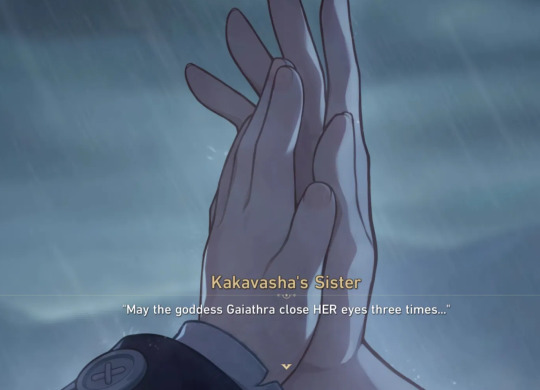
Conversely, every one of Aventurine's early negative experiences on screen appear to have been driven (at least primarily) by men.
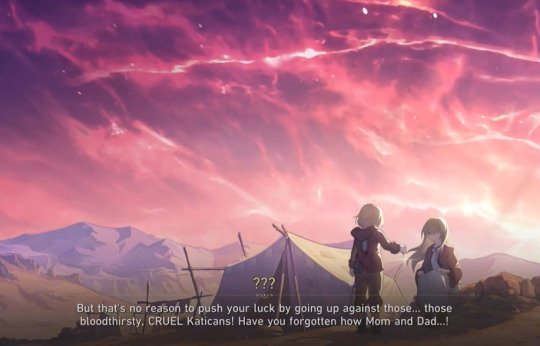
Although the Katican tribe of course would have both men and women, the tribal societies on Sigonia appear to be on the fairly traditional side, with Aventurine's mother staying at the camp with her child while his father was the one to go out and hunt for offerings for Gaiathra. This is also supported by Aventurine asking Jade to take him to her "chief" later on. Therefore, it is likely (although of course not guaranteed) that a majority of the Katicans' army was male, and that Aventurine's early experiences with outsiders consisted almost entirely of indiscriminate pillaging and massacre at the hands of what the Avgin viewed as savage, invading warriors. In separate instances, Aventurine was traumatized by these warrior figures three times--first with the loss of his father, then his mother, and then finally his sister.

And even their hope, supposed to come in the form of the "men in black" from the IPC, completely abandoned them, leaving Aventurine once again betrayed by masculine figures that were supposed to be there to protect him. Led by Oswaldo Schneider, another cruel male authority figure, the Marketing Department of the IPC permitted the wholesale slaughter of Aventurine's people--something which we know Aventurine is now aware of.
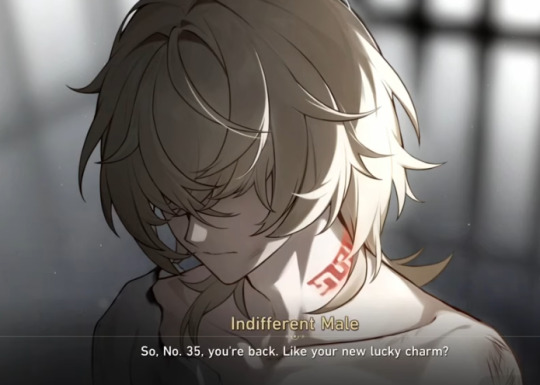
Then, of course, the next piece of Aventurine's backstory we're given is his male slave master. I don't really need to say anything about this, do I? This man violated Aventurine's human dignity and bodily autonomy, and forced Aventurine's hand in a life or death battle for which Aventurine still punishes himself mentally, even years in the future.
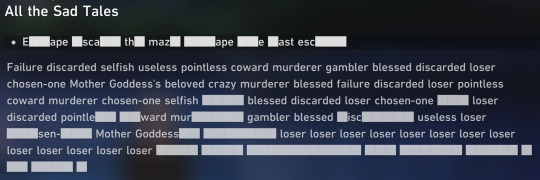
In part to escape the difficulty of his situation and rise to a position where he would have enough resources to--he thought--help his people, Aventurine joins up with the IPC. But when he attempts to make contact with a powerful man in the organization, Diamond, he is instead met by a woman, Jade, who against Aventurine's own expectations determines that she will raise Aventurine up (or use him as a tool, depending on how you currently choose to interpret Jade's motivations), granting him wealth and status beyond his imagination.
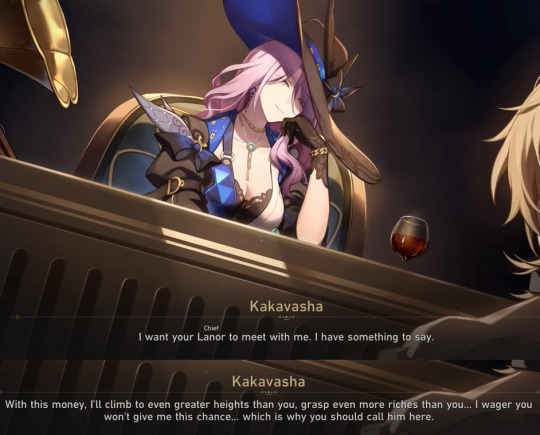
(And this line in particular is interesting, because you can take it one of two ways: 1) Aventurine comes from a patriarchal planet that traditionally put men into positions of power [thereby making his own slavery an emasculating act, aligning him further with disenfranchised women]; thus, he is making the assumption that to get anywhere in this organization, he will need to work with a man; or 2) He actually was counting on Jade taking his bet and helping him right from the beginning, because Aventurine perceives women as inherently more likely to protect and aid him than men would be.)
In the end, Jade does exactly as she claims she will, launching Aventurine into a position of power while also closing golden handcuffs around his wrists. She positions herself not only as his supervisor, but as his advocate and ally. She entrusts him with her Cornerstone, a sign of significant faith in his abilities. She even seems to be keenly aware of his bias towards the mother figure, referring to him as "child" in their conversations.

Whether this is genuine or a manipulation tactic can certainly be debated (and I'm not inclined to think at this point that Jade is a genuinely good role model or selflessly supportive person in Aventurine's life), but whatever the case, women are the only people Aventurine even remotely considers to be "in his corner."
We see this even earlier, in Aventurine's call to Topaz. Like with the example of his mother and sister, Aventurine trusts in Topaz's ability implicitly, and considers her above anyone else when it comes to completing the mission in Penacony.
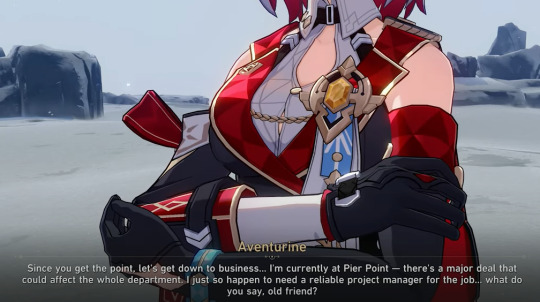
Although of course we don't know if Aventurine has any other friends or allies among the Strategic Investment Department, it seems very likely that Topaz, yet another woman, is the one he is closest with. At the very least, she is the only IPC character (so far) that Aventurine has a complimentary voice line for, one that shows his respect for her talent:

Over and over again, the story aligns Aventurine with female figures in positions of authority, and demonstrates that he is comfortable (although maybe not too comfortable, in the case of Jade) with relying on them and trusting their judgment, just as he did with his mother and sister.
And this pretty much goes off the charts in Penacony, where Aventurine has more involvement with the female cast than virtually any other non-female character (even the Trailblazer!). We set the pattern off right away, with Aventurine immediately being placed into a negotiation situation with Himeko, respecting her role as the Express's leader and working to get himself aligned with the Express by acquiescing to her request for support.
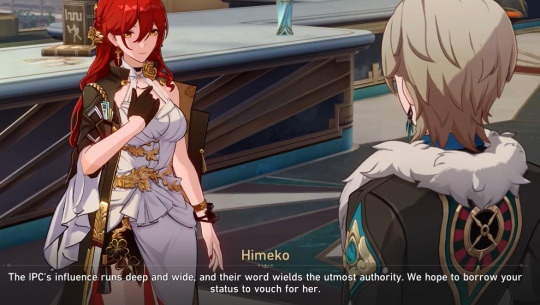
Then there's the fact that Aventurine is the one who finds Robin's body, an event which, although he didn't let it show too much, was almost certainly traumatic for him, given the violent death of his own sister.
Next, twice in Penacony's story, we see Aventurine seek out Sparkle for information. He may not personally like her and her comments may be both racist and dehumanizing, but Aventurine does rely on her--being the only character explicitly seeking her aid, which no one else in Penacony seems to want.
In 2.0...

And in 2.1.
Now, say it with me, guys: Aventurine built an entire portion of his grand plan around the idea that if he looked pathetic enough, a female character would absolutely come and help him. And sure enough, the women come through for him, always! Sparkle gives him the exact last clue he needs to confirm his belief that he could use "Death" to reach the true Penacony, sealing the deal for the rest of his plan.
His plan which also hinged significantly on Black Swan's involvement too, another woman that he views as, if not trustworthy, then at least intelligent and hyper-competent.
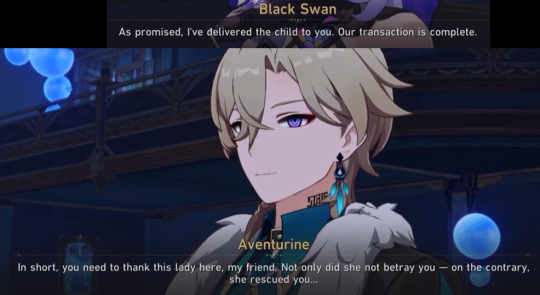
Contrast all this, of course, with the treatment Aventurine receives at the hands of Sunday, the lone opposing male character he faces in Penacony.
Sparkle implies that Sunday would humiliate Aventurine in an unmistakably sexual and degrading way, and Sunday himself professes this same desire to see Aventurine humiliated.
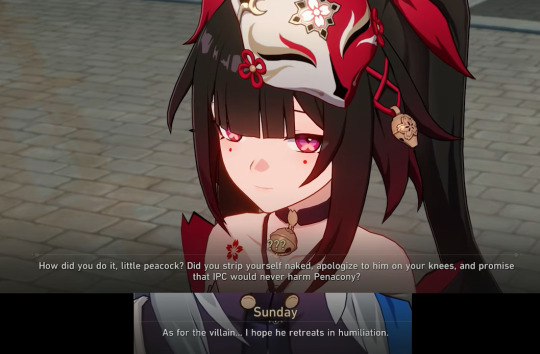
Then we're "treated" to the moment in which Sunday uses the Harmony's (or perhaps actually the Order's?) power against Aventurine, in a scene which is supposed to reflect an interrogation but is also, very clearly, another nonconsensual violation of Aventurine's bodily autonomy and dignity by a man. While ostensibly seeking confirmation of the Cornerstone ruse, Sunday instead subjects Aventurine to unnecessary questions about his past on Sigonia, which recall and force Aventurine to re-endure memories of his trauma.
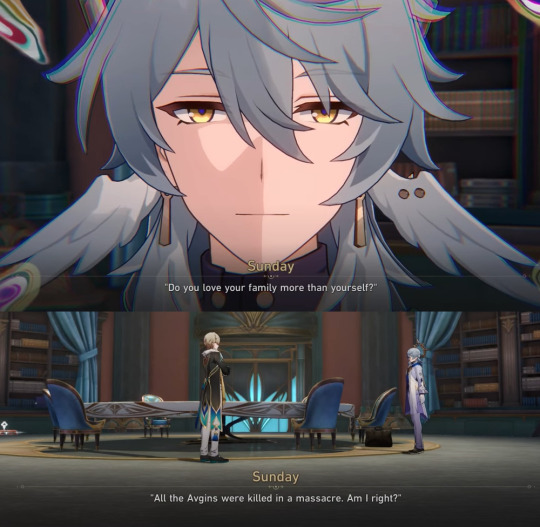
Even if this is what Aventurine prepared himself for and planned to have happen, the pain he experiences is very real, and he suffers both the physical and emotional consequences of Sunday's assault all the way up to his "Death" and possibly even beyond.
(Also, Sunday fans please don't get too up in arms with me for this; I also like Sunday! It's okay for characters to be morally grey!)
I think there's one other interesting example I would bring up here too, and that's Aventurine's conscious decision to weaponize his own masculinity against the Trailblazer. Through the 2.0 and 2.1 Trailblaze missions, Aventurine deliberately acts in an off-putting manner to the Astral Express crew, particularly the Trailblazer, in order to build up to the 2.1 climax where the Trailblazer is supposed to view him as an unrepentant villain and attack him without hesitation.
In order to achieve this uncomfortable, villainous effect, what does Aventurine do? Exactly what other men have done to him.
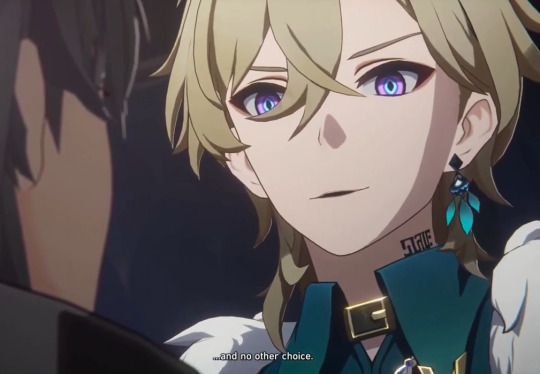
This is especially apparent if you're playing Stelle because of the ingrained societal taboo of a man entering a woman's personal space without consent, but even as Caelus, it is very clear that Aventurine is leveraging behaviors typically used to show dominance: In a complete 180 to all Aventurine's other body language in the game (normally quite withdrawn, frequently in defensive postures with his arms crossed or hand behind his back, almost always standing several feet away from other people), Aventurine violates the Trailblazer's personal bubble, looming over them (Caelus was sitting in this cutscene, lol), forcing eye contact, and commanding the space while informing them that they will have no choice.
For someone who was hunted, enslaved, had his movements restricted with chains, and due to his own slight stature has very likely been towered over by others who were intentionally asserting their power over him all his life, it is clear that Aventurine associates dominant, typically more masculine-coded physically-imposing behaviors with discomfort and even villainy.
Any girl who has ever had a man loom over her like this will realize very quickly: Aventurine wanted to make himself scary so he made himself act more like a bad man.
(Yes of course I know "not all men." I'm not saying every man behaves in this domineering way or that women cannot be domineering too, obviously, just that Aventurine had a very specific image in mind when constructing a "villainous persona," and the physically controlling tactics most typically used by aggressive men toward women was his immediate go-to.)
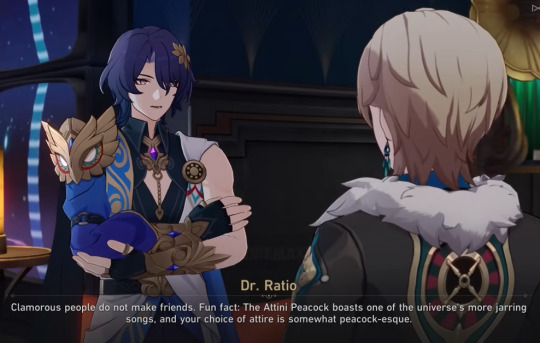
But where does that leave Dr. Ratio, the one male character actually on Aventurine's side?
Frankly, I don't want to derail my post about how intensely Hoyo chose to hammer on the message of "Women will protect you" in Aventurine's story with a discussion about a mlm ship, but the take-away here is going to lead in that direction anyway--so yes, Dr. Ratio is the exception.
What is interesting is that he does not come across as an exception at first, and in fact initially appears as another male character being rude and dismissive to Aventurine. Like, there are still people out there calling Ratio an unrepentant racist for this one.
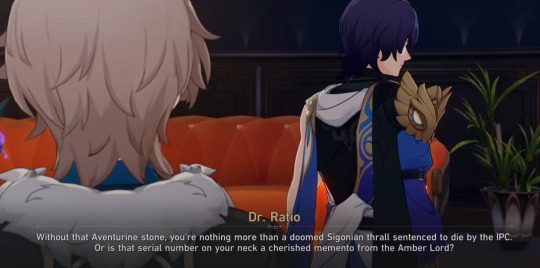
Of course, it's later clarified that this is an act--likely even these insults were scripted specifically to give Sunday's spying ears the "insight" he needed to exploit Aventurine during the interrogation.
But even though it is an act, Aventurine still has noticeable trouble putting his faith in Ratio. He does genuinely doubt him a few times, despite knowing that they are working together to fool the Family.
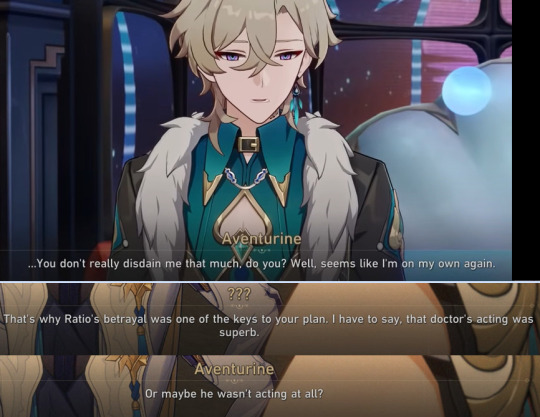
Even his voice line about Ratio confirms that he doesn't think Ratio particularly cares for him; rather, he thinks Ratio simply tolerates him because he's slightly less unintelligent than those around them.
Ultimately, the entire act with Ratio ends up being a mirror of the real scenarios Aventurine has been experiencing with men his whole life (at least as far as we are shown his life). Men abandon him to fend for himself (unwillingly, like his father, or willingly, like Diamond leaving Aventurine to deal with Penacony alone on the inside). Ratio keeps leaving Aventurine completely alone. Men attempt to humiliate him and violate his boundaries (like Sunday and his slave master). Ratio insults Aventurine's appearance and intelligence repeatedly. Men betray him (like Oswaldo Schneider and his men leaving the Avgin to die). Ratio "betrays" him.
I'm not saying when Aventurine devised the plan for their act, he consciously drew up a list of all the ways men had hurt him in the past and had Ratio re-enact them one by one, but like... that's what happened, whether or not Aventurine intended it.
And okay, the shrinking scene in Dewlight Pavilion was just for fun and probably only slightly fetishy, the devs promise; yes, it was supposed to be a joke! ...But it's also not a mistake that this is yet another instance of a male character in a glaringly metaphorical position of power over Aventurine. Aventurine's tiny in this scene! He's completely vulnerable! He's in a dangerous position and the male character could very much hurt him in this moment.

But Ratio doesn't. (In fact, his line here is supposed to be sarcastic, very ha ha--but also, what is Ratio really saying? "I won't do anything to you without your express consent." What a good guy.)
Virtually everything negative that we see in 2.1 is Ratio doing these things as an act at Aventurine's own request. He doesn't actually disdain Aventurine; his own voiceline about Aventurine reinforces that he sees Aventurine as talented and intelligent.
Whatever you think he was apologizing for in their early scene, he's the only person we're ever shown in-game apologizing to Aventurine at all.
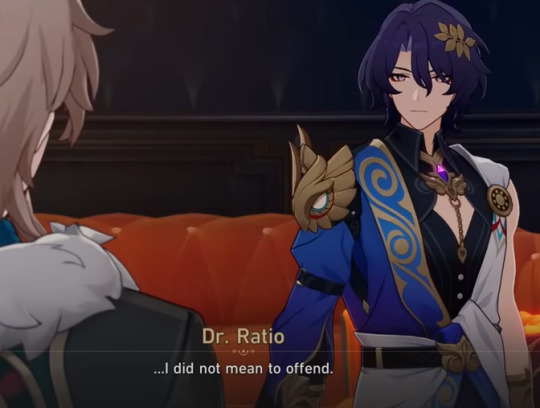
He worked hard to "betray" Aventurine but only as he was instructed to do, and immediately checks in on Aventurine's well-being afterward, even urging him to give up the plan if it becomes too much to handle.
And then, of course, there's the note: "Do stay alive. I wish you the best of luck."
After this point, it cannot be denied that Ratio is unequivocally on Aventurine's side, wants to help him, and is not doing so out of any sense of self-gain but largely because he is a good person who simply cares about Aventurine's fate. By the end of 2.1, it can no longer be doubted that Ratio is the exception to the "gender rule" of Aventurine's life, which--the story shows us again and again--was that guidance, protection, and care for Aventurine come from women, while men repeatedly represent dismissal, betrayal, or pain.
Ratio is, at least as far as Aventurine's story shows us, the proof that men can be good, that things are not as black and white in Aventurine's life as they might appear, and that--if you do choose to ship him with or see Aventurine as attracted to men--his attraction could be validated (and potentially reciprocated) by a male figure who would not bring additional harm to Aventurine's life. Aventurine makes the final decision to live after seeing Ratio's note--the exception to the rule ultimately proves to be the last piece needed to keep him alive.
But I promised I wasn't going to derail my own post about w o m e n, so let me get to the final point, and the one I really wanted to talk about: Although Ratio gets virtually all the credit for "saving" Aventurine in the fandom, Aventurine was actually saved by, you guessed it, another woman.
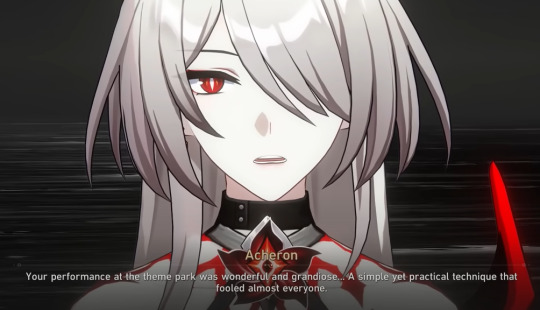
Not going to lie, the reason I started this post was specifically because I wanted to talk about how Acheron and Aventurine's dynamic was completely unexpected but actually fits flawlessly with the theme of feminine guidance in Aventurine's story.
Despite the fact that Aventurine made Acheron's life much harder and actively used her as a chip in his grand gamble, she doesn't blame or chastise him for those actions. Although she expresses some incredulity that Aventurine is actually that lucky, she then turns around and congratulations him for his ingenuity, immediately supporting him despite the fact that they don't even truly know each other.
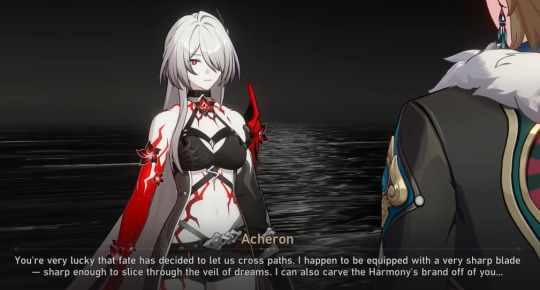
Then it gets even more interesting. Acheron, who frequently hits her companions with deep and sometimes very emotionally fraught questions, asks Aventurine: "Have you never wavered?"
We as players know for a fact that Aventurine is constantly wavering, constantly doubting himself, his luck, and whether he'll even live--or even wants to live--to see tomorrow. But we also know that Aventurine is not forthcoming about those truths, refusing to express them to anyone, even himself. The only way we hear those dark truths is through his "future" self (who by the way, is once again another male figure cutting Aventurine down--of course it's himself but it's also, from the player's perspective, once again reinforcing the message that he isn't going to find safety or kindness in an adult male presence). Aventurine almost constantly deflects and diverts when his emotions or struggles are brought to the fore (unless he's divulging them for the specific purpose of allowing someone else to weaponize them). "I'm fine," he says, like a lying liar who lies.
But he doesn't lie to Acheron.

He chooses to be completely candid with her, to lance open the deepest wound of his life--that he can win and win and win and still have lost everything. The glitz and the glamour has all been stripped away here, at the end of everything, and Aventurine finally feels safe enough to admit that he fears he has absolutely nothing in his life worth living for.
And then, we get this direct parallel: Aventurine looks to Acheron, the woman now before him, for guidance, for explanation, exactly as he looked to his sister in the past.
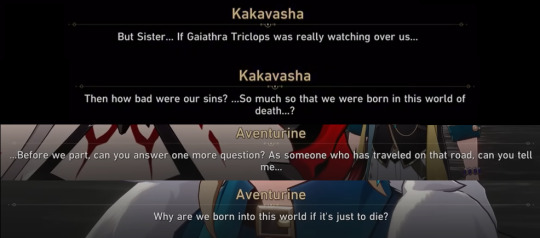
He needs help, he needs answers, and he is continually seeking that help from the female figures in his life, whose support and kindness echo the lost care of his mother and sister.
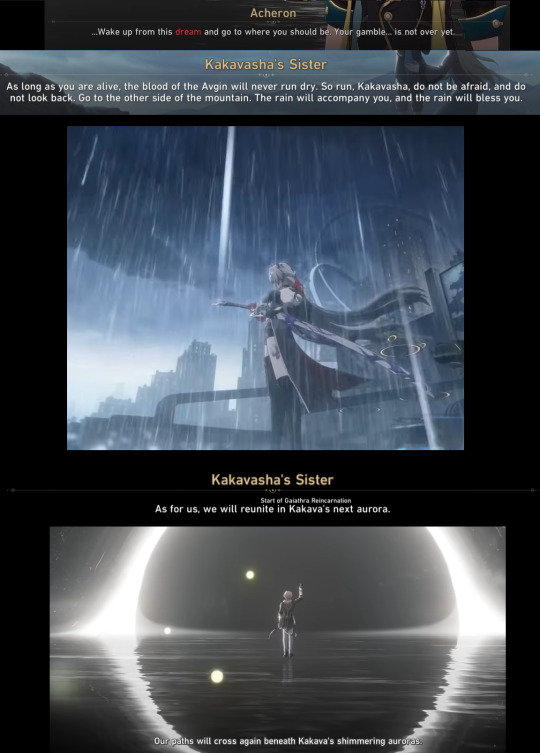
"Go where you should be," Acheron tells Aventurine, guiding him across the river of death just as his sister insisted that he flee through the rain toward life.
Look guys, Acheron's even the one who reminds Aventurine to look at Ratio's note in the first place because apparently being an emanator of Nihility gives you x-ray vision, but my girl just gets no credit at all for being Aventurine's real savior, come on now!! Yes, Ratio's note was the final reminder Aventurine needed that someone would be waiting for him on the other side, but Aventurine would never have even gotten to the point of being willing to read that note if Acheron hadn't stepped in and provided him an answer to his question.
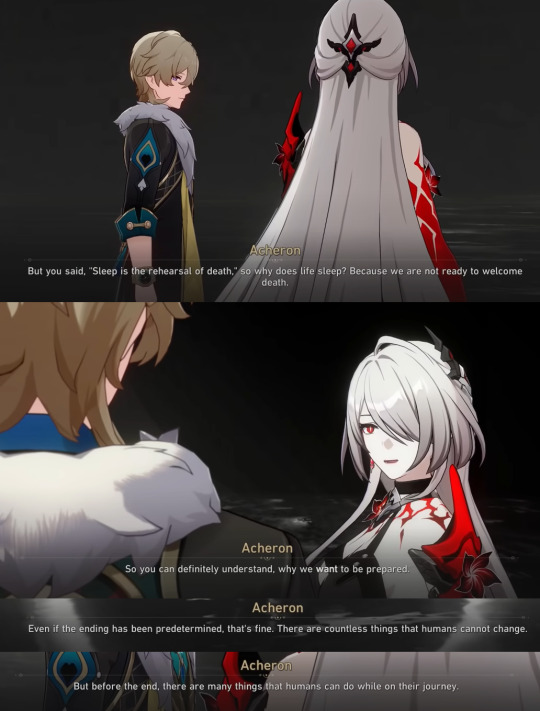
She feeds him back his own answer: "Why does life slumber? To rehearse the death for which we are not currently prepared." It is Acheron who reminds Aventurine that giving into the Nihility is pointless, and that rather than simply embracing a meaningless death, it is up to humanity itself to find and make meaning by living. It's this, not Ratio's note, that Aventurine gives as his reason for choosing to go on when asked by his own younger self. It's Acheron's words that finally give Aventurine an answer--why do we live just to die? Because there are people we can still make proud. Because when we go into death, we should do so with our heads held high, having achieved our own sense of purpose in this life.
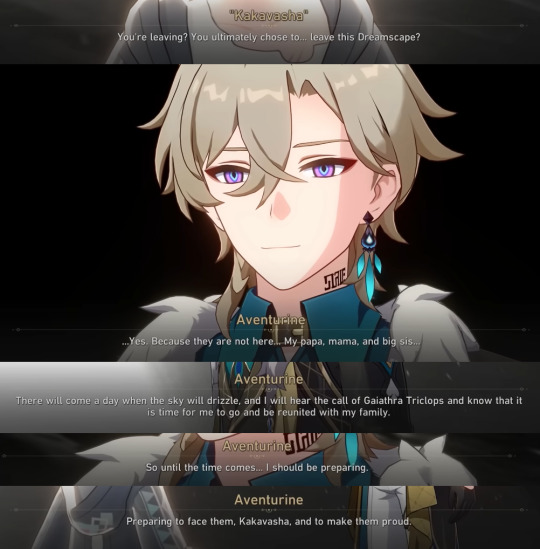
Ratio gave Aventurine a promise: Someone is waiting for you to come back.
But Acheron gave Aventurine a reason: If life is inherently meaningless, doesn't that just mean you are free to give it meaning yourself?
She saved him, as women have been saving him all his life.
Anyway, this has already been horrendously long, but really what I wanted to say is that I think it is absolutely fascinating how consistent Aventurine's writing is when it comes to portraying where his support comes from and who he seeks guidance from. (Psst, just in case you still haven't figured it out, it's women!) In virtually every instance we are shown, we see the message reinforced that women are Aventurine's greatest allies and role models, while male figures are continually positioned to intentionally or unintentionally let him down and cause him distress.
"But women playing the supporting role to a male character is nothing new, Star, why are you so excited by this?"
Because the role women are playing in Aventurine's life is not the subservient supporter and emotional crutch role that female characters all too often play to male counterparts. None of the women in Penacony or Aventurine's past were there to do the emotional labor for him, to be a trophy or prize, or to cater to his needs. They don't exist solely to help him fulfill his character motivations; they aren't following him around waiting for his next request as their only role in the plot.
Instead, with Aventurine's story, we almost have an inversion of gender roles, where the male character eschews the stereotypical "men are leaders, fighters, and stoic heroes" archetype. Instead, no matter how hard he tries to hide it and keep a stiff upper lip, it is clear from 2.0-2.1's story that Aventurine is a deeply insecure, lonely, and explicitly traumatized survivor of genocide, slavery, and exploitation. Unlike most male characters, who are very rarely portrayed as genuine victims--because come on, shouldn't men be strong enough to fight back? Shouldn't men be able to shrug it off when they are hurt, emotionally or physically? (Of course I'm rolling my eyes here!)--Aventurine is belittled, humiliated, emasculated, and victimized on-screen, roles almost exclusively reserved for women, for whom surviving victimization in fiction is seen as noble.
Meanwhile, the women in Aventurine's life take on the roles traditionally given to male characters. They're both emotionally and physically his protectors. Aventurine's sister gave her life to guard his safety; Acheron ensured he could safely pass beyond the river of Nihility into the Primordial Dreamscape. They give him the tools necessary to succeed where he could not succeed on his own. His plan could never have gotten off the ground without Topaz and Jade entrusting their Cornerstones to him. The knowledge and capabilities of the women around him--not their "feminine charms"--are what allow them to help keep Aventurine on the right path even though he does waver. Even women who disrespect him, like Sparkle, still play a positive role in his life, able to provide him insight gained with their own intellect and talents.
When he has no one to rely on and doesn't know what to do, Aventurine is able to continually turn to the women around him, asking for and receiving not servitude or fawning, but their genuine wisdom and guidance.
tl;dr: If nobody else has him, Aventurine knows this random woman he met two minutes ago on the street will have him, because the women in his life literally never let him down.
(It's just so, so good, and ultimately, it should be very clear why Aventurine's story is as popular with women as it is! A+, Hoyo!)
#honkai star rail#aventurine#acheron#topaz hsr#honkai star rail meta#character analysis#there's a bit of#ratiorine#in here too#but mostly I ramble about WOMEN#thematic parallels#thematic parallels everywhere#it's long#I'm sorry but not really#sometimes you act like a normal fan#other times you're me#and write essays that wouldn't be out of place in gender studies class#also I hit the '30 images per post' limit and had to make do#please ignore the terrible merging I did of the photos#don't perceive my MS Paint job
1K notes
·
View notes
Text
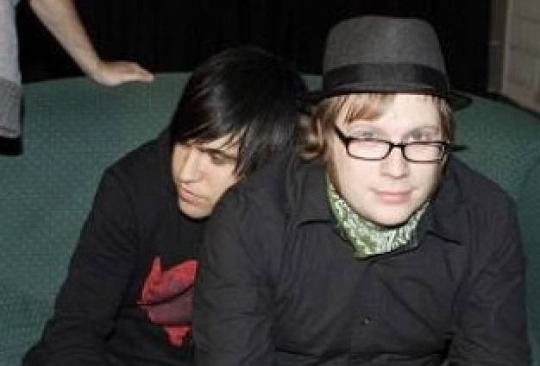







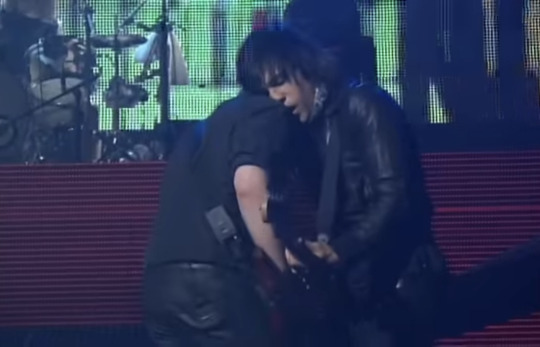





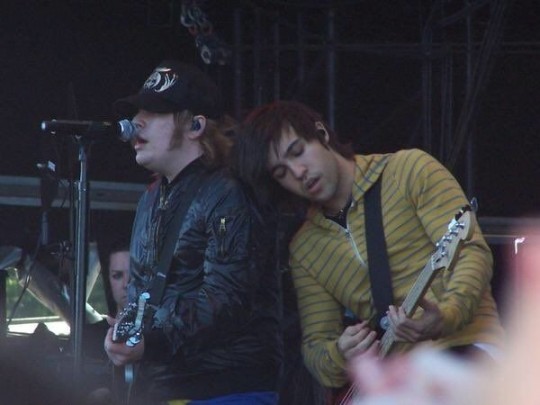



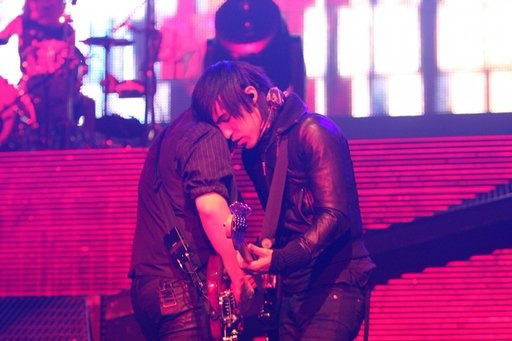

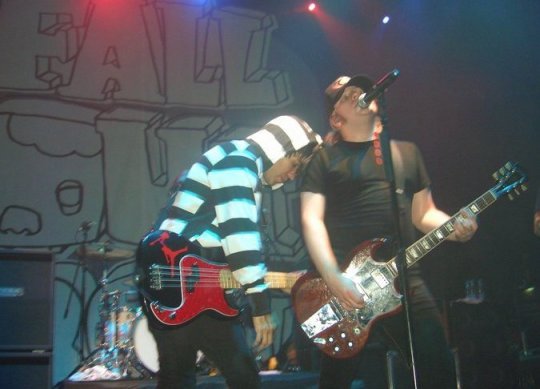









#every time I see some of these pictures I just think of this#I did hit image limit on this one btw. 30 images 👍#she speaks!#fob#fall out boy#two halves of a whole member of fall out boy#I'm.. going to maintag this. for posterity#p2#peterick#ww#web weaving#image quality on some of these flopped when I cropped them lol
249 notes
·
View notes
Text
Fave Chilchuck + Laios interactions
Moments when they're on the same page
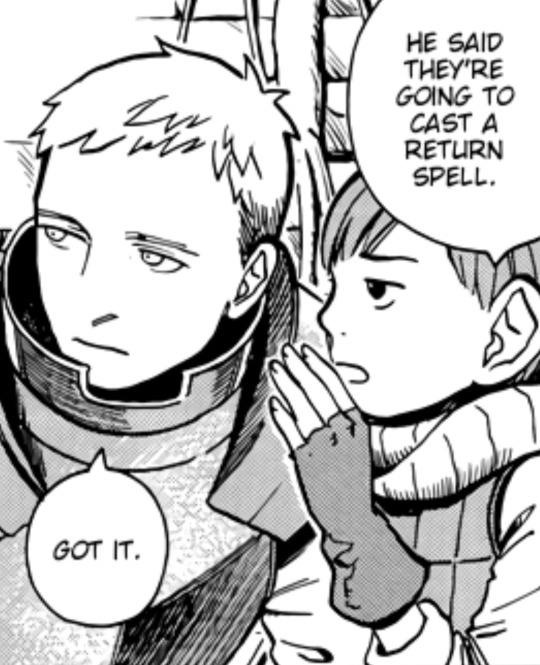
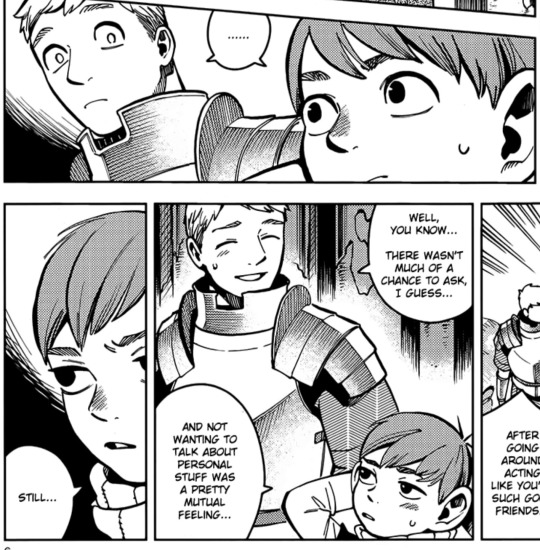
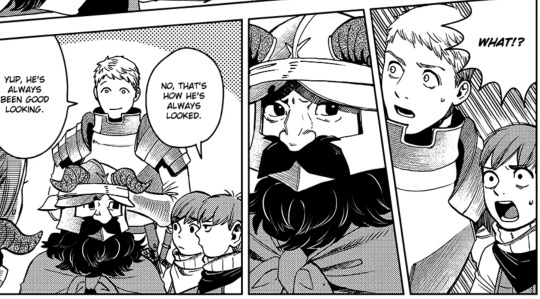
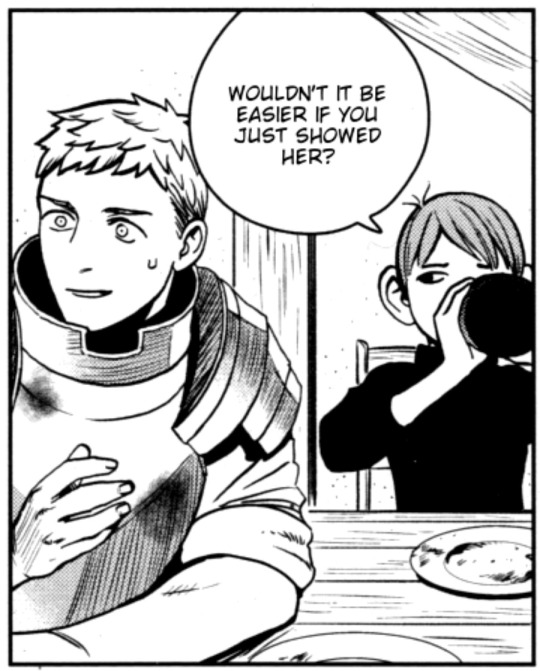
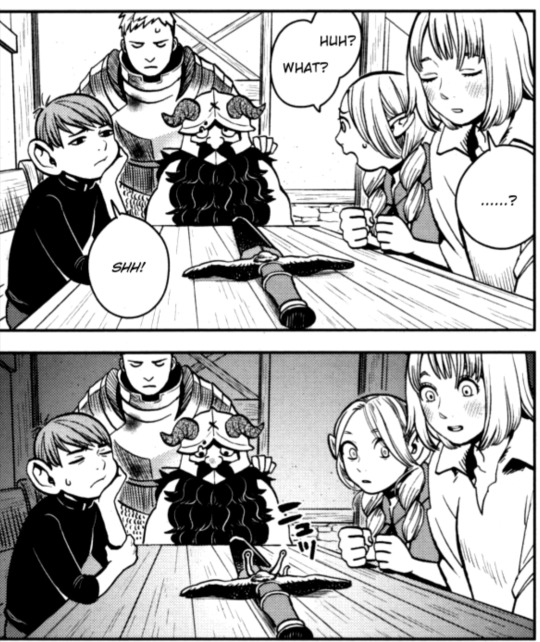
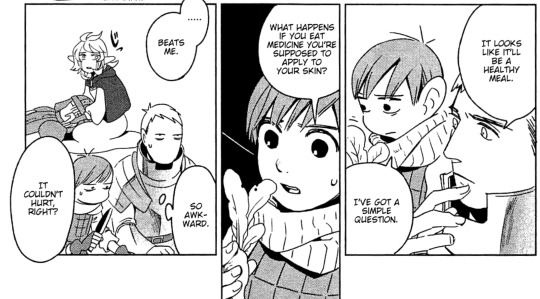
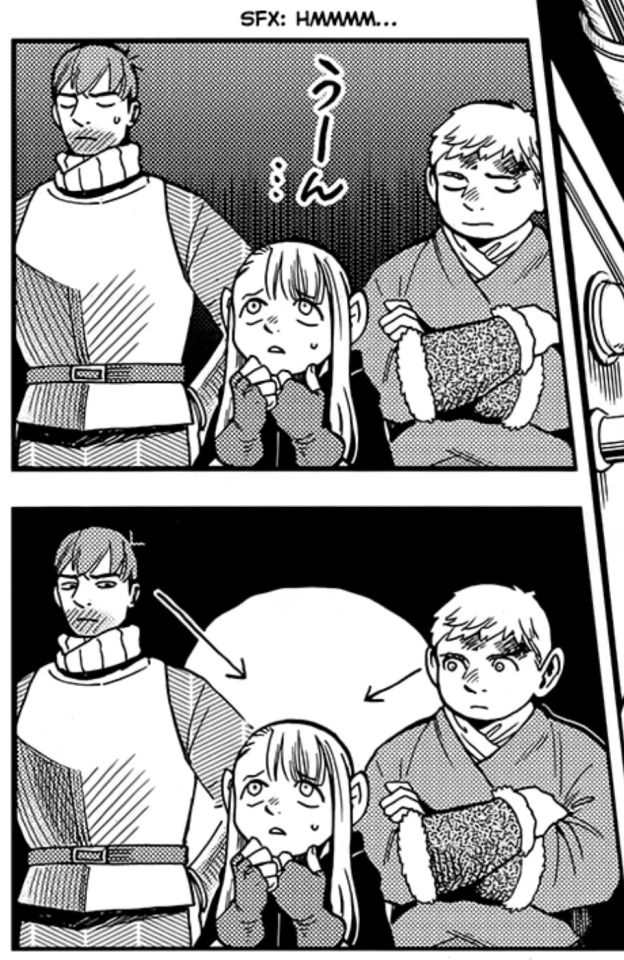
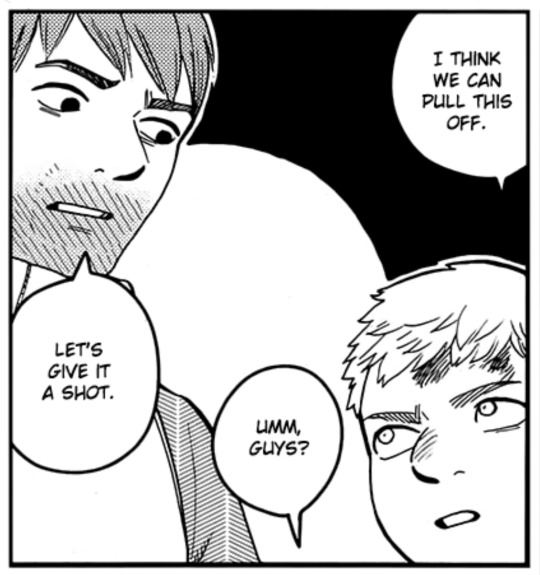
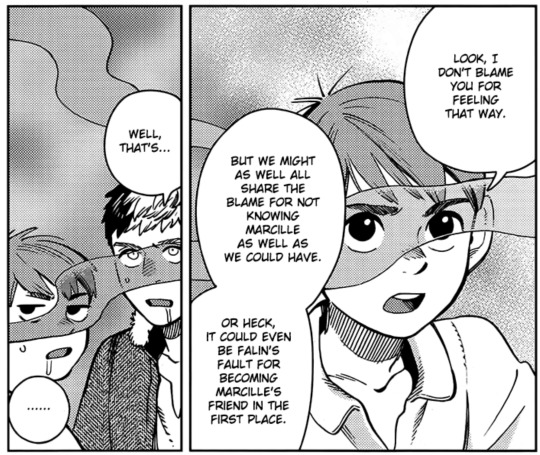
2. Chilchuck being pissed off at Laios
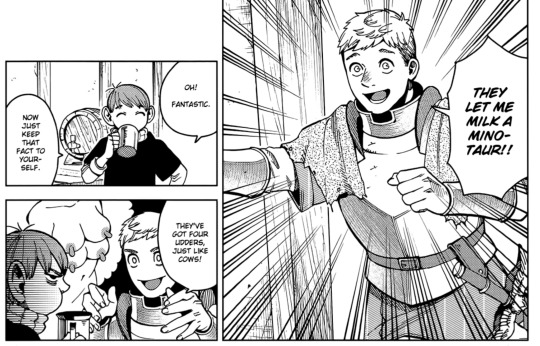
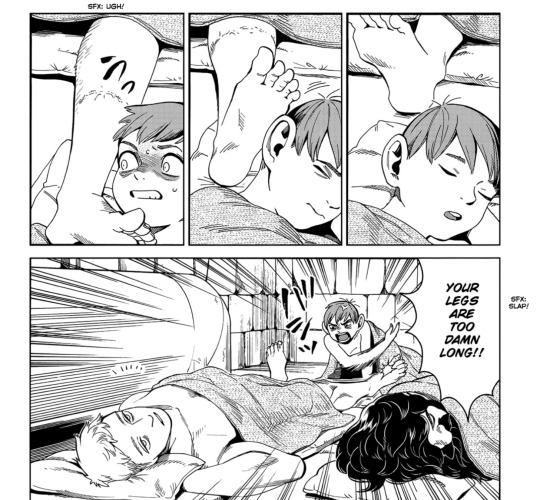
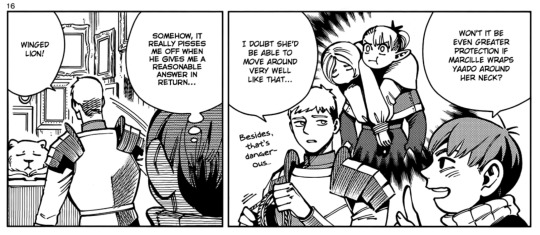
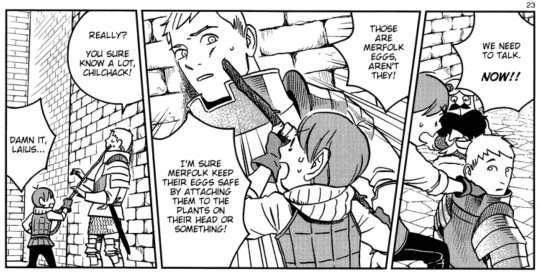
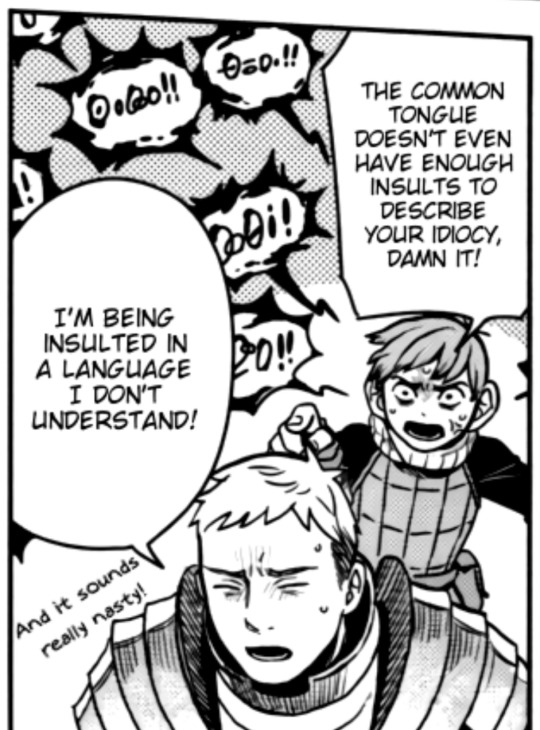
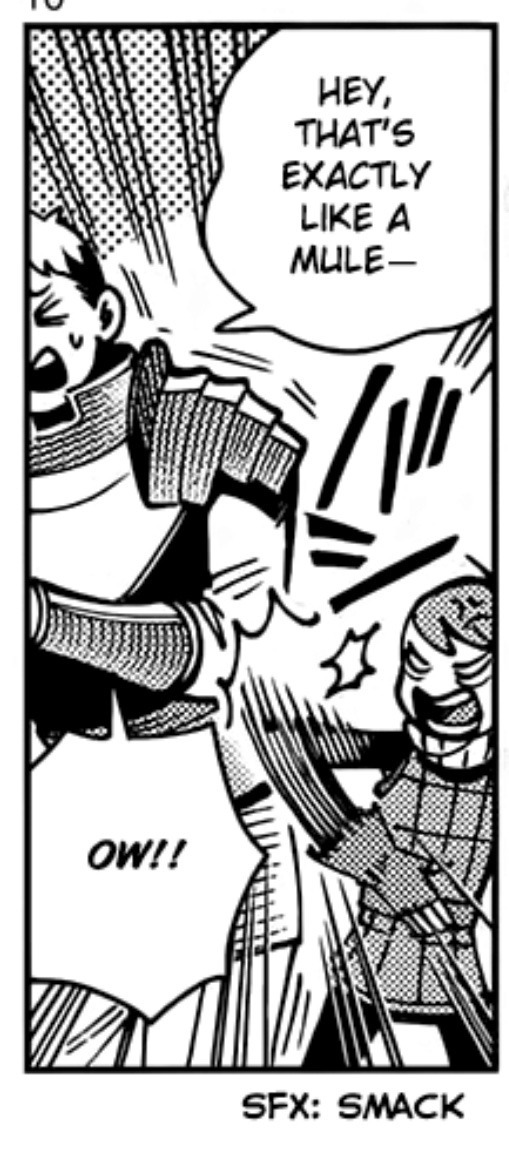
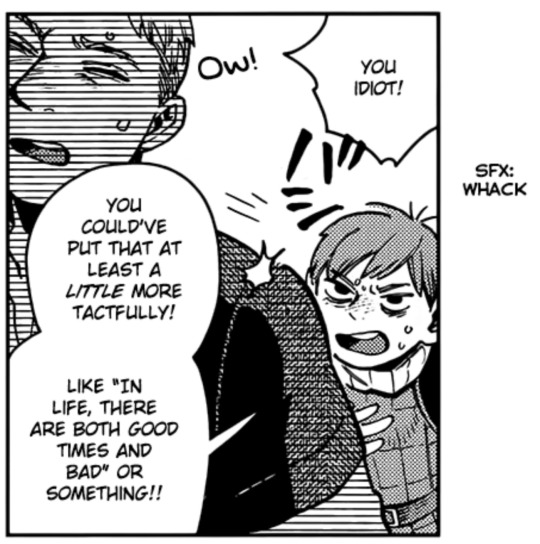
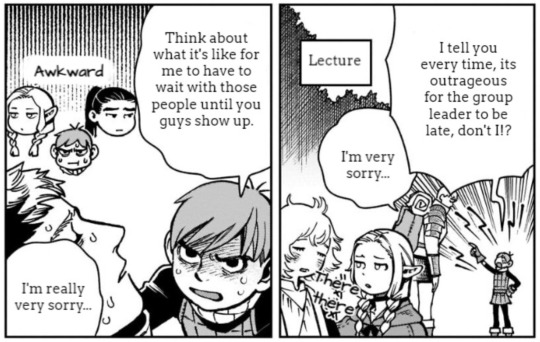
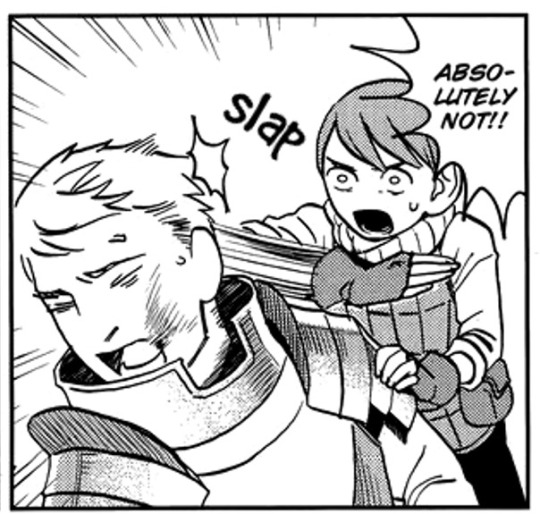
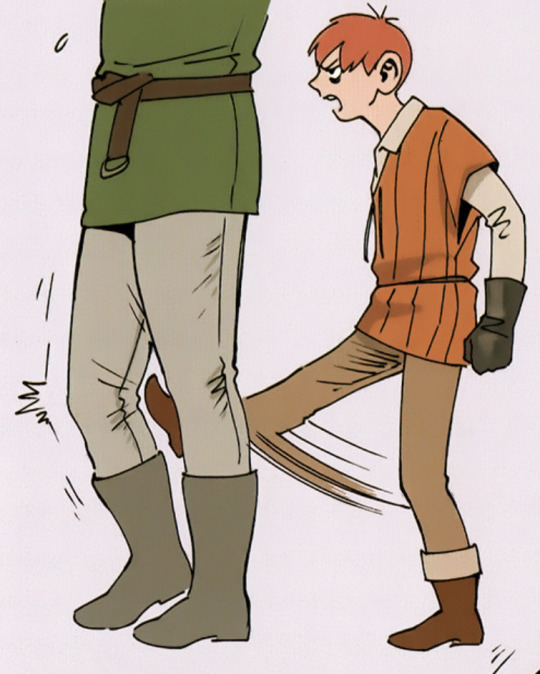
3. Chilchuck generally being unable to show he cares about Laios without violence

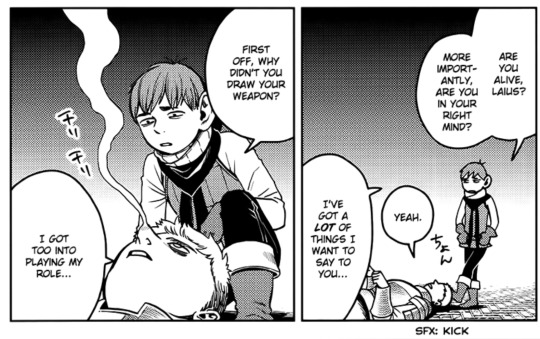
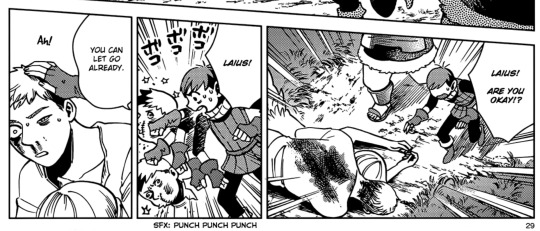
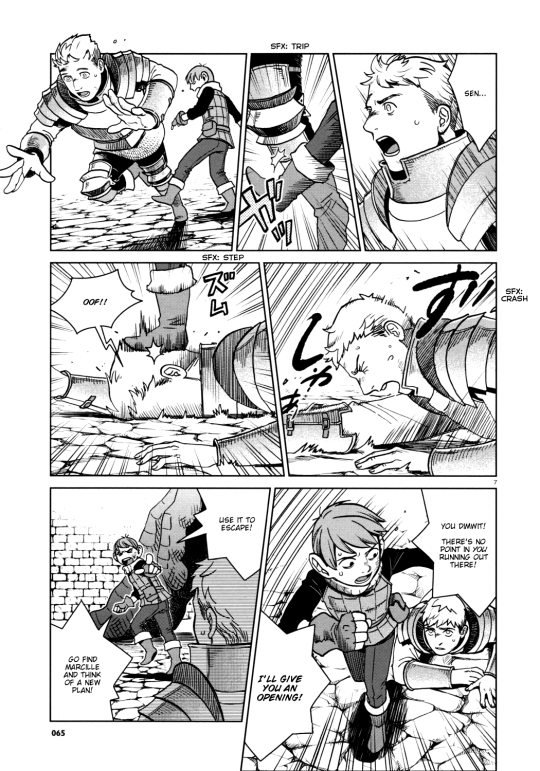
4. Whatever these are <3
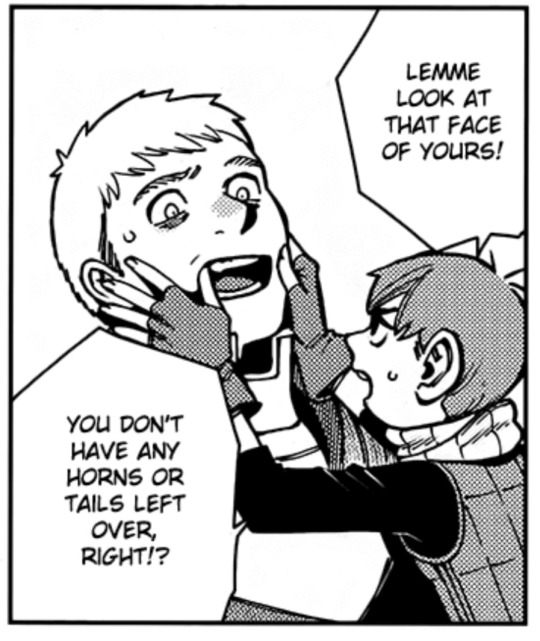
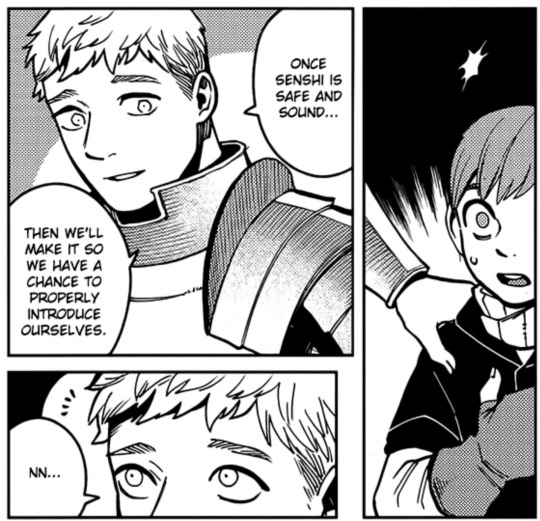
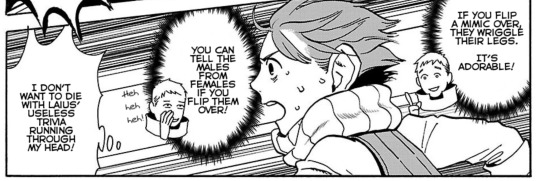
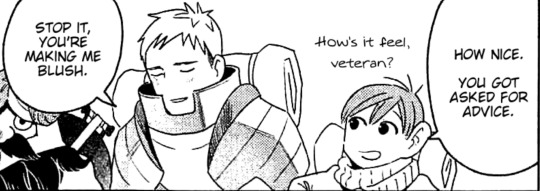
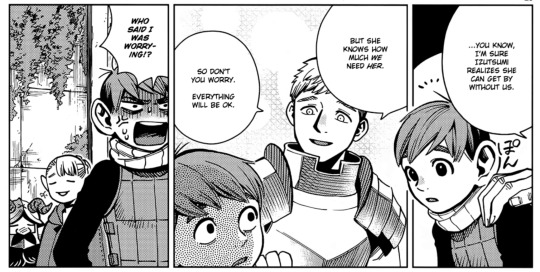
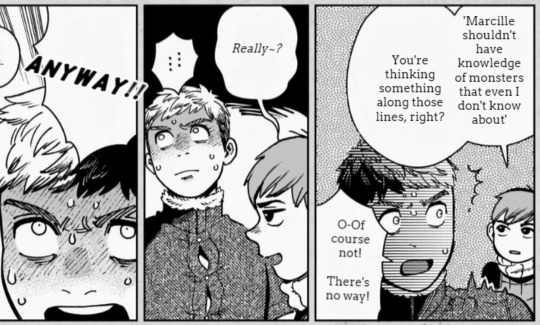
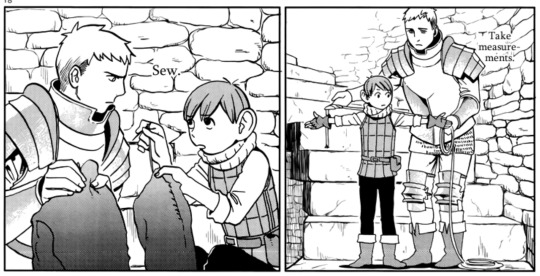
#yes i do have brain worms thanks for askin#dungeon meshi spoilers#dungeon meshi#delicious in dungeon spoilers#delicious in dungeon#chilchuck tims#chilchack tims#laios touden#laios thorden#chilaios#i just uggghhhhh!!!!! I care them!!!!!!!#btw this isn't even all of them i just hit the 30 image limit
687 notes
·
View notes
Text
SIMM and Dao's Love Language
I'm going to get emotional about KluenDao again because I realised something about how Kluen shows his love for Dao.
(I have a theory that) Dao's primary love language is Acts of Service:
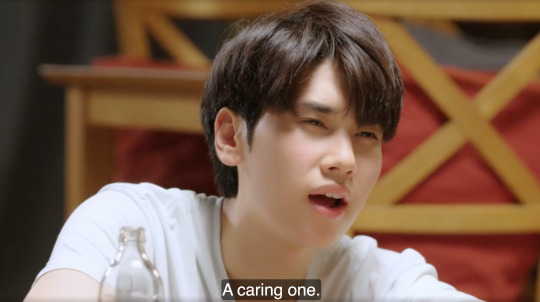
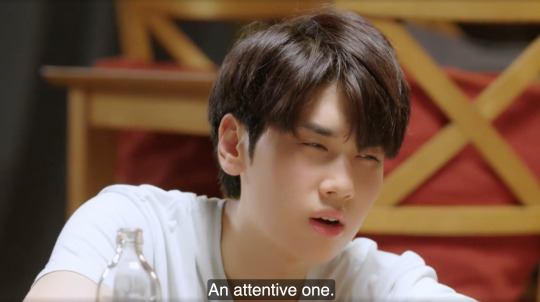
It's the main feature of what he describes when Typhoon asks him what his "type" is.
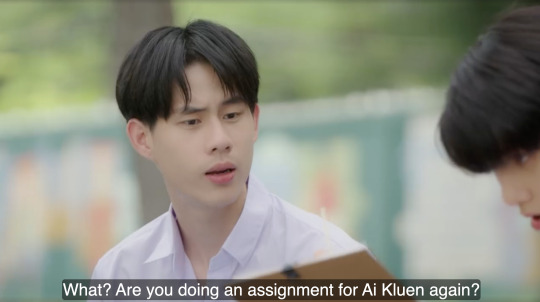
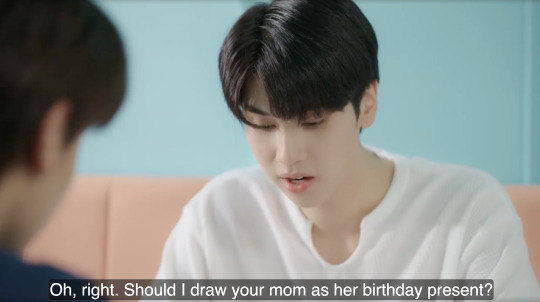
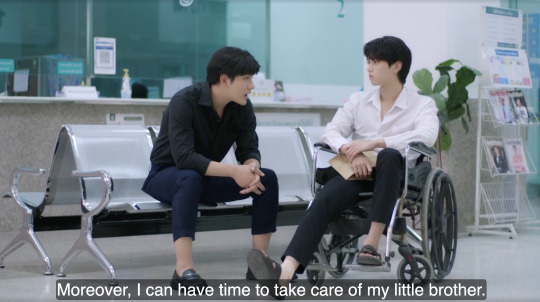
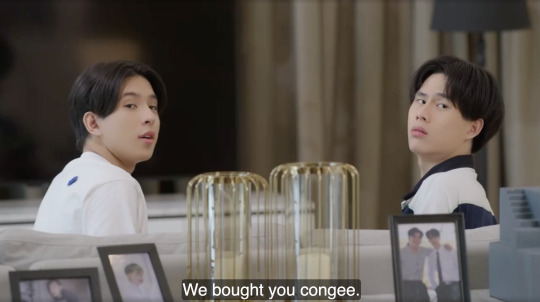
It's how Dao shows his love for Kluen: doing Kluen's art homework for him and offering to make Kluen's mom's birthday present. It's not (just) about doing art, but specifically because it meets a need that Kluen has.
It's also how Fah and his closest friends show their love for Dao.
So lets take a look at how Kluen shows his love for Dao throughout the show:
Kluen in the "wooing" stage:
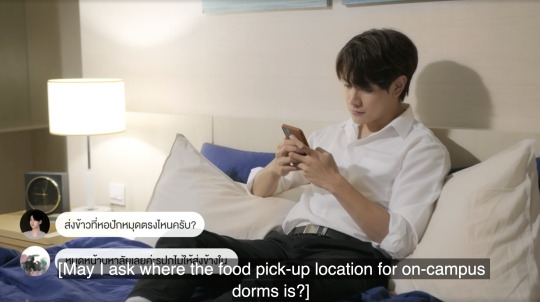

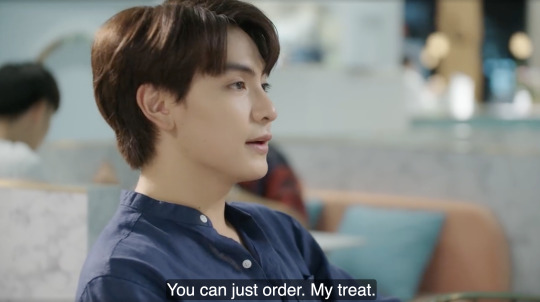
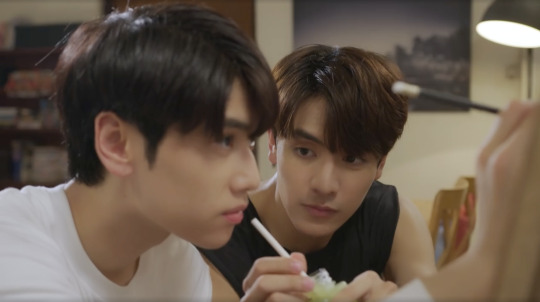
From early in the series, Kluen consistently shows his attentiveness and care via 'food/drinks as a metaphor for love', which is also a clear example of Acts of Service because he's providing for needs Dao has in the moment.
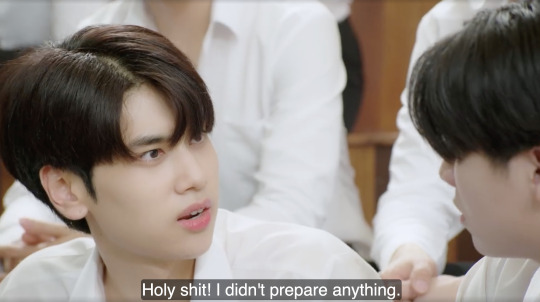
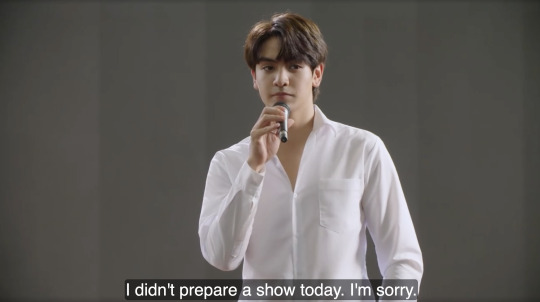
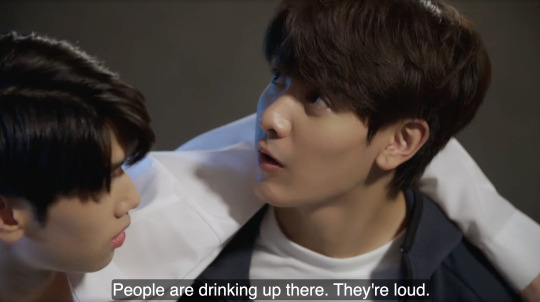
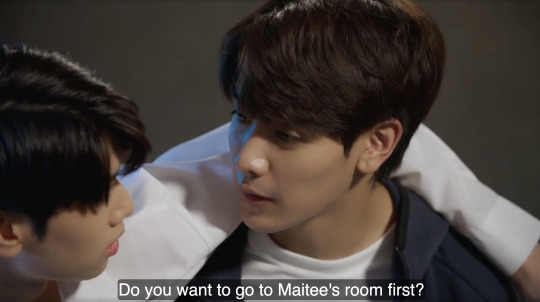
These are also both great examples of Acts of Service as Kluen either identifies and addresses a burden that Dao has or preempts a potential source of stress and offers an alternative.
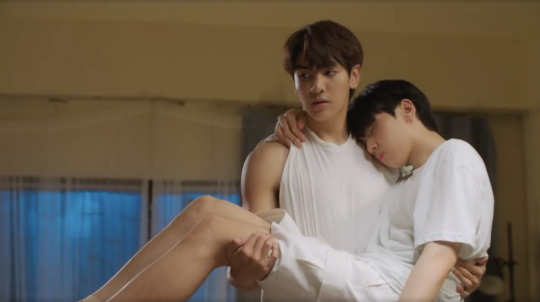

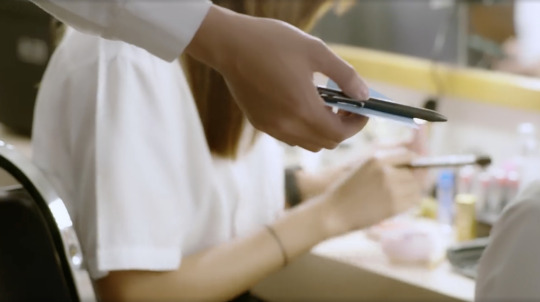
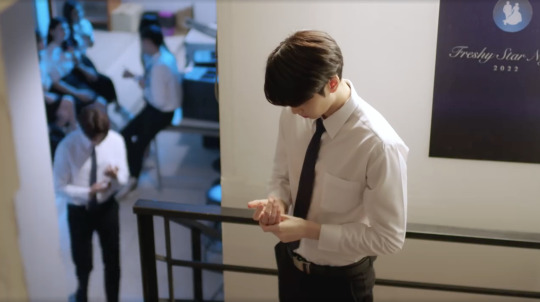
Of course I had to add these moments! Making sure Dao sleeps in a proper bed, re-doing his ankle dressing, the pen + post-it note for his anxiety, and unbuttoning his sleeve so Dao has something to focus his nervous energy on. Note that 3 out of the 4 of these Acts were without (as far as the audience sees) Dao even knowing what Kluen is doing for him.
There's a reason why I find Kluen so very attractive, and it's because Acts of Service is also my love language and damn does Kluen do an amazing job of showing his care for Dao in that way!
Kluen as a boyfriend:

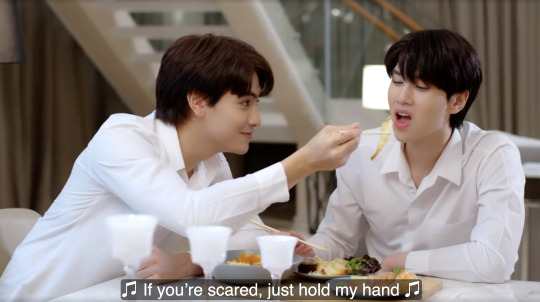
As soon as they become official boyfriends Kluen is constantly finding ways to do things for Dao: walking Dao to class, carrying his stuff, feeding him -- its all very sweet. I had to delete several screenshots because of the image limit jsyk. :( Kluen really does go all out in this way.
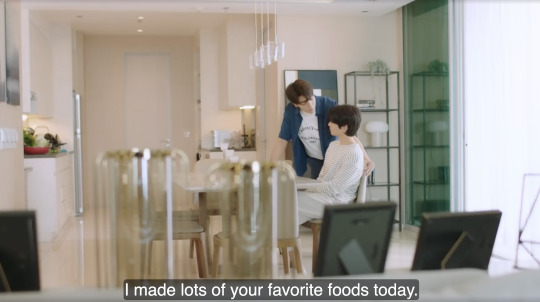
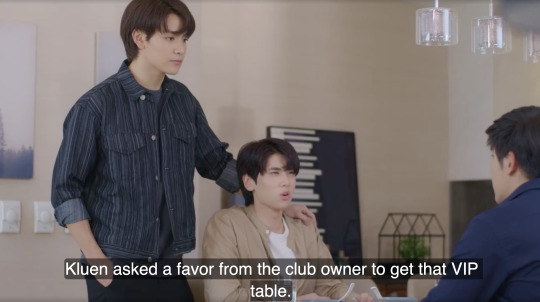
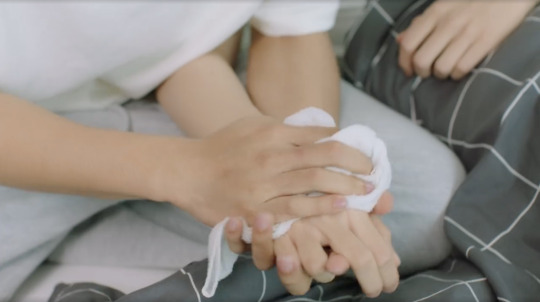
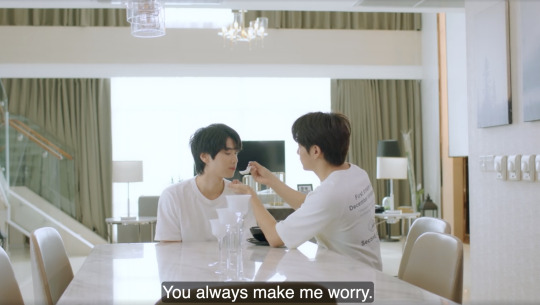
Kluen's Acts of Service only seems to escalate in Sky in my Heart. Cooking for Dao, organising a night out for Fah because Dao is worried about Fah, nursing Dao when he's not feeling well (+ the hand feeding TuT).
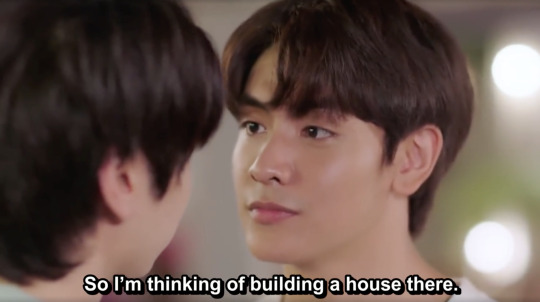
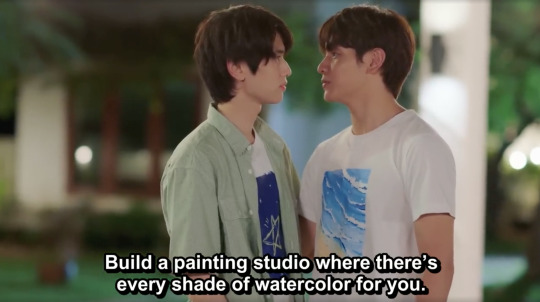
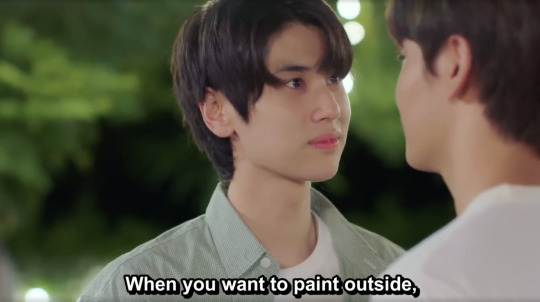
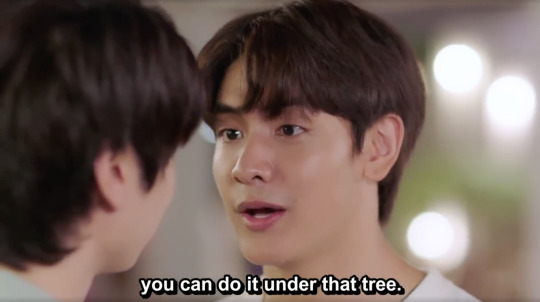
The cherry on top comes in the Special Episode: Is there anything that encapsulates Acts of Service more than planning to build your boyfriend his dream home, located on the beach because he loves waking up to the sea; promising that he'll have everything he needs to pursue his love of art; even planning to plant a big tree so your boyfriend won't be too hot as he paints outside??
There's so much genuine thoughtfulness and specific consideration for what will make Dao the most happy in this plan.
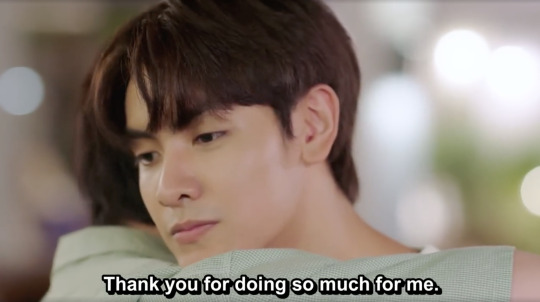
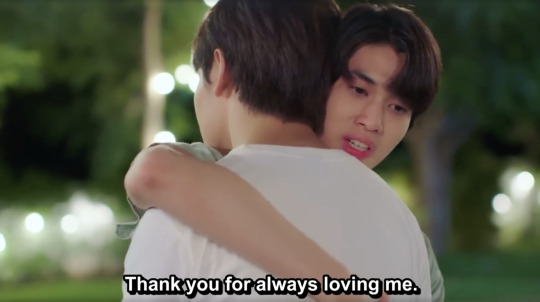
It's so lovely to see Dao recognise that. He's so grateful, so overwhelmed by Kluen's love (the way you can hear the tears in Dunk's voice when he says his lines - he's such an emotive actor!), not just because it's genuine and means the world to Dao after going through the pain of thinking his love was unrequited, but also because Kluen has learned specifically how to love Dao the way he understands it the best. Kluen literally learned to use the language of love for Dao - both verbally and through his actions.
And this is why I really do think Star in My Mind is genuinely quite a beautiful love story.
#kluendao#kluennuea#joongdunk#star in my mind#simm meta#simm#sky in my heart#so i was going to make this about Kluen's love language too but um i hit the 30 image per post limit??#i didn't even know there was an image limit x'D#so there's going to be a part 2#i was just supposed to watch the special episode but a scene at the beginning made me suddenly start thinking about this#and the next thing i knew i was doing a speed run of the entire series again#but this time i was looking for specific things and in the process noticed even MORE things T_T#the rewatch value on SIMM is INSANE i love it so much <3#hui talks thai bl#hui talks simm
28 notes
·
View notes
Text
Journal 3's references to Stan
(...does the Lost Pages count as J3 when some had to be in J2 and also may or may not be a truth lie turducken? idk. Ford's TBoB letters sure as hell don't count as J3 but I'm including them here anyway)
Pre-Portal Ford

"Although my family tried to convince me that [having six fingers] made me special (and it did help with shadow puppets)"
"It would be quite interesting to see what my brother and mother would act like while wearing [the truth teeth]!"
"It occurs to me that if I must keep secrets from F, I might as well begin writing certain passages of this book in code. I aced Cryptology in college, so this will be fun! (At least for me. It would be deeply tedious and annoying for someone trying to decipher it.) It amuses me to think of their frustrating effort!" (ok this is likely for the reader and likely ain't a direct stan reference. but like. it is to me)
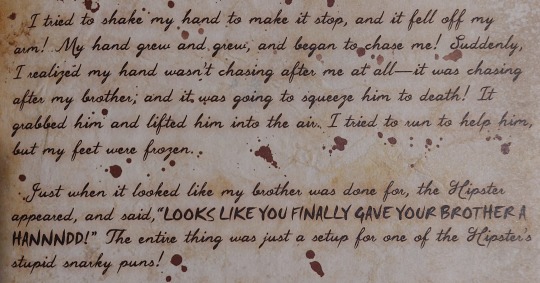
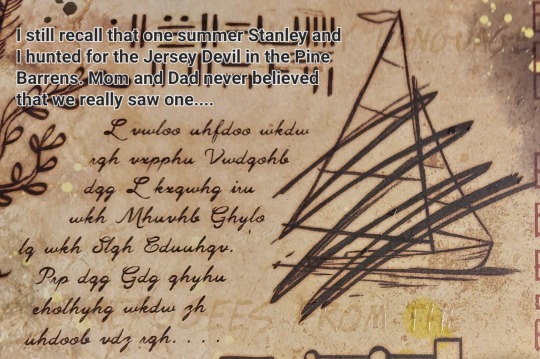

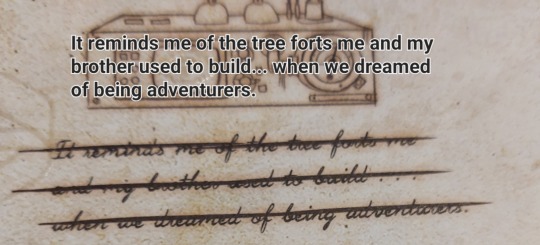
"When I sat down, [the fortune teller] quickly grabbed my hands and said, "What took you so long, Sixer?" I felt a chill run down my back. How she knew my childhood nickname was beyond me"
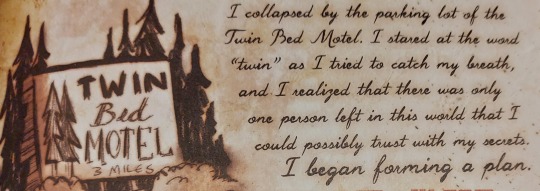
[Blacklight Hiding Places page] "Journal 3: The volume I hold in my hands. Describes my embarrassing defeat at the hands of Bill and the loss of my very sanity. Also contains a pretty good drawing of a plaidypus. Will soon be bestowed upon S and hidden at the ends of the Earth (I hope).” (he wrote the wrong journal to give to Stan lmao)
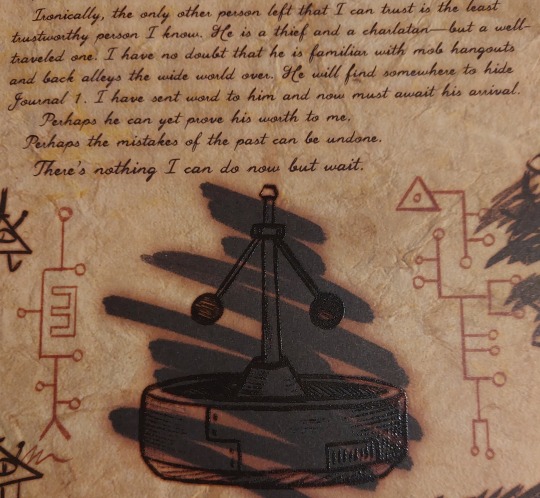
"The time has come to bury this tome. After that, all there is left to do is wait for S. And save the world. Or lose my life in the effort."
Post-Portal Ford
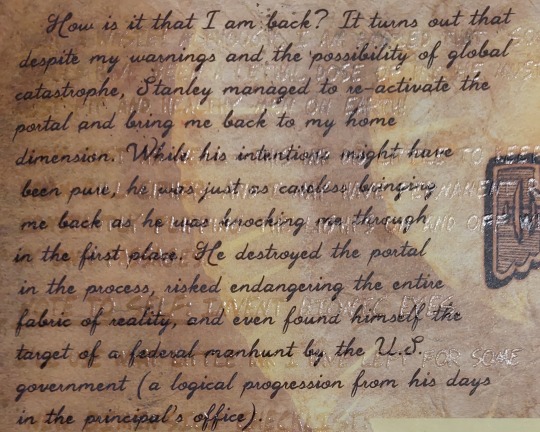
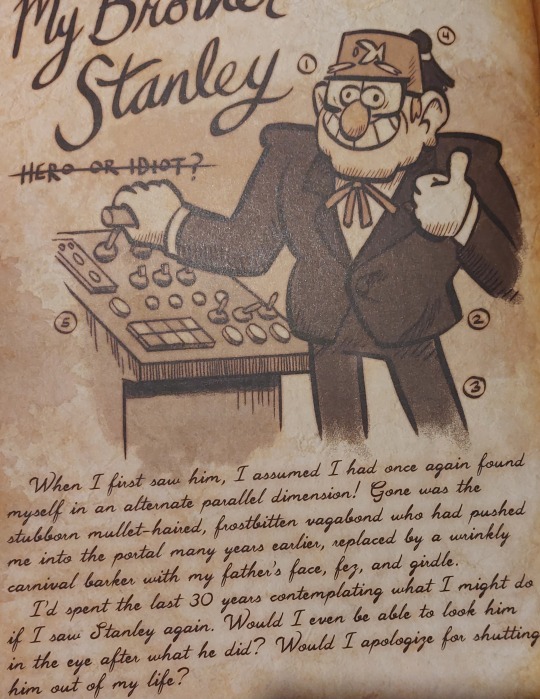
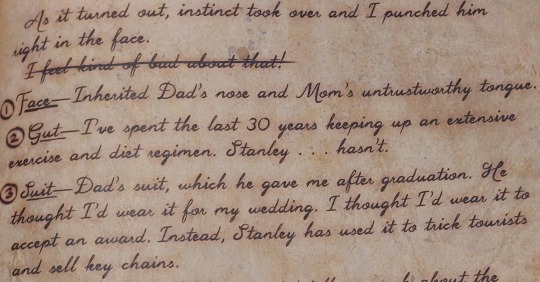
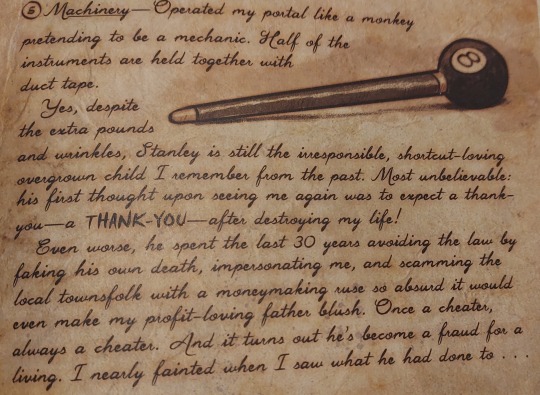
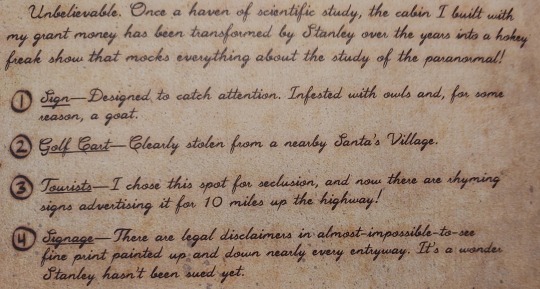
"Walking around my old lab, I feel like a dead man's ghost haunting a strange fun house mirror version of his past life, I resolve to take back my home and rebuild the life that Stanley has taken from me."
"The strangest thing about [Soos] is his utter idolization of my brother Stanley."
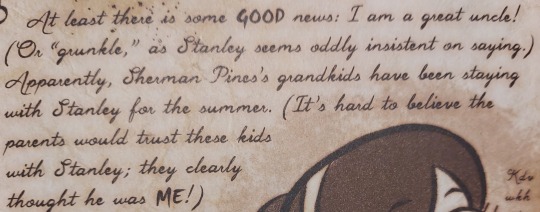
"[Mabel] Shares the family sweet tooth. Diet seems to consist solely of items with the word 'gummy' in them. I will need to discuss nutrition with Stanley."
[Dipper] "Observations: 1) Constantly sweating. Perhaps he takes after Stanley. (...) 4) Rank odor. Clearly hasn't bathed recently. Stanley should never be put in charge of children!"
"It is just as I feared; apparently, Stanley's reckless use of the machine overtaxed it and ripped a tear in the dimensional fabric- the same way an overheated oven might burn a hole in kitchen linoleum."
"Containment dome- A home for the Rift. Admittedly, I was inspired by the snow globes in Stanley's gift shop."
"When I tried to share my burdens with my brother, he knocked me into the portal, separating me from my home for 30 years."
"Stanley always mocked my love of [DD&MD], and even some of my college friends called it "Girlfriend Repellant.""
"Well, the harm in showing the [infinity sided die] to Dipper turned out to be quite large. During one of our games, my hotheaded brother got his hands on it and accidentally conjured this jerk."
"I'm proud to say that the Pines family was able to beat the wizard at his own game. Stan's contribution was (of course) to cheat our way to victory."
"Ironically, in the multiverse I'm just as wanted as Stanley! But my crimes had a noble purpose"
"Stan would have loved this place, but it just made me depressed. Although I had a good run in the Gambling Dimension, the dimensional bouncers ended up kicking me out for counting cards! What are the odds?"
"[The Oracle] looked deep into my eyes and said I had the face of the man who was destined to destroy Bill."
[A Better World] "On this Earth, I was never pushed into the portal by Stan. On this Earth, my brother listened to me and took Journal 1 away from Gravity Falls."
"I reentered the world of my youth to face a brother I had not seen in 30 years. My frustration was indescribable- once again, my brother's actions had sabotaged everything I had ever worked toward."
"To help Dipper understand, I borrowed Stanley's car, and we drove until we reached the town border of Gravity Falls."
"I suggested it would be a good time for Stan to take the kids on that road trip he's been talking about while I puzzle over [the cracked Rift]"
Post-Weirdmageddon
"I bristled at the idea of sharing my accomplishments with anyone. I shunned my brother for one dumb mistake, and I shunned Fiddleford for having the nerve to try to stop me from dooming the world."
"I just couldn't get over the idea of myself as the lone hero.. and it was Stanley who paid the price."
"Trust shouldn't be given unconditionally, but it should be given a chance to be earned. There is strength in having the humility to work with and sacrifice for others- a strength I now realize was in my brother all along."
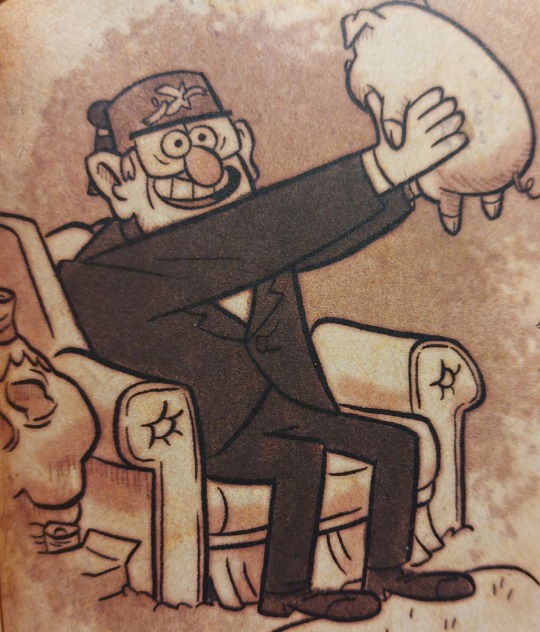
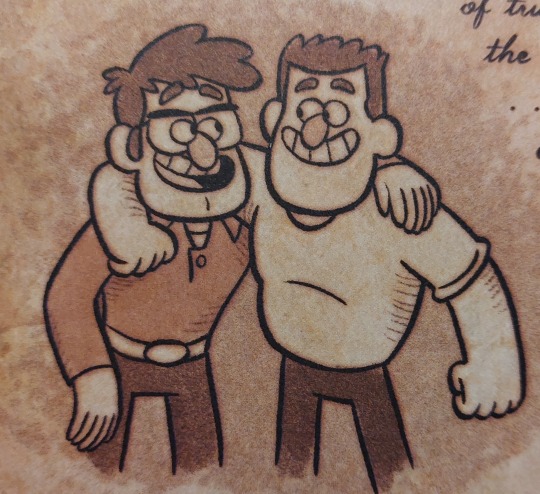
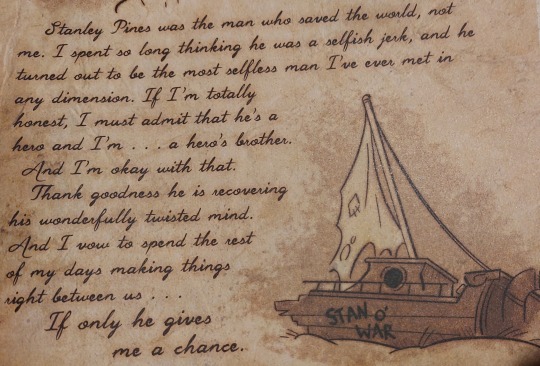
"When Stanley and I were kids, we would often read tales of the Sibling Brothers- about two boys who dedicated their lives to exploring mysteries together. With a new anomaly to investigate, I've been thinking about those tales more and more lately."

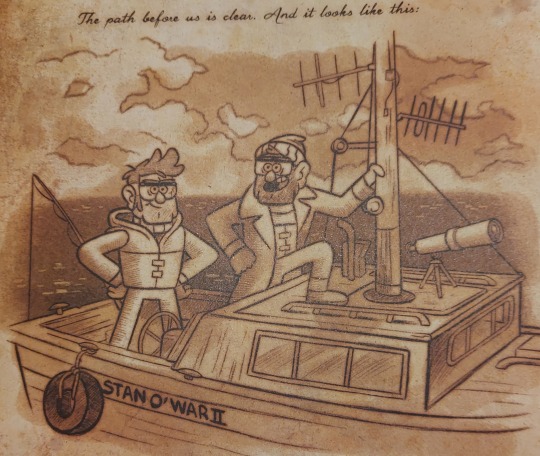
"I had suggested to Dipper that because of all the misfortune caused by them, we burn [the Journals] in the last campfire of the summer. Mabel, Soos & Stan all seemed very excited by this notion."
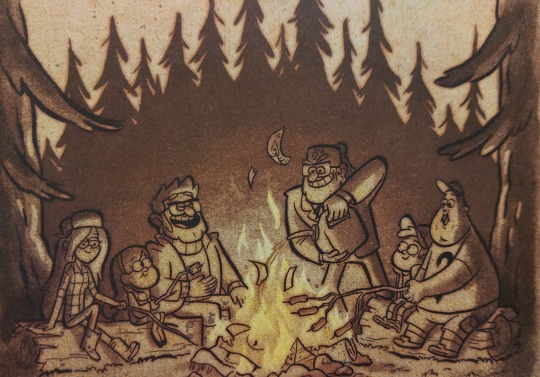
"You hold a record of one man's folly and the kindness of a family that saved him from himself. It's never too late to learn that growing old doesn't have to mean growing up."
Lost Journal Pages

"My stomach sank a bit when I realized... it was my birthday. This day has felt... odd, since S and I... parted ways."
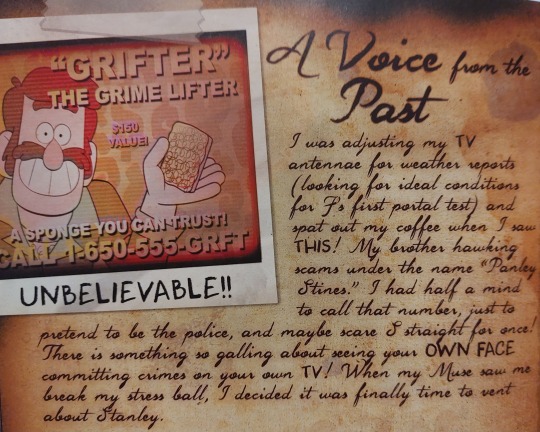
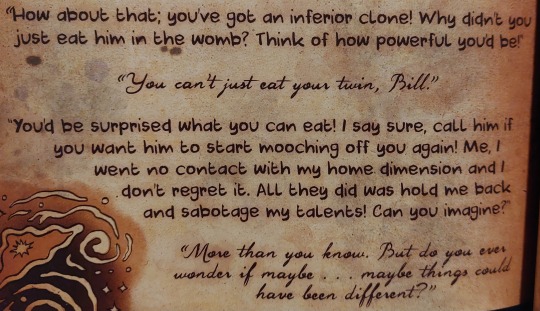
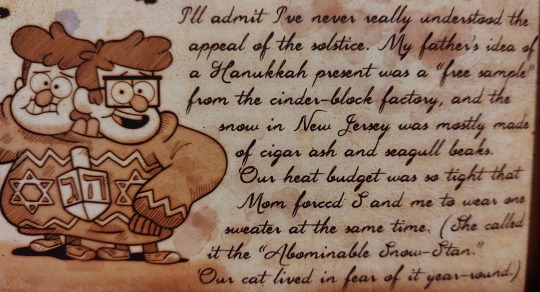
"DAMN! This morning I found F rummaging through my old copy of Urban Legends of New Jersey, where I had forgotten I had hidden some old personal items! I've quickly re-hidden them here, away from prying eyes."
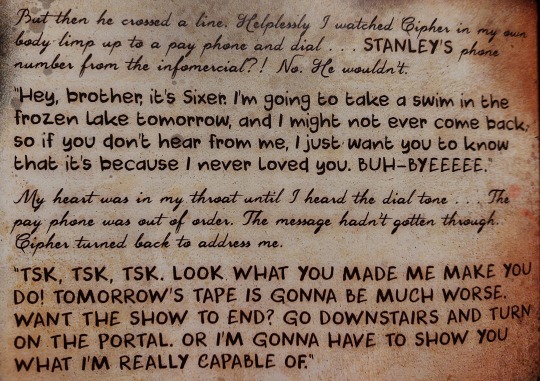
"The snow has begun to fall again and there's very little time. There's only one left I can turn to to protect my journals while I prepare for the journey..."
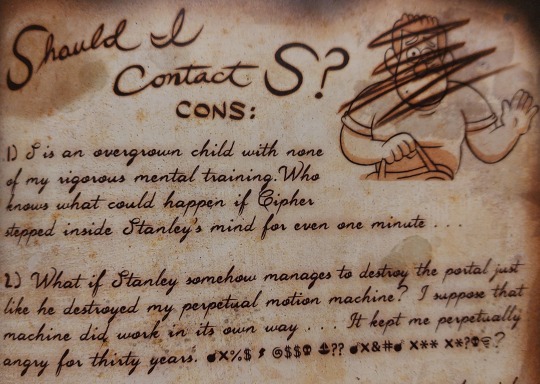
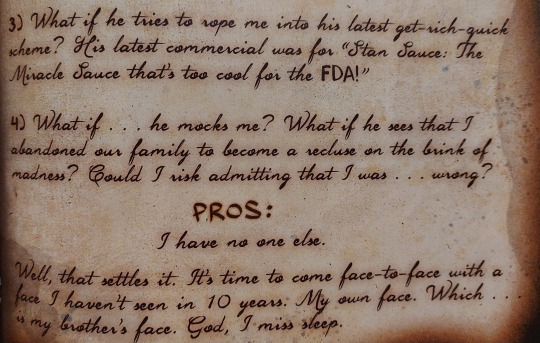
Ford's Letters
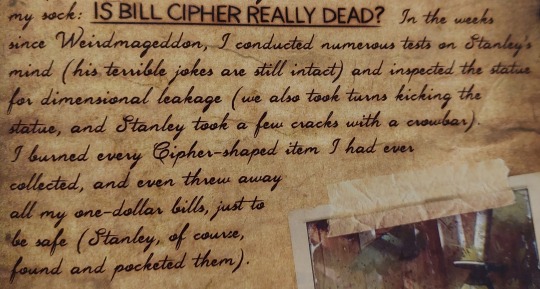
"I emerged from my lab after days of agonized contemplation to find- to my shock- that Mabel was reading the book, out loud, to Stanley, Dipper, Soos, and Wendy!"
"They didn't see me as an irredeemable screwup. Stanley said, "So, your past is just a giant pile of mistakes? Congratulations- you really are a Pines!""
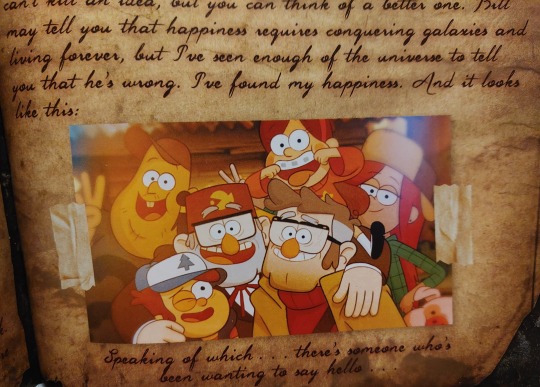


(It kinda strikes me that the BoB Lost Journal pages about Stan sound far more like post-portal Ford's opinions on Stan instead, where he's openly angry at both being pushed into the portal + at the portal being opened again + his murder suicide attempt being foiled + Stan disowning him + turning his house into a tourist trap + taking his identity vs pre-portal Ford being more... melodramatic(?) constantly being reminded of him but not wanting to linger too long? idk the vibes are different
Plus pre-portal Ford pretty consistently only calls Stan "S" or just refers to him as his brother (with the exception of him writing his name in a Caesar cipher) ...not to mention the perpetual motion machine comment says thirty instead of ten years)
Bonus:
[Journal 1 Mr What's His Face cipher] "If he gets my face, Stanley has a spare!"
#i think ford does slip up once about writing fiddleford's name tho#gravity falls#stanley pines#stan pines#ford pines#stanford pines#journal 3#the book of bill#stan twins#'me and my brother' you mean 'my brother and i'!!! grammar ford!!!! you fool!!!#the dream hipster nightmare my beloved he was so close to confronting that guilt#the blacklight pages does mention the tinfoil hat thing and small world song parody which is in BoB too#the jersey devil story changing locations probably because its more fun for it to be set in town#instead all of it just having the same setting of a forest + the sibling bros being made into rivals#man we desperately need more post tbob ford cos rereading pre weirdmageddon ford is just depressing#and immediate post weirdmageddon ford still feels like he's finding his footing#i want more of the stan twins teaming up to be assholes to others ksadhksjdhsa that joke to dipper was mean i love that for them#ford: these journals are haunting me like a curse!#bill about to hit him with a book that actually haunts him in a few weeks:#also not me only just realising that ford's 'growing old doesn't mean you have to grow up' line is what stan says in D&MVTW#stan and bill both having 'growing up is optional' lines im chewing on the dry wall#i have been wrestling with the 30 image post limit this whole time....
31 notes
·
View notes
Text
( almost ) all of my sketches & wips from ~ 5 november 12023 - now
vaguely oldest - newest but i am lowk just fuck it we balling it
ogay let ' s go

shitty hamlet hamilton thing to start us off yay based off of that one line in the musical

thomas jefferson

i cannae remember if this was meant to be sj or cami but Pony

GET OUT OF MY HEAD GET OUT OF MY HEAD GET OUT OF MY HEAD

me versus drawing sj with a Fuck Ton of piercings ( the demons )

kill

This Fucking THING


holy fucking shit my first napolexander art

yeah

i drew this whilst rewatching 2023 napoleon in cinema Based upon a 2002 napoleon scene

james fitzjames

shkroeder please i have a wife and kids

ekkochoso

i hate his stupid fucking hair so i drew a cat with him

i love my wife i forgive her for almost killing me

thomas jefferson getting high with the french except rousseau keels over and dies whilst robespierre just Oh Dear

idk why i drew the social contract that thick brah

based upon a twitter interaction i had with the owners of these ocs

what the fuck is going on in the upper right corner

different jules times ( 1789 , 1793 ( ? ) , 1794 )

calijules i drew on the plane to japan

i also watched succession on the plane . catboys & catgirls You ' re welcome

turn washington ' s spies hewlett sorry i am the # 1 annalett yuri truther

jules ref sketch i forgot to fucking crop

sleepy calijules


violent calijules

freak

+
#hit 30 image limit#will continue#art#my art#sketches & wips#my sketches & wips#amrev#american revolution#alexander hamilton#eighteenth century#thomas jefferson#louis antoine saint - just#camille desmoulins#maximilien robespierre#frev#french revolution#assassin ' s creed#assassin ' s creed ii#ezio auditore#alexander i#napoleon bonaparte#napoleonic era#nineteenth century#amc the terror#james fitzjames#franklin expedition#i ' m not tagging choso i ' m sorry i ' m scared of jjk fans#ocs#my ocs#others ' ocs
40 notes
·
View notes
Text


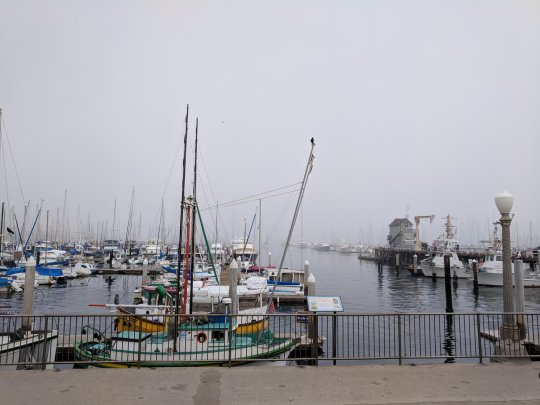













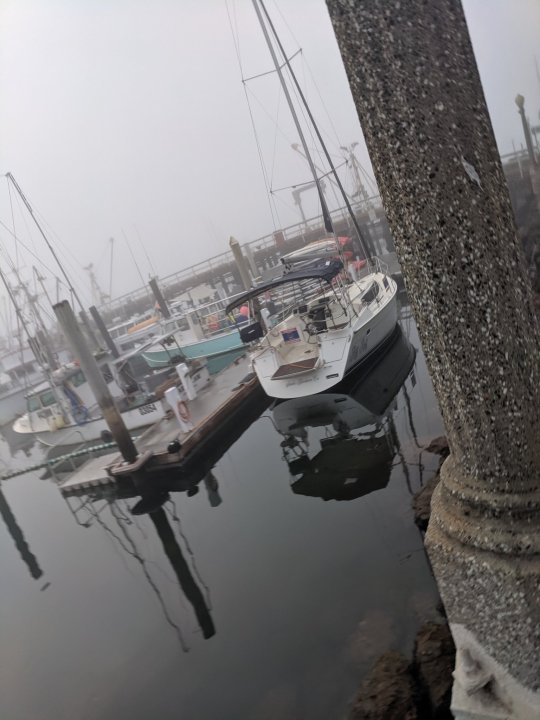







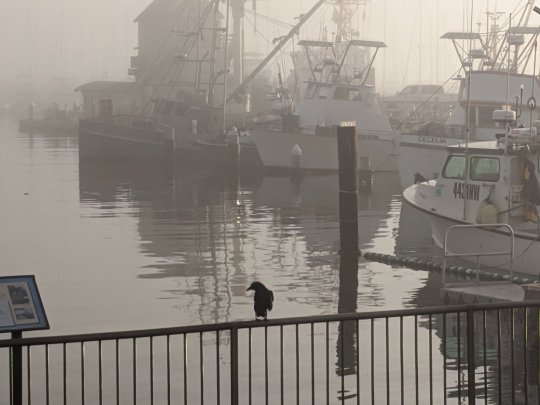

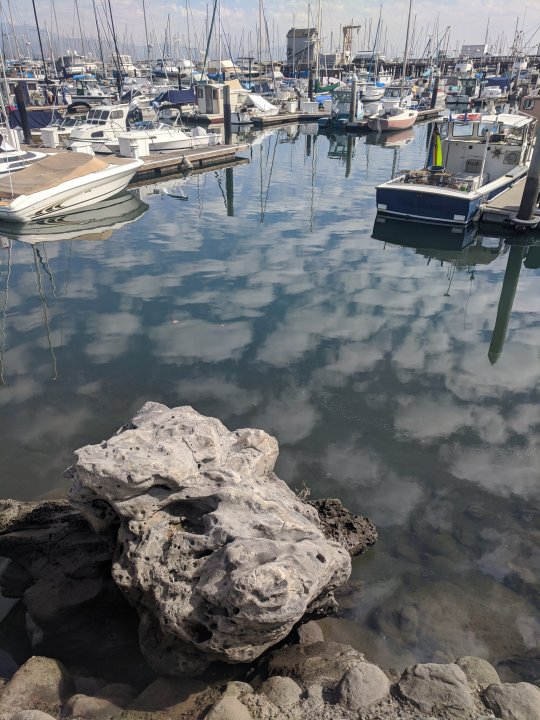



These photos were all taken by me at or on the way to the Santa Barbara Harbor between 2010 and 2020.
#photography#amateur photography#santa barbara harbor#sunrise#clouds#boats#santa barbara#california#unedited except for some cropping#fog#I really like fog okay#there are more fog photos but I hit the 30 image limit#Most of the really good sunrises are from October or November#I used to call it good cloud time#I used to lament not being able to really capture when the clouds would sometimes curl over the mountains like fingers#but I tried and a few of those attempts are here#The two that were taken from the side of the road represent dozens of sunrises that I failed to capture#because they'd faded by the time I reached the harbor
11 notes
·
View notes
Text
Describe yourself ONLY with pictures you have. You cannot search or download new pictures.























tagged by @waldobird
#hahahaha i'm so drunk i was waiting for it t o tell me i hit an image limit or something#but just saw it says there's a limit of 30 images loolololol#so i'm just goinna stop here
8 notes
·
View notes
Text
【KagePro】 KuroEne AU: MaryEne infiltrate Saeru's lab and confront him
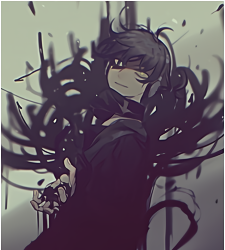
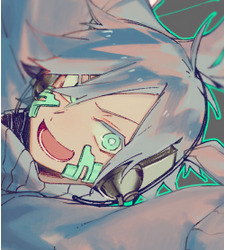
Summary:
KuroEne AU: MaryEne team up against Kuroha/Saeru
Kuroha manipulates the MekaDan into splitting up and kills them one by one
Before leaving the hideout, Kuroha reassures Ene that he will be sure to come back for her... After all, he always keeps his promises (^-^) 🖤
Mary feels the snakes slowly return back to her, and Ene wonders why Saeru insisted on going by himself
Mary uses Captivating and Concealing to distract Saeru once he reveals his identity
Ene runs away carrying Mary and finds temporary refuge in an abandoned building so they can plan their infiltration of Saeru's lab
Mary uses Focusing Eyes to obtain entire floor plans of Saeru's lab
Ene uses Opening Eyes to disable security systems
Ene confronts Kuroha alone to stall for time so that Mary can learn how to control the Kagerou Daze with Combining
Lengthy discussion between me and Feila.
These are the main points ^^
I was imagining a scenario where, after Kuroha kills everyone on August 15th and leaves MaryEne alive on purpose, he reveals his true motives as the “traitor” of the Mekakushi Dan and the one behind everything.
Mary and Ene confront him at first, and then realize that they can't outrun Saeru due to his super strength and speed due to Awakening Eyes.
So, Mary, who absorbed the MekaDan members’ snakes after their deaths, uses Captivating Eyes to draw his attention to her, and then uses Concealing Eyes to completely blank out his surroundings in white.
And then Ene uses the distraction to carry Mary and run away with her since her android body won't get as easily tired, giving them some time to run and find a place to temporarily take refuge.
I HC’ed that Ene carries Mary cuz she hardly spends time outdoors, so she’d get tired easily due to her lack of exposure to sunlight.
So Ene carries her since she doesn’t get as tired with the body that Saeru built.
Ene then tells Mary that they need to come up with a plan to make the first move, otherwise they'll eventually get cornered.
My dialogue script WIPs and rambles are under the cut since this post is super long.
Dialogue Script WIPs
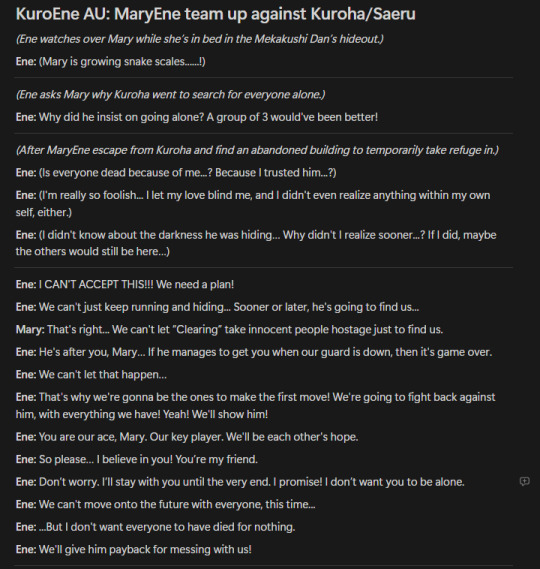
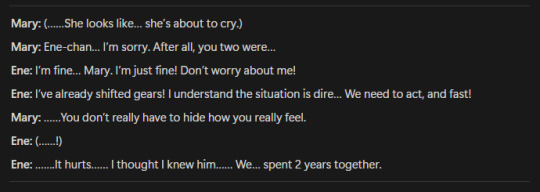


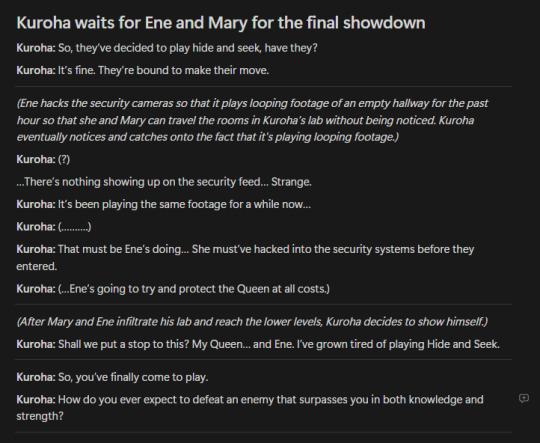


Rambles
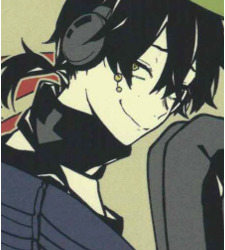
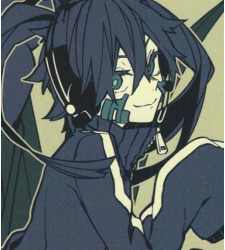
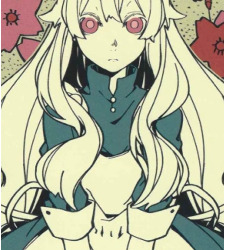
Decided to show some dialogue snippet WIPs from the KuroEne AU Route where MaryEne team up against Kuroha/Saeru because I never posted them before.
I haven't cleaned up the rest though so I'll only post these snippets. I used line breaks to distinguish between different scenes since I write down ideas as they come to mind.
Saeru tells them, "You [two] have nothing left," telling them that all of their struggles are pointless and that their efforts will be in vain since they're the only ones left.
Therefore, the Queen (Mary) will use her powers to rewind the world to see her friends once more.
...
Ene realizes that she can stall for time against Saeru by engaging in conversation with him first, and then baiting him into intimacy, since she knows he won't turn down the offer to indulge in more pleasures with her.
I imagine that Saeru will eventually realize that Ene is stalling him... and that she must be desperate to resort to this, but realizes that her wanting to stall for time for Mary's sake for as long as possible is not the only reason for this, but that she's acting based on her inner yearning too.
While they're still talking, though, Saeru tells Ene that he basically decides who lives or dies, and that he could end her life right now if he so pleases. But then Ene counters this by telling him that Saeru is more interested in seeing how things will play out.
I especially love Saeru's line, “How could you ever expect to defeat someone who surpasses you in both knowledge and strength?” because it’s true.
Ene uses Saeru's interest/willingness to see more outcomes/gain more knowledge of her antics against him, and then counters him by saying that he’s not immune to “human sentimentality/emotions,” despite claiming to be above it all…
"You've always been much more interested in seeing what choices I make."
Also I feel like Saeru seems especially excited seeing his S/O (Ene, in this case) stand up to and defy him.
He looks down on humans and thinks he's above all human sentimentality while also claiming to love humans and their foolishness... That's such a human-like contradiction.
...
I think Focusing can be used more than once to check his whereabouts (assuming he doesn't change his appearance)
I don't think he even bothers changing his appearance since it's just MaryEne left.
Though MaryEne think it's best to use Mary's Eye Abilities sparingly so she can preserve energy and not get too exhausted. Saeru is aware of all of the Eye Ability Snakes and what they do.
Mary’s gonna try and use them sparingly to avoid revealing too much of their hand. Otherwise, he'll find ways around them and counter Mary's Eye Abilities. Like don't use them more than once in front of him in a single Route. Cuz he can still be caught off guard with the element of surprise.
Novel Route states that “he is a living encyclopedia with a full grasp of everything from the start of civilization up to modern science” and due to his nature of existence as the embodiment of Azami's knowledge/wisdom, also knows things beyond what Azami knew about herself.
Saeru told Azami (Mary’s grandmother) to create the Kagerou Daze in the first place, when she wasn't even aware she could do that.
Saeru can counter Combining Eyes (Queen Snake) in the Novel Route and MR2 by just using Awakening Eyes to rebuild his body
The most useful Eye Abilities to use against him are:
Combining, Locking, Captivating, Concealing, Focusing, Deceiving (maybe)
Discussion Rambles

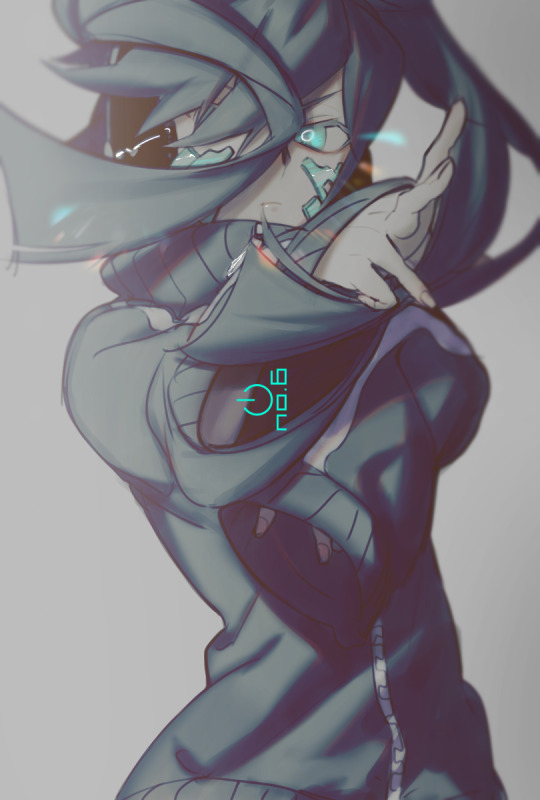
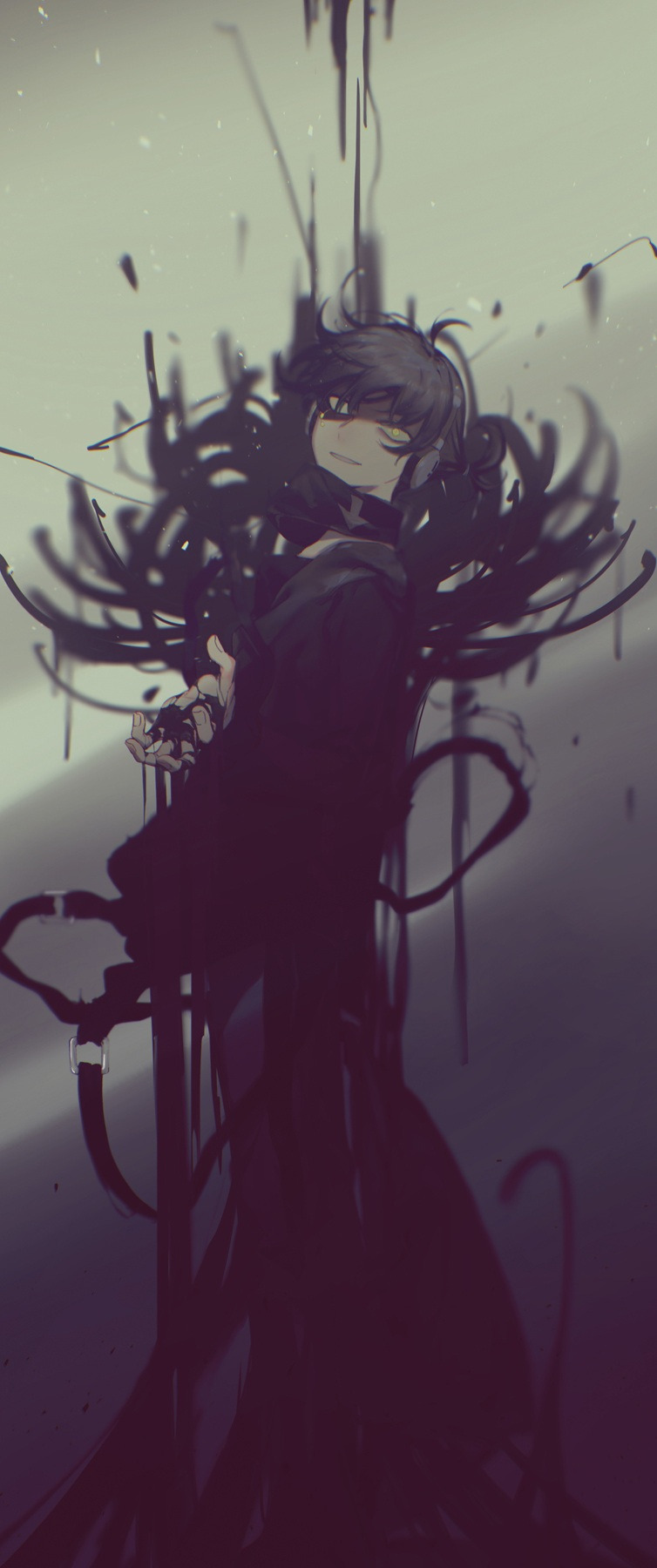
KuroEne AU ideas I came up with just now
Also I just thought about something.
Mary would be able to know Kuroha/Saeru's whereabouts with Focusing Eyes as long as he doesn't change his own appearance (like he did in MR2 to avoid detection by Hiyori's Focusing Eyes)
Not sure if he's gonna do that here.
Depends on if he wants to make the game easier for them (not considering it a threat due to his ego since Mary is bound to reset anyways with only the two of them alive), or if he wants to make things harder for them on purpose.
I assume he's not gonna bother to change his appearance with Awakening Eyes in the first KuroEne AU Route with a MaryEne team up cuz only 2 are left.
Though ofc I still want to write a KuroEne AU Route where Ene gets to see Kuroha/Saeru's MR2 form...
In that case, Mary would still be able to see where he is with Focusing Eyes.
F: Tbh even if he changes his form, if he looks odd enough it'll be detectable at somepoint
How tf does Focusing Eyes work again-
Me: Yeah I think Focusing Eyes works by being able to zoom up on any person you imagine if you've seen them before.
In MR2, Saeru changed to the MR2 form to avoid detection by Hiyori's Focusing Eyes. Though once the MekaDan confronts him in the forest, Hiyori is able to use it to detect his whereabouts and can estimate how long it’ll take to reach them. Like Hiyori goes, "He's on the move again...!"
After he gets hit by a land slide and the mf just regenerates with Awakening Eyes
F: Oh no wonder it didn't work 😭 So you have to imagine their appearance first, then you can find them. I thought it'd be like zooming in really really close towards a certain area
Me: I think Hiyori has to know their appearance to zoom in on a certain area. This is probably one of the most useful abilities to use against Saeru.
Locking (Mary), Combining (Mary), Concealing (Kido), Captivating (Momo), Focusing (Hibiya), and maybe Deceiving (Kano), are the most useful ones to use against Saeru imo.
Focusing (Hibiya) and Opening (Ene) are really useful for infiltrating his base though
Me: Ok I just checked Focusing Eyes' wiki page rn to remind myself.
Hibiya can use Focusing Eyes to obtain entire floor plans of Saeru's lab after seeing a picture of Kenjirou.
I imagine that's how MaryEne's going to keep an eye on his whereabouts and plan their infiltration.
So Mary can still find his whereabouts while they temporarily take refuge in an abandoned building. Ene can use Opening Eyes to check out which security systems she needs to disable before entering
Me: One other thing I realized.
In Outer Science, the Bad End of the Music Route, since Kuroha kills everyone at once, this triggers Mary's transformation into a "monster" or Medusa, as Saeru calls it, since she absorbs all of the dead members’ snakes after their deaths.
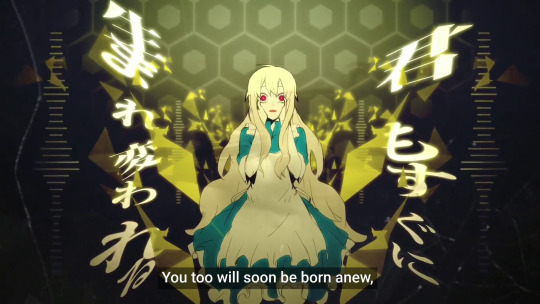

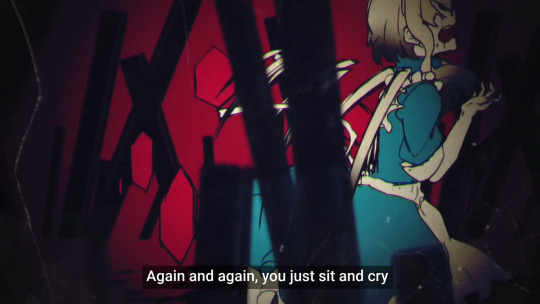

In MR2, the members get killed throughout the day with some time in between.
I remember Mary was lying in bed first for a while from exhaustion because she was slowly turning into a "Medusa."
Mary instantly feels when a member's snake returns to her when they die.

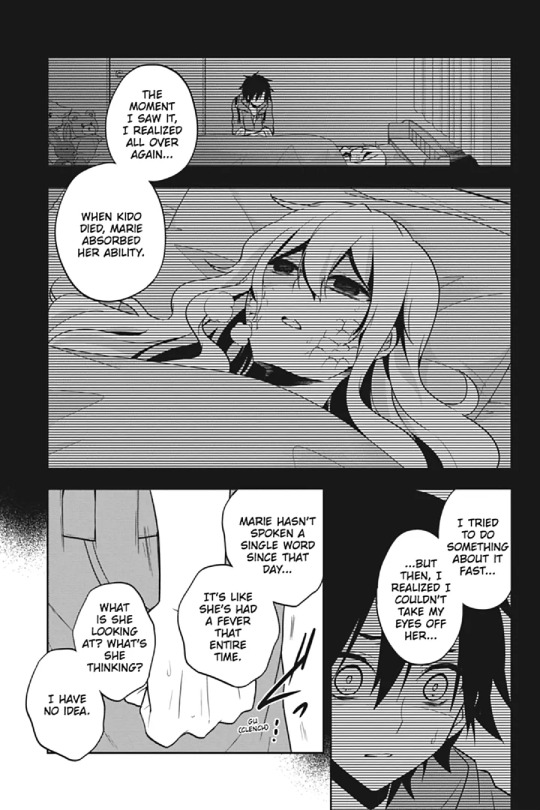
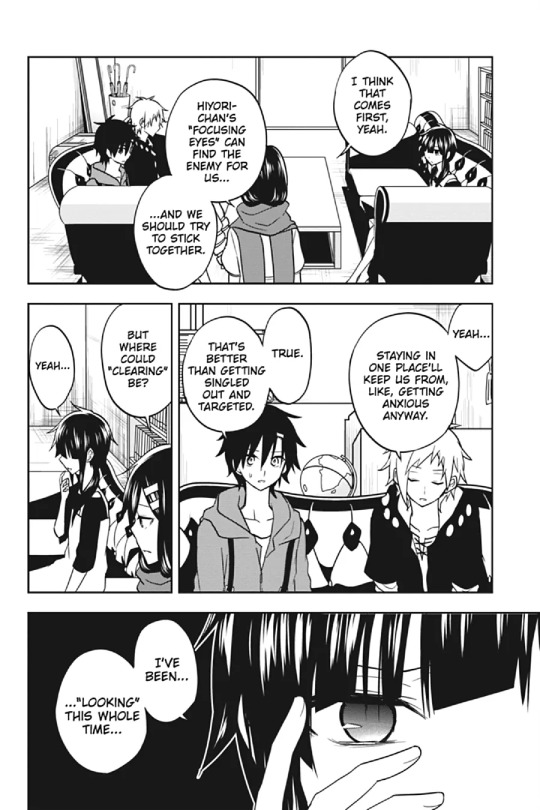
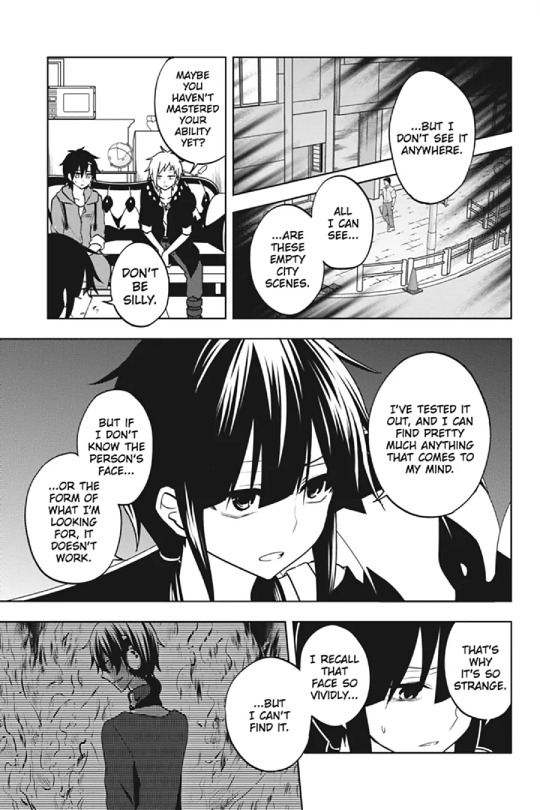


Kagerou Daze: Ch. 57 - 58
In my KuroEne AU, Kuroha/Saeru splits up everyone in the MekaDan to search in pairs of 2 for the "Clearing Snake"
Then he starts to kill everyone, so the remaining members later try to search for the missing members.
Even if they don't know what exactly is going on yet, Ene and Mary must feel that something is terribly wrong
To get a specific member's snake back basically means their death... But I don’t think they would realize what it means at first.
F: Mary would stop every once a while like "Hold on... I feel another one coming back to me," or something like that as if she was trying to process what's going on
Me: Yeahhh like at first I don't think they know what's going on
Me: Imagine if Kuroha told Mary and Ene they should stay inside the base at first so Ene can take care of Mary?
Ene probably watches over Mary while Mary’s in bed at first. Since in MR2, she looks exhausted and her hair shortens (and gets blackened at the ends) as she absorbs more of the members’ snakes. And then eventually, Mary gets out of bed after feeling slightly better.
So then Ene worries that if the “Clearing Eyes” guy is targeting everyone in the city, then their base might not even be guaranteed to be safe anymore, so she leaves the base and takes Mary with her
F: MekaDan has 9 members, so spliting up into teams of 2 would let one person not get a team, which would be Saeru, it's all apart of his plan—
Me: RIGHT
I imagine Ene eventually gets a sinking feeling about this (once Mary starts getting snakes back) but ofc... he is her lover, so she wants to believe in him at first (before the reveal)
At first, Ene thinks, "Kuroha would understand if we temporarily moved locations to some place safe... Because frankly, I don't even know if our base is safe anymore... We'll regroup with him later! And then we'll try to find everyone! It's better if we all stay together!"
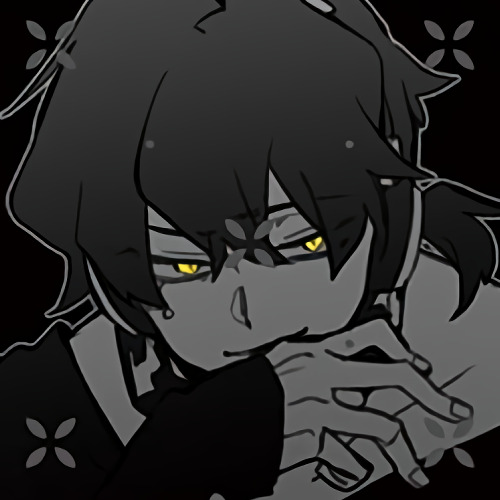
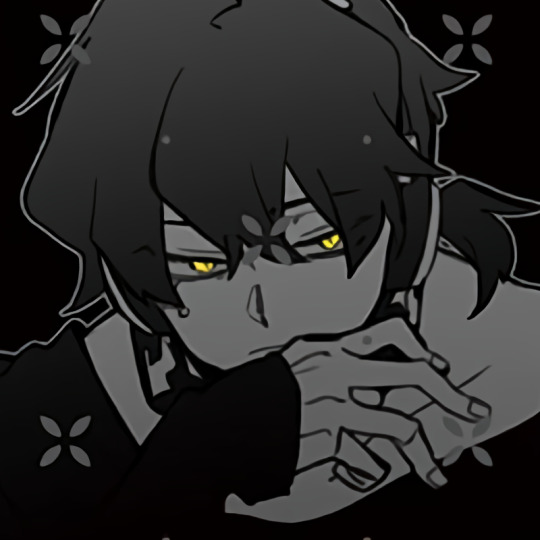

(Note: In Routes where Saeru pretends to join the Mekakushi Dan, he goes by "Kuroha" for obvious reasons)
I imagine there's going to be some scene where Ene gets teary eyed at the thought of Saeru leaving the base alone (like right before he leaves the MekaDan's hideout) and clutches onto his sleeves, saying, "Don't go... What if something happens to you and that 'monster,' the 'Clearing Eyes' guy, gets you!!!"
And Saeru just goes (...) before he turns around to face Ene.
Saeru reassures her that he has Awakening Eyes' super strength so he can scout across the city. And he pats and ruffles her hair and smiles at her like (^-^) and then gently caresses her cheek.
Me: One more thing I imagined.
Before Saeru leaves the hideout, he tells Ene, "I promise I'll come back to you."
And then, when he finds Mary and Ene (after he killed everyone), he goes like, "See? I always keep my promises..."
He is so evil for this honestly.
F: Oh God... 😭😭
"Jokes on you, I WAS CLEARING EYES!"
Me: Yeah honestly it's already devastating enough on Mary since he killed all of her friends and she physically feels the effects of slowly becoming “the next Medusa/Master” (as Saeru puts it)
But then Ene??? It must be so devastating to find out that her lover of 2 years is actually the mastermind behind everything who orchestrated everyone's deaths and killed everyone.
This must feel like your entire world flipped upside down and came crashing down on you all at once. The situation is so DIRE now.
Ene feels like she can’t afford to let her feelings get in the way, now that it’s been revealed her lover is actually a monster that needs to be stopped at all costs.
And Ene would definitely try to hide how she feels to avoid worrying Mary by keeping up a (^v^) shtick, but Mary ends up telling Ene that she should tell her how she really feels.
Honestly heartbreaking cuz she was probably getting flashbacks to all the happy times she had with Saeru (before of all of this happened) while she was running away with Mary.
Me: Yeah and then I imagine Saeru comes back to the base (after killing everyone) to find it's completely deserted. Saeru notes it's a good call on Ene's part, cuz if they just stayed in the MekaDan's base, they would've been cornered by Saeru.
Then he assumes that MaryEne either figured out his identity, or that Ene decided to take Mary with her after seeing their base might not be safe anymore (which is more likely)
Though they're probably laying low while trying to find out what happened to everyone.
On Mary and Ene’s end, no one is answering their text messages or phone calls, which is extremely concerning.
I imagine they’re not running around the city to avoid detection, just so Mary can preserve her strength just in case they run into the so-called "monster," so they move around quietly. At this point, Saeru probably eventually finds them by scent since he’s a snake.
F: Not to mention not listening to Shintaro's warnings because he was the one who had a bit of suspicions for Saeru
Me: Yeah I imagine Shintaro and Kano would've been a bit suspicious of him... 😭 Ouch
Me:


Kagerou Daze: Ch. 21
I just imagine Ene does that thing where she quickly goes back into her cyber body and tries to find the other members' whereabouts through GPS but just gets an error message. Something is OFF.
And no one is answering their text messages or calls...
Me: Mary feels the other's snakes slowly return to her (throughout the day) while they're still in the base, and goes, "What is this......? I suddenly felt..."
And Ene gets concerned when Mary's hair starts to fall off and she grows snake scales on her, and just goes like, "…Mary?"
Me: And then Ene eventually just thinks back on Saeru’s decision to go scout for the other members alone, "Why did he insist on going alone... A group of 3 would've been better!"
F:
Mary: He probably wants to go alone—
Ene: But why? Does he not want to be included? It's odd...
Me:
Ene: But the killer is on the loose...! It would've been better if everyone all stayed together...!
Ene: But I guess he’s always been a solitary person...
#kagepro#kagerou project#kuroha#ene#kuroene#enomoto takane#takane enomoto#kuroha x ene#saeru#saeene#saeru x ene#black konoha#dark konoha#saeru hebi#me ga saeru hebi#snake of clearing eyes#clearing snake#sen's rambles#I hit the 30 image limit with this one#I always add images to my rambles cuz it makes it easier for me to read when I format them as posts#Cuz this is just me summing up our Discord ramble discussions#Just us going back and forth#I want to write a Route where Ene gets to see Saeru's MR2 form :)
5 notes
·
View notes
Note
When do you think each of the fullscore trio realizes their feelings for each other?
Copying from this post but I generally hold these sentiments:


Sometimes I go back and forth on this with Emma realizing it earlier but keeping it to herself so the boys have more time to digest and put a name to their feelings so as not to pressure them. She has a very acute emotional awareness.
…except maybe when it comes to herself, lol. Feel like the comparative obliviousness on the matter is the final roadblock for most of her ships with her Type A personality. If she’s aware of it and knows it’s mutual, it’s so hard to see her not just going for it, especially with these two with how badly they can get stuck in their own heads.
As for when exactly it happens, Ray realizes Emma and Norman are special to him early on, though he doesn't conceptualize that love to the full extent it would eventually become. Again borrowing from earlier posts, but:
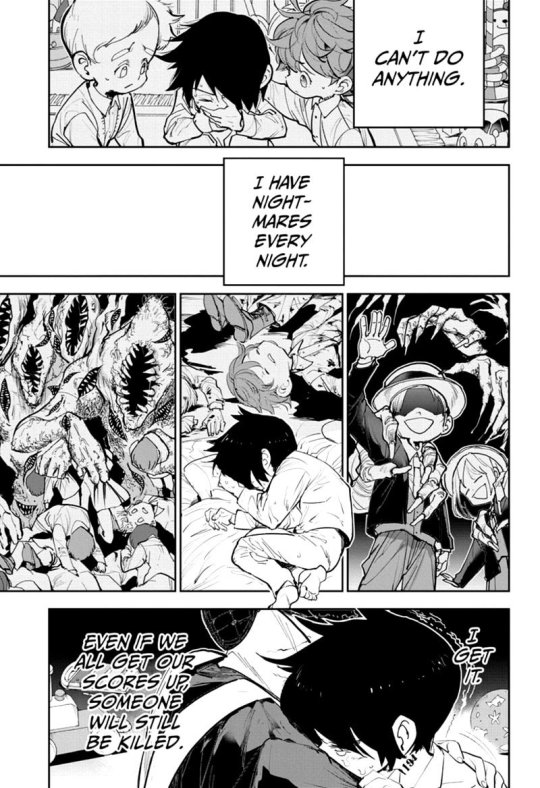




(Chapter 181.1 | Chapter 93 | S1 Episode 6)
He loved them more than he feared the consequences of revealing what he knew to Isabella. They comforted him when he'd have nightmares that left him screaming and crying in terror, even when they couldn’t understand what was upsetting their friend so badly and he couldn’t articulate to them what was wrong.
But he's also the last to act on his feelings after years of self-loathing and his firm commitment to ensuring Emma and Norman survive as a set.

(2020 Exhibition Interview)
One of the immutable truth's of his universe is the two of them belong together, and he would never do anything to jeopardize that, even if it meant remaining silent about how he felt.
Norman feelings for Emma are evident by his eleventh birthday in the fourth story of the first light novel, "A Gift from the 39th Girl."
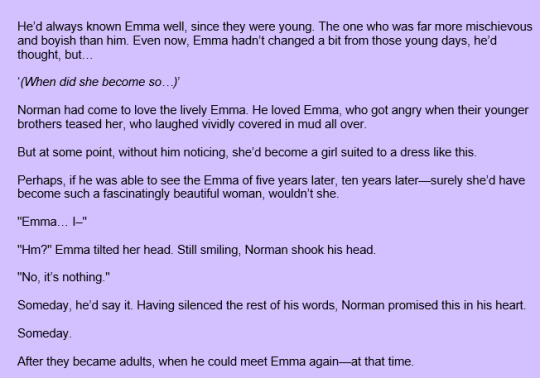
He admires her deeply, and she inspires him to do better and strive for the seemingly impossible.
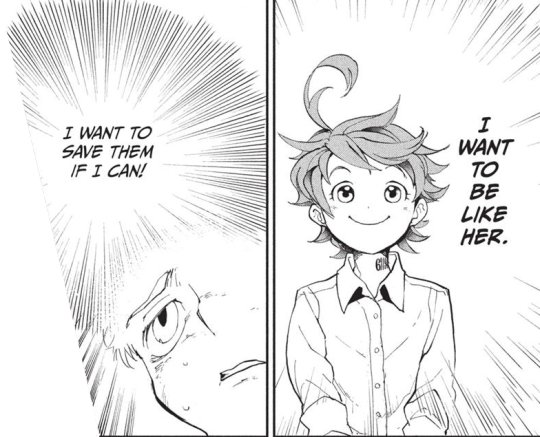
(Chapter 14)
With Ray, Norman always had someone he could show his more prideful and impish side to.


(S1 Episode 2 | Mystic Code Book Chapter 2)
I disagree on the wording a bit here because it's not that Norman doesn't show his true nature to Emma, but that the two of them are seeing different facets of a multifaceted person. Emma sees Norman caring for and helping their siblings all the time, and he's not disingenuous in those actions, even if in his pragmatism his mind immediately jumped to just him, Emma, and Ray escaping after being confronted with the truth. Ray was someone he valued and trusted enough to show aspects of himself that he didn't share with anyone else openly at this point in his life.
But it's after two weeks of hating Ray's guts that Norman discovers the true motivation behind Ray's plan at Grace Field:

I adore the way the anime adapts his realization of this, further discussed here:

(S1 Episode 5)
Norman reaching the same conclusion is one of humbling, relief, and grief. Since Krone first arrived at the house, he suspected Ray was the traitor. He hated himself for it, but that didn’t change the conclusion he drew, and he spent two weeks stewing around in those negative, vindictive thoughts. This is the only time I believe Norman ever truly hated Ray as a person. His being aloof and withdrawn might have been annoying and frustrating when they were younger, but he still accepted Ray as he was and didn’t hate him. This development, however, was infuriating. Norman would have been willing to sacrifice Ray, like Ray tells him he should have done, if he hadn’t talked to Emma in the flashback from the manga that instead plays out chronologically here. It isn’t stated by him directly how he aspires to be like her, but it does cause him to pause, reevaluate, and take a step back from adhering to his more rigid sense of morality. And then he realizes Ray’s true motivation and is humbled even further. In the final seconds of the song, the distorted crackling cuts out, and we’re left with the last rueful notes of the string instrument as the camera zooms in on a single child’s drawing, one that we know is Eugene’s based on the chapter 31 extra of the Grace Field House art gallery… …A good use of resources to convey to the viewer the same affirmation Ray had given to Norman: whatever his machinations might entail, his motivation has always, always been his two most precious friends. There’s relief in that realization: Ray isn’t out to maliciously harm them, but there’s also grief in how Ray doesn’t see himself as worth saving. A very humbling experience when just a few hours ago Norman had been so willing to throw him away, just like Ray wanted.
This settles something in Norman—that Ray is once again firmly in the "dear friend who must be saved and protected at all costs" category of his mind, reflected in his resolute stare in these two additional frames in episode 11 of season 1:

Ray intends to die. From what he said, he's doing it so you and I don't get killed. He didn't include himself in the numbers. He's not escaping. Ray has decided to die inside this house. He's going to set himself on fire to distract Mom in order to let us run away. That's his entire plan. But I won't allow him to do that. Not ever.
But it also leads him to begin reexamining what exactly that all entails, and he has over a year to pore over those thoughts in Lambda.
By the time he razes the facility to the ground, he recognizes that he cares for Ray in the same way he cares for Emma (@vinokurinner conveys it beautifully through this comic)

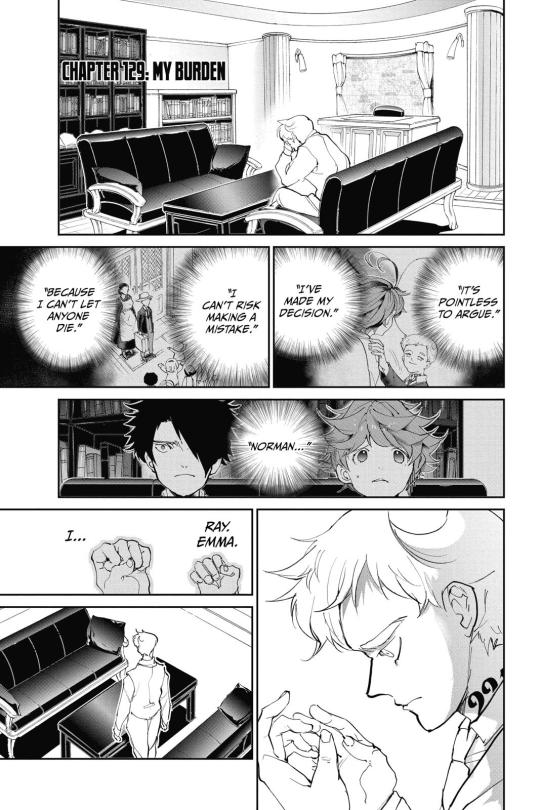
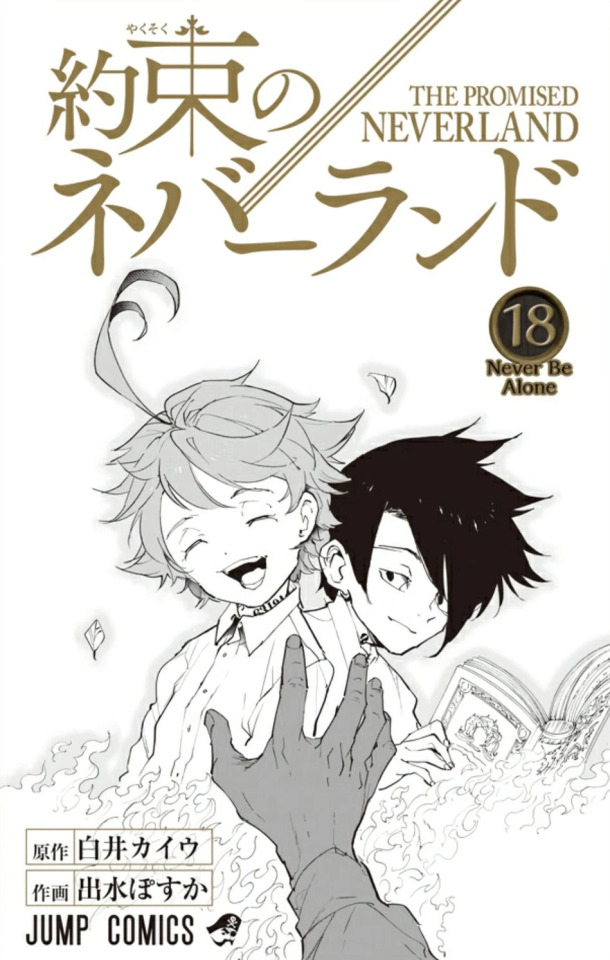
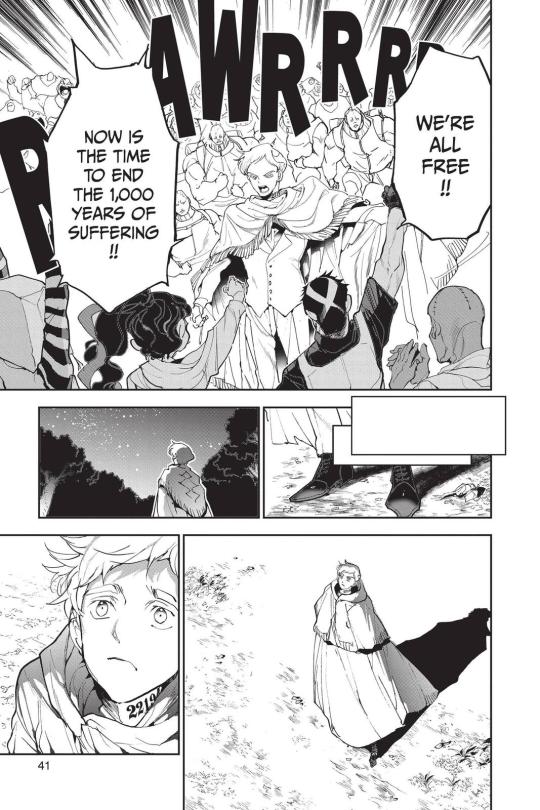
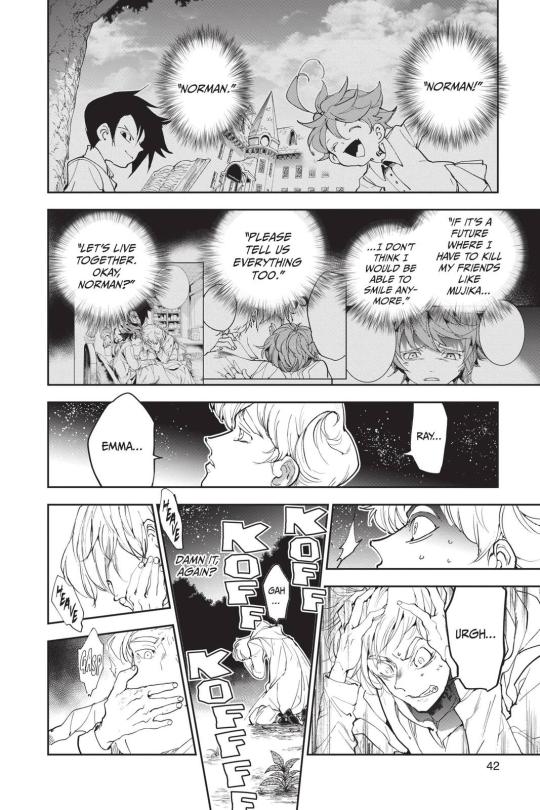
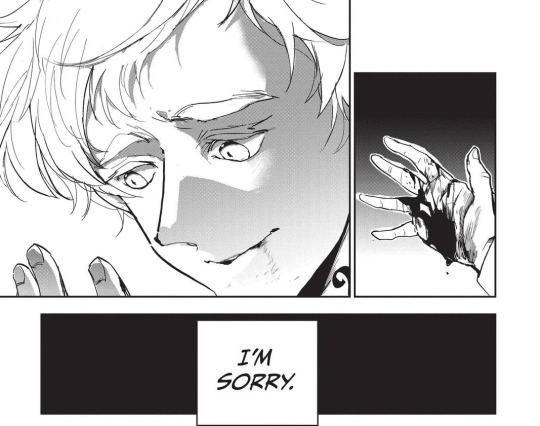


(Chapter 74 | Chapter 129 | Volume 18 Inner Cover | Chapter 145 | Chapter 153 | Chapter 181.4)
Emma's cherished the boys as her best friends her whole life at Grace Field. As they're inspired by her, she in turn is inspired by them.

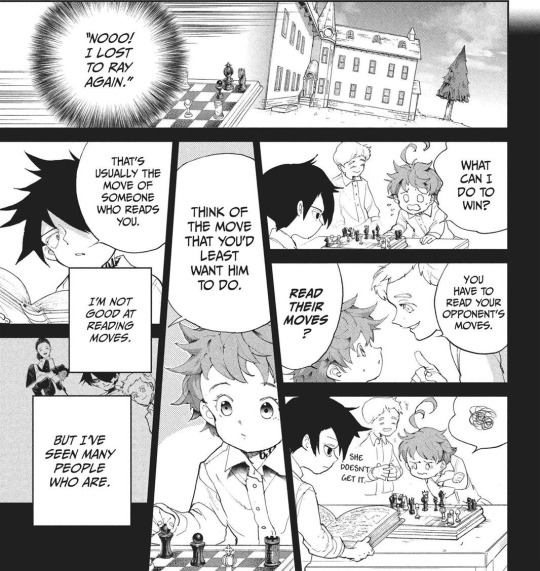
(Chapter 5 | Chapter 88)
But when exactly she consciously puts a name to those feelings and recognizes them in their totality, I don't have as specific of period for because I like to play around with it.

(Chapter 123)
But there's the beat of pronounced, wide-eyed clarity when Ray mentions Norman's special to both of them.

(Chapter 153)
There's her bold declaration of "I'm never letting you go!" to Norman, firm in her conviction that she'll won't let him sacrifice himself or be separated from them again.

(Chapter 161)
There's the faith that now that she has both of them at her side again, they can achieve the impossible.
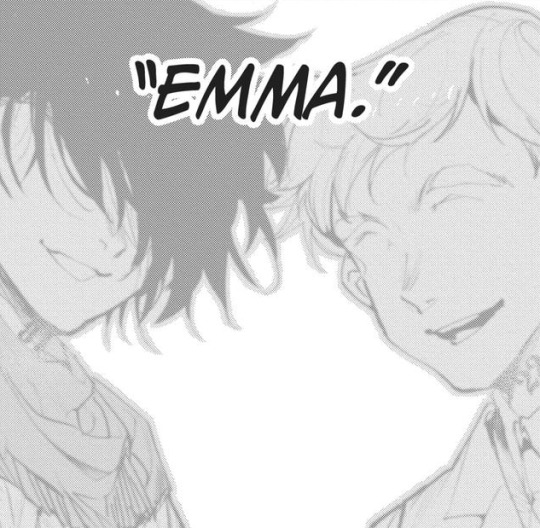
(Chapter 180)
And there's the visions she has of them in her dreams after they arrive separately in the human world and she's lost her memories, because not even a god can remove the place they hold in her heart.
#guess who hit the 30-image-per-post limit again with this one#but them‚ your honor 🖤🧡🤍#idk if you're the same anon who sent the previous REN ask but ty I love talking about them#can't believe they invented OT3s#The Promised Neverland#Yakusoku no Neverland#TPN#FSS Asks#FSS Chatter#Norrayemma#Norayemma#Noremray#TPN Interviews#Mystic Code Book#TPN S1#TPN Light Novels#A Letter from Norman#A Gift from the 39th Girl#Pre-Canon#Post-Canon#Emma#Norman#Ray#TPN 074#TPN 093#TPN 181.4#Long Post#Read More
10 notes
·
View notes
Text

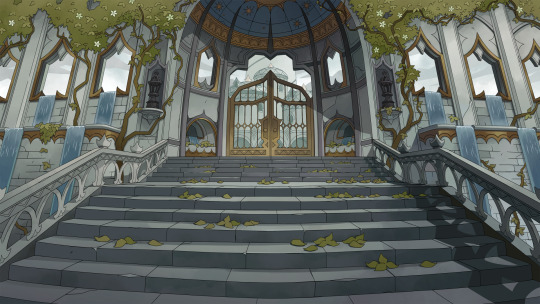

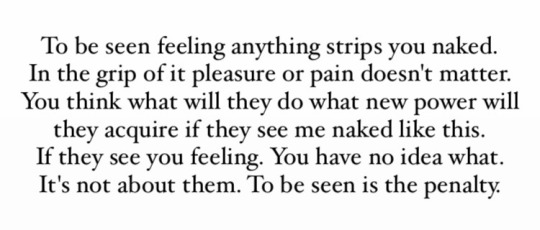

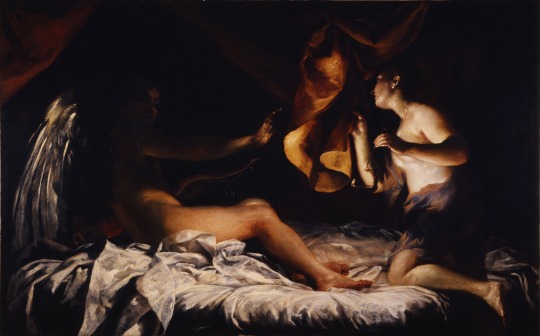
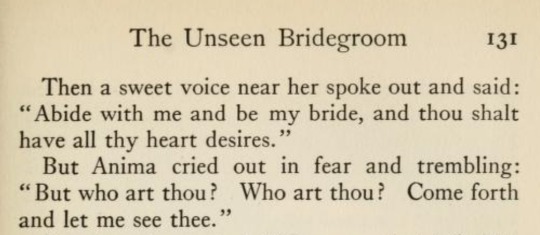



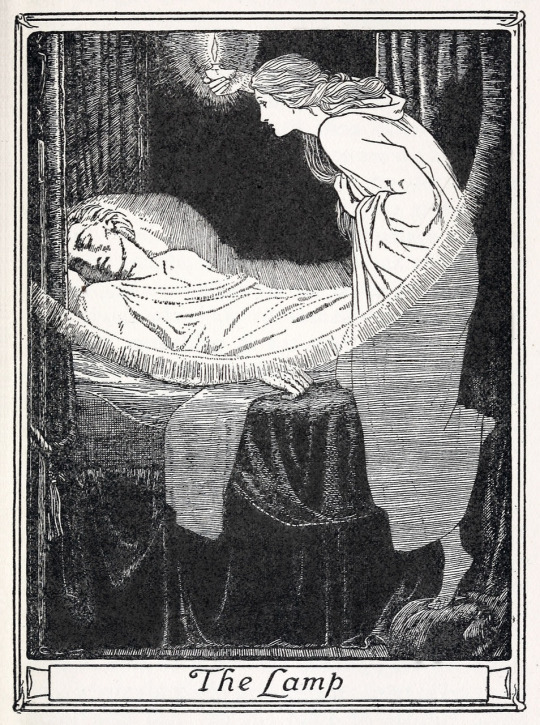
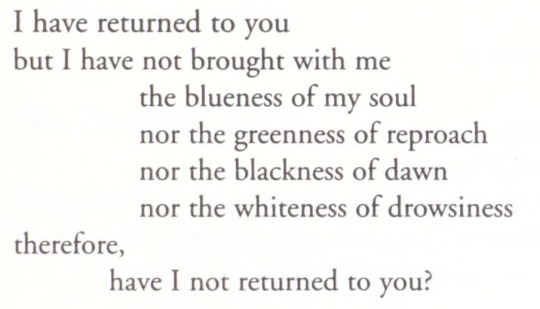

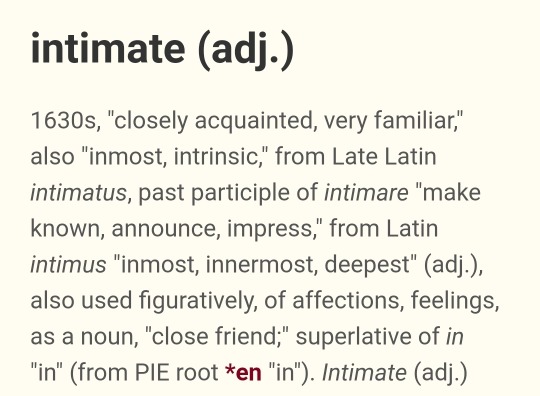
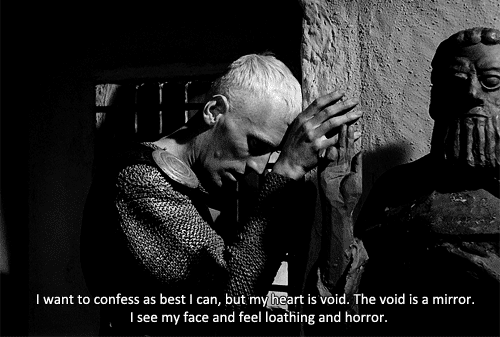














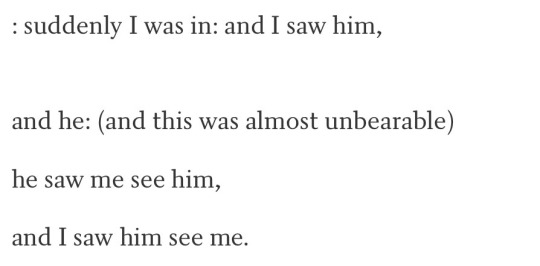
Intimacy in the city of secrets
Linda Hogan / Anne Carson / Giuseppe Maria Crespi / Joseph Jacobs / Rainer Maria Rilke / D.W. Winnicott / John D. Batten / Dunya Mikhail / Etymonline / Ingmar Bergman / Sarah Kane / L.M. Dorsey / Michael Ewans / The Real Housewives & Tim Kreider / David Foster Wallace / Neil Hilborn / Maggie Nelson / no-droids / Mihály von Zichy & Micah Nemerever / Marie Howe
#BE KNOWN#no way touchstarved web weave#i was gonna add an ais one but i hit the 30 image limit darn#touchstarved game#touchstarved type beat
70 notes
·
View notes
Note
Hi! I have a request Could you draw Sam the cat of Mystery Eclipse (Colombian webcomic) as 500 different versions? Could you also draw his friend the bird and the tall alien? Please.
ok^_^ i didnt draw his friend the bird but i did draw the tall alien






























6 notes
·
View notes
Text

IT'S HERE AT LAST @arcvmonth AU DAY YEAHHHH never mind that this post is late
I managed to stuff 10 AUs into this bad boy, so this is a image AND text heavy post, be warned! (I genuinely hope you enjoy the ride)
Not arranged in any particular order, and hyperlinks lead to doodles I've posted on Twitter unless stated otherwise!
(CW: imagery of drug use in the first one and mentions of violence in another)
1. Triad AU
It's the 1800s and everybody* does crimes! (*Not everyone)
Raised in the Fusion Society from an early age, Serena has always had mixed feelings about the child trafficking that her foster father's involved in. One day, she comes across a red-haired street performer that brings dazzling smiles of unbridled joy to children and decides to cut ties with her current life. As she eludes the men sent to retrieve her, she runs into who but the leader of a rival organisation, the Lancers!
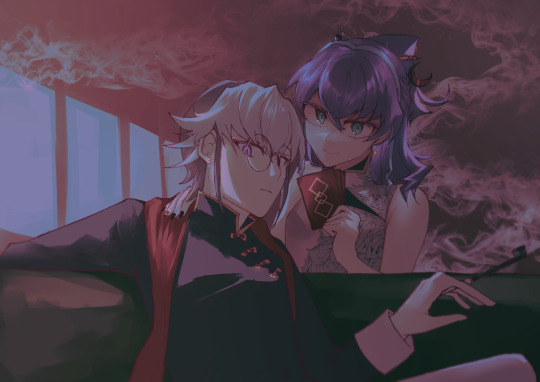
This holds the distinction of being the only au that I didn't include pawn in some way or another because I can't figure out where to fit Yugo in (probably why my interest in it has somewhat fizzled out already lmao)
I wrote a short ~500 words fic of Serena announcing her departure to Dennis, Sora, and Yuri (conceptually the latter perpetually seethes about her audacity throughout the length of this au because that's funny)
2. Vampire Knight AU
Vampires and humans learning to co-exist in a boarding school is a genius set-up, thank you Hino Matsuri for giving me undying brainrot (pun intended) through creating this (albeit cursed) manga
Turned into a vampire against his will during a brutal massacre, Yugo curses his fate to be a blood-sucking monster every waking hour. And if his life didn't suck hard enough already, he's also forced to partner with (be the research subject of) a human with a set of morals worse than the most depraved vampire he's ever met. At least that lessens his guilt about drinking blood, because if anyone deserves to be a juice box, it's that smug purple-headed bastard! Life at the academy revolves around humans attending Day classes and vampires attending Night classes, but Yugo begs the headmaster to allow him some semblance of normalcy (denial) by letting him attend the Day Class, in which he dozes off often. Luckily, his roommate, Yuto, is there to poke him awake just enough times for him to pass his classes. Like his cousin Yuri, Yuto is also paired with a vampire through the latter's term in the academy. As one of the last surviving pure-bloods in the world, Yuya is uncomfortably used to his fellow vampires looking at him with undiluted reverence while fending off dubious intentions. The two quickly form a close relationship, a stark contrast to the other two boys that they share a house with.
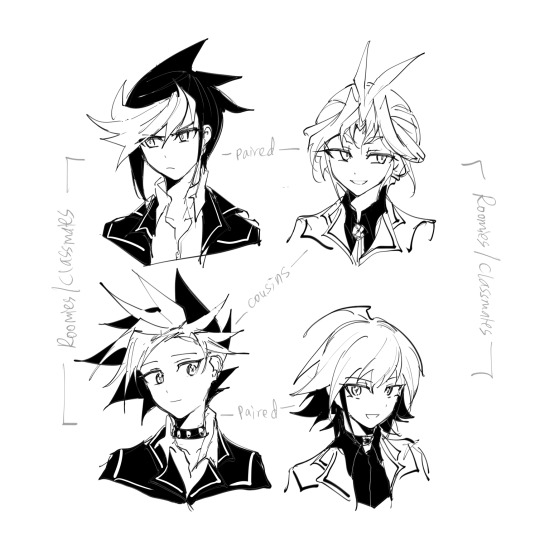
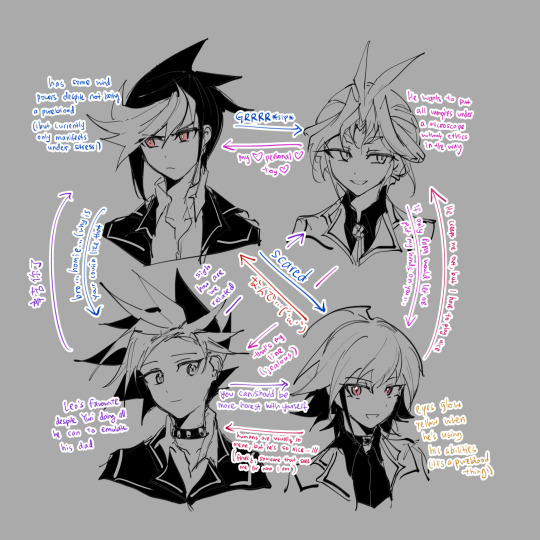
I'm still deciding between having Yuri and Yuya being seatmates or not because both have their pros and cons (Also Yoko is a human, but is also the Night Class teacher; Yuya takes a liking to her pretty quickly)
Yuto, Shun, and Kaito are part of the school's Disciplinary Squad made out of vampire hunters-in training that patrol the grounds after dusk (to make sure their vampiric classmates aren't running around charming guileless humans into being supper) and Yuri, of course, despite being human has asked his beloved Papa for permission to attend Night Class in order to observe his research subjects in their natural habitat! (He unnerves everyone, but they don't disturb him because the last time someone tried they learnt first-hand that he has an taser whip to protect himself)
3. OCG AU
I've recently posted (how recent is recent?) a compilation post of doodles for this AU then I realised I never talked about the plot so
Childhood friends Yuto, Shun, and Ruri are training hard to join the elite ranks of the Dogmatikan Order. When Ruri doesn't return from her Ascension ceremony, the two defy sect rules to search for her. Yuto comes across a mysterious red-headed boy incarcerated within the inner confines of the Order's keep and...

I know it doesn't look like it but pawn is more of a background ship in this story, counterpart and swift take center stage (because Yuto and Rin are the main characters to me)
When I cooked this up in 2021, I was so desperate to escape from my schoolwork that I ended up making an 15+ chapter outline, here's an excerpt

(Just kidding I do have half a prologue and one chapter written out, one day I'll revisit this for sure)
Oh also, Yuri and Yuya are twins separated at birth
4. Exorcist AU
This one is the multi-series AU, because everyone has one, right!
This started as my 2022 Halloween pawn piece and then over a five-hour midnight bus ride at midnight two months later I decided to make a bad decision that led me to dozing off while queuing up in a theme park in the middle of the afternoon
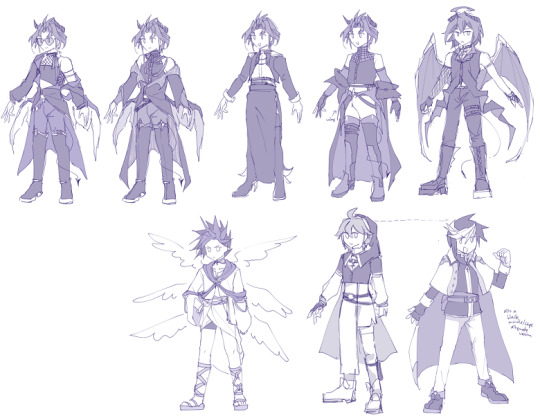

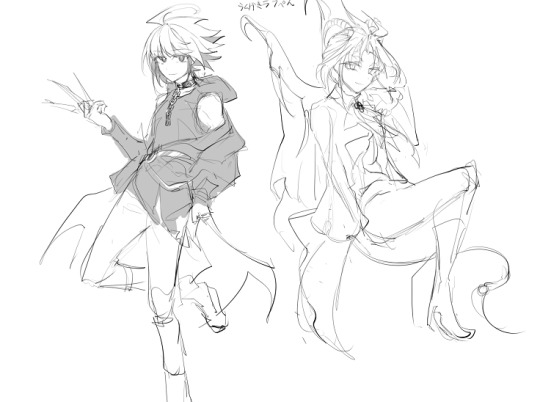
(Yuto's design is so horribly outdated but I haven't digitalised his new one yet sorry, also shark and kaito heads are by @2-ennn)
In a world ravaged by demons, Yugo has spent his entire life on the tiny island he's called home learning the ropes of exorcism. His life is shaken up when he's assigned to show a visitor around, an exorcist from the mainland with a devilish smile that raises his hackles. He finally drops his suspicions and guard when Joeri sustains injuries protecting him from a demonic attack, and the two become closer... (They even have cute fluffy dates) Well, only until Joeri reveals that it was all staged and that he's a demon (and that his name is actually Yuri) before making off with the church's most prized weapon/artifact/thing/sorry I haven't really decided yet
If you saw my tweet from last year complaining about how I have to write 7 chapters first before I can write about my otp kissing I was referring to this au (joke's on my past self because I skipped ahead to write it anyway)
Yubel, Placido, and IV are the respective leaders of the three factions, but the island that Yugo (and Rin) grew up on is managed by Sherry because man am I hungry for Sherry Yugo sibling-like interactions
I love this AU, but writer's block crashes down like a brick (I've attempted to rewrite Chapter 1 more than two times and I'm still pulling my hair out because I need it to be Perfect)
5. DGS AU
What's up Ace Attorney fans, do I have a fangame in the works for you! It's based on The Great Ace Attorney/Daigyakuten Saiban, but there's no spoilers for it if you haven't played it





I can't talk too much about the plot since I do want to make a playable version one day but I will say that the first trial is defending Yugo from a murder charge (lol)
It's also one of the rare AUs where there's barely any explicit romance(?), only murder and mystery here! (you bet I'm going to write so many allusions for my favourite ships though winky face)
I started writing trial scripts for this but then I got really overwhelmed when looking for a good AA game maker so if anyone has recommendations please send them my way (Ideally they'd have the DGS UI...)
6. Casino AU
The Yuboys are dealers in a casino, and maybe it's a fun goofy little vn (it's a vn)
I have a whole thread on twitter for this one for the drawings i've made, but I'll post some on here so I can ramble a little
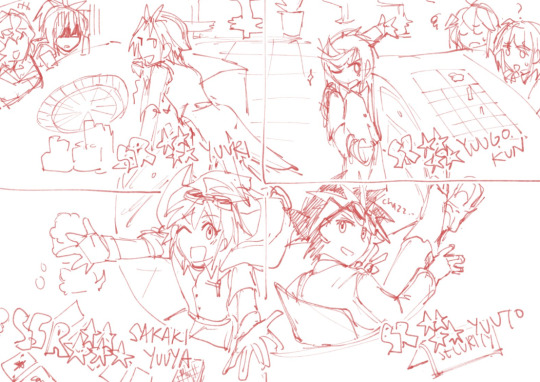
It started out as a concept for gacha cards, but then became its own monster (that's currently slumbering)
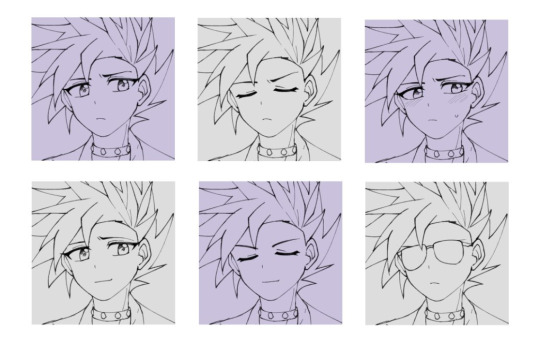


Originally Reiji was the owner of the casino, but I'm trying my best to include Ray and Zarc more into my aus when I can because I just want more excuses to write/draw my trophy wife (zarc)

this drawing is so old but clutches head i love u4 so much rrrrrrr
I wanted to make little acrylic standees back then (honestly still do a little)
Speaking of little acrylic standees...
7. Rune Factory AU
This one is roughly based on Rune Factory 5, but all you need to know is... nothing, actually; I can't even reference the plot because I've barely played the game myself lol but i just really wanted fantasy farming yuboys
(and then none of the characters ended up being vegetable farmers, even outside of the yuboys)
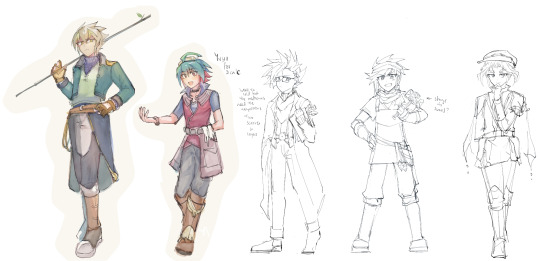
Harvest Moon/Rune Factory is a game where you live on a farm and eventually maybe marry someone, so one day when I've done all of the full body sprites (pauses and looks to the horizon) I want to make a uquiz that tells you who your destined Bachelor/ette is
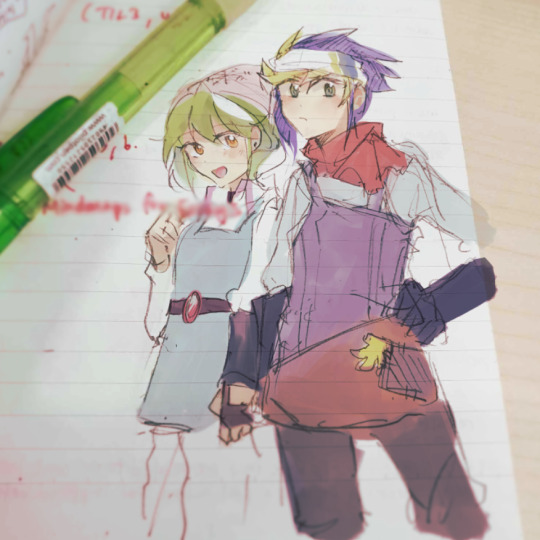
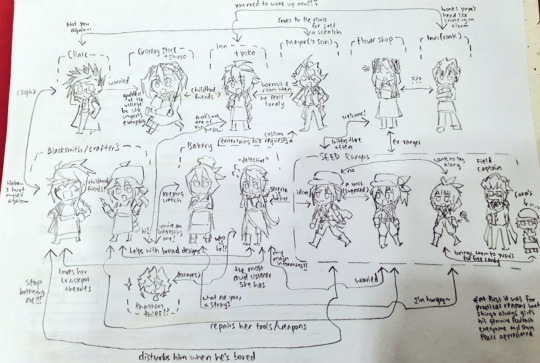
It'd be one of the AUs without any 'canon' ships but Ray and Zarc's backstories are kinda tied together so... yup anyway here's a list of things that are true in this AU:
yuya zarc siblings and zarc is a mean older brother
i was going to make zarc the cool mysterious guy that you rarely see but gap moe is one hell of a drug
yuzu and her dad own the grocery store, yuya helms the local inn with yoko, who manages the baths within, zarc opens his diner for business when he feels like it (he's actually so good at cooking), yugo and rin are a blacksmith/carpenter duo, kurosakis have a bakery, though ruri spends her time playing detective, yuto runs the local clinic and sawatari is the town mascot
every monday night, a mysterious phantom thief with orange hair stalks the streets!
the squad that reiji captains serves to fix problems like monster infestations, but they usually have a lot of free time on their hands (well, not reiji) so yuri is constantly annoying yugo and yuto for fun and serena spends her time befriending the girls
ray only returns to town and opens up her flower shop when you defeat the 2nd boss and yuri can be found loitering there often, ray is the only person that makes him remotely uncomfortable
i was going to make yuto the 'protagonist' with amnesia (it's a RF thing) but then i was told he'd be funnier as a doctor (and now I can also give him glasses)
8. Gunvolt AU
Azure Striker Gunvolt is a fast-paced 2D action sidescr-- okay you know what, all you have to know is that the yuboys are villains belonging to a mega corporation that aims to control society through the power of virtual idols and music (yes, this is a real plot point from the original work) and Serena storms their hideout to kick their asses in order to truly free Yuzu (who escaped and was found unconscious in an alley by her now gf) from their clutches
Yuuri: Well, well. Maybe today won't be boring, after all. Serena: Is… Is he in a straitjacket? Yuuri: I'd really appreciate it if you didn’t talk about me like that to my face, thank you. Serena: If I did, would you move out of the way? Yuuri: If I did, would you free me of these restraints? Rin: That doesn’t seem to be the wisest thing to do. Serena: Yeah. Dream on. Yuuri: Then we only have one choice left, don’t we?
(Yeah I put him in a straitjacket)

The grey numbers are for the design notes I wrote alongside when drawing this, here's a pastebin! (It's not required reading, but I would deeply appreciate it if you checked my rambling out)
Reiji is the final boss for some light AkaSere, but I'm still figuring out his character (and everyone elses', tbh)

The main fun of this AU for me was definitely making parodies of the skill cut-ins! (Yuri's one is due for a remake... I also really need to get around to finishing Yuto and start on Yugo's to complete the set)

Yuya's second one is for when you beat his first form and he uses his last resort to merge with the other three or something (His pose and cape is a nod to Astrograph!)
9. Obelisk Force AU
Okay, before you continue, go and get this song playing in the background first (I will give you a cookie if you read the lyrics too)
Okay, let's go! (with the energy of an excited tour guide)

It'd be an absolute understatement to say I love the concept of Obelisk Force Yugo; one time I made a 10-minute TED talk trying to pick apart why I liked it so much, but back then I still didn't have a good grasp of what my ideal ObeFo Yugo/Pawn was... Until I came across that song on Spotify and asked a friend for help on brainstorming (lost if u see this HI) and the rest, as they say, was history
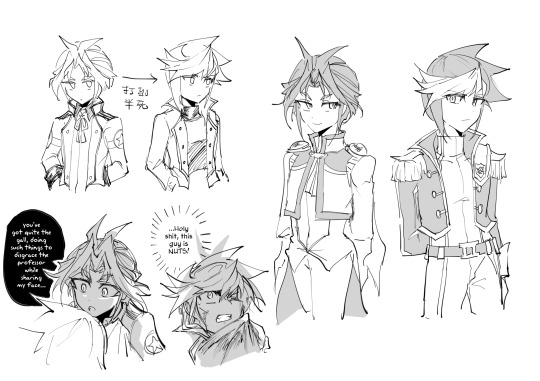
Yugo is picked up (kidnapped) by Academia at an early age (think like, 5-6) after they witness his duelling skills (Leo really needs LOTS of child soldiers)
they erase his memories then for better assimilation into the academy, though he still retains a sense of stubborn individuality
he's constantly bullied by the other students for being an orphan from the Synchro Dimension, and he gets into fights often
eventually, Leo orders Yuri to take care of the matter (children will be children, but Academia MUST have order)
when Yuri approaches Yugo, he's just finished throwing hands against yet another crowd of students
Yuri attempts diplomacy, even challenging him to a duel, but Yugo is exhausted from his earlier fight and turns him down brusquely, stalking back to his room
Yuri attempts to block his way and gets shoved aside, falling to the ground and cracking his duel disk
he snaps, as the duel disk had been a gift from the professor, and how dare you?
he's beating Yugo half to death when a lightbulb goes off in his head
he proposes to Yugo to personally take charge of his education because he is so gracious and charitable and it's the least he could do for someone who shares his face
Yugo, of course, is completely dumbfounded but faints from a combination of blood loss and fatigue before he can reply no
when Yugo has recovered, Yuri pops the question again, and the two decide to settle the matter through a duel
Yugo loses (duh)
time flies as Yuri teaches Yugo how to stop students from coming back for revenge, among other things (it also helps that the other students are already creeped out by him) and significantly raises his quality of life at Academia which Yugo is thankful for
time skip! Yugo successfully joins the Obelisk Force and promptly unbuttons the jacket instantly (it's a tight fit, okay)
Yugo can feel his serpentine gaze drill into him from where Yuri sits cross-legged on a chair a distance away, his chin cradled thoughtfully in one hand. He waits for a comment, but nothing but silence comes. Finally, he mutters, "What, you're not going to scold me for desecrating the uniform?" A wide smile crinkles Yuri's face. "Not just your wardrobe, but even your vocabulary's upgraded, hm?" Before Yugo can form a retort, he goes on, "Actually, I think I like it." His chair barely makes a sound, muffled by the carpet as he stands up and makes his way across the room. The footsteps stop when teal and magenta are inches away. Lightly, he fingers the lapel of Yugo's new jacket as he rakes a half-lidded gaze from head-to-toe. "It makes you stand out from the others in the Force. And that's fitting. After all..." "You're not the Professor's. You're mine."
One day, Yuri and/or Yugo are sent to capture... Rin! Her picture gives Yugo a sense of deja vu, but he doesn't understand why...
Yugo's memories come back in a flood when he makes eye contact with his old childhood friend that he hasn't seen in almost a decade
The capture is successful, and back at Academia Yugo begs the Professor for the authority to be in charge of her incarceration (In trying to mold Yugo into his shadow, Yuri has unknowingly created a competitor for the Professor's acknowledgement)
Before the Professor can respond, a girl of Yugo's age steps into the room to report to the Professor as a fresh recruit
Leo introduces a brainwashed yandere Ruri as Rin's appointed jailer
Yeah that's right I managed to fit apple and swift in here thumbs up emoji

Anyway it's now a romantic comedy with a love triangle (it's not)
10. Hades AU
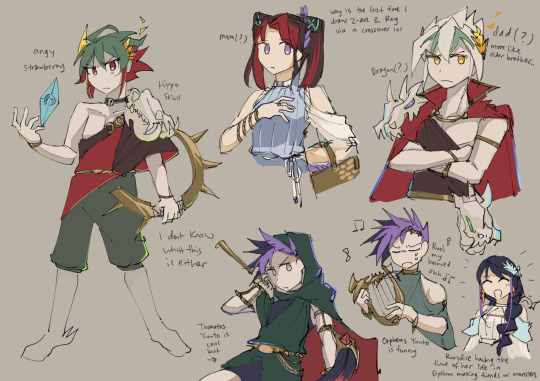

No deep thoughts nor any plans for this one it was more of a costume design exercise but I'm including it here because I still like them quite a bit
***
If you've actually made it this far, I don't know what to say... thank you!
If you'd like to see more of any of these (including some of the ones that I didn't manage to include but might have posted before like the Alice in Wonderland one, or the Dark Signer one, or the university one, or the Yuri half-turns into a Starve Venom dragon boy one, or the the Monster Hunter one (less of an AU and just a hey they are gaming), or the Z-arc suddenly has four toddlers and they are the yus and he has to juggle parenting and pro-duelling one, and whichever ones I might have forgotten, my ask box is open!! Again, thanks for reading!
#arcvmonth#arcvmonth2023#arc-v#yugioh arc v#yugioh arc-v#would you believe i hit the 30 image limit on this because i did grrrr#i was going to make a rating for pawn/yugo angst/yuri abnormality but it was already wordy enough#i actually have a chart version of it but!!! the 30 image limit!!!!#god no way am i tagging the characters im gonna just tag the aus#obelisk force au#rune factory au#gunvolt au#dgs au#exorcist au#i really need a better name for that one#ocg au#vampire knight au#pawnshipping#swiftshipping
63 notes
·
View notes